Best Time to Visit
Weather & Climate
Getting Around Morocco
Places to Visit
Guide to Moroccan Riads
Things to Do in Morocco
Things to Do in Marrakesh
Guide to the Marrakesh Medina
Best Beaches
Annual Events
Things to Do in Fez
Things to Do in Meknes
Visiting Chefchaouen
Food to Try
Best Restaurants

Your Trip to Morocco: The Complete Guide
:max_bytes(150000):strip_icc():format(webp)/DSC00412-5b73daf7c9e77c0057ca2198.jpg)
Occupying the northwest shoulder of the African continent, Morocco is rich with history and full of color. For some, its essence can be found in the bustling souks and walled medinas of Imperial Cities like Marrakesh and Fez. For others, the country is typified by the plunging sand dunes, camel trains, and Bedouin villages of the Sahara Desert. There is something for every kind of traveler in Morocco. Foodies come to taste flavorful tagines cooked according to ancient recipes. For culture vultures, the mosques, museums, and palaces of cities that date back to the eighth century are the main attraction; while nature lovers will find magnificent scenery from the wild beaches of the Atlantic coast to the snow-capped High Atlas Mountains.
Discover Morocco’s treasure trove of wonders for yourself with the help of this useful guide. From information about the local language and currency , to tips on what to do, what to eat, and where to stay, it has all the information you need to plan your trip of a lifetime.
Planning Your Trip
Best Time to Visit : For fewer crowds and weather that’s sunny but not uncomfortably hot, plan to visit Morocco in spring (April and May) or fall (September and November). There are exceptions to this rule: Morocco’s famous surf destinations are best in winter, while beachgoers may appreciate the more intense heat of summer. Cultural and religious festivals occur throughout the year.
Language: Morocco’s official languages are Modern Standard Arabic and Berber. The most widely spoken language is Moroccan Arabic.
Currency: Moroccan dirham
Getting Around : Morocco has a safe and reliable train network connecting its largest cities and most popular tourist destinations. Long-distance buses are a good budget option, while domestic flights are best for those with limited time. Once you arrive at your destination, use a local taxi (known as a petit taxi) to get around town.
Travel Tip: Morocco is a Muslim country and tourists should dress modestly to avoid causing offense. This is especially true for women, who should keep a shawl or scarf in their purse to wear over their hair when entering mosques and other religious sites.
Things to Do
Most overseas visitors focus their time in Morocco on the Imperial Cities of Fez, Marrakesh, Meknes, and Rabat. At the heart of each of them is the medina, or walled city, where fabulous Arabic and Andalusian architecture abounds and vendors sell precious goods in maze-like souks. It’s worth getting out and exploring Morocco’s rural areas as well. From the bohemian villages of the Rif Mountains to the kasbahs of the Dades Valley, a rich and diverse culture waits to be discovered.
Shop for souvenirs in the city souks: Bring your best haggling skills and venture forth into Morocco’s souks in search of a bargain. In the Marrakesh medina, shop for exotic spices and silver dinnerware in Souk el Attarine, or for hand-crafted Berber jewelry in Souk des Bijoutiers. In Souk Chouari and Souk Haddadine, artisan carpenters and blacksmiths have been showcasing the same techniques for hundreds of years.
Discover a wealth of historic landmarks: Berber kings, Roman invaders, Islamic sultans, and European colonialists have all left their mark on Morocco. Visit the ruins of Volubilis , one of the Roman Empire’s southernmost cities, near Meknes. Tour the Saadian Tombs and El Badi Palace in Marrakesh to get a glimpse into the lives of the Saadian sultans; or walk Essaouira ’s medieval ramparts, built by Portuguese settlers as a defense against invasion.
Explore the country’s natural wonders: Morocco is full of incredibly diverse nature areas. Trek through the Sahara Desert on a multi-day camel safari departing from Merzouga . Surf some of the best waves in Africa in the Atlantic village of Taghazout ; or hit the slopes at Oukaïmeden , one of the continent’s only natural ski resorts.
Explore more amazing attractions with our full-length articles on the top things to see and do in Morocco , the top things to do in Fez , and the top things to do in Marrakesh .
What to Eat and Drink
Moroccan cuisine takes inspiration from Arabic, African, and Berber culture and is given unrivaled flavor by a wealth of locally produced spices. The most iconic dish is tagine , a kind of stew named after the cone-shaped clay pot in which it is cooked. Served everywhere from street stalls to gourmet restaurants, tagines come in many different flavors with chicken, lamb, and kefta being the most common. Often, dried fruit and nuts are added for a distinctly exotic taste. Tagine is usually accompanied by another Moroccan staple, cous cous. Other delicacies to look out for include harira soup, made from tomatoes, lentils, chickpeas, and spices; and bastilla, a savory pie inherited from the Moorish rulers of the past and traditionally filled with pigeon meat.
Because Morocco is a predominantly Muslim country, very few traditional restaurants serve alcohol. Instead, wash your meal down with a cup of ubiquitous mint tea. Freshly squeezed orange juice and strong Arabic coffee are also popular beverages in Morocco.
Where to Stay
Choosing the best place to stay during your time in Morocco depends on your particular interests. If you want to explore historic architecture while immersing yourself in the chaotic thrill of the souks, make your temporary home in the medinas of Fez or Marrakesh. In both cities, the best boutique hotels are located within traditional Moroccan residences known as riads. If you dream of experiencing the Saharan Desert in all its glory, head to Merzouga, a frontier town on the edge of the Erg Chebbi dunes. Camel safaris often include an overnight stay in a traditional Bedouin village. For a tranquil getaway in the Rif Mountains, the blue-painted town of Chefchaouen is a favorite pick; while Asilah , Essaouira, and Taghazout are all great choices for laid-back beach living on the Atlantic coast.
For more information on destinations and accommodation choices in Morocco, read our full-length articles on the best hotels in Marrakesh and the best beaches in Morocco , plus this complete guide to Moroccan riads .
Getting There
For most visitors, the easiest way to get to Morocco is to fly in. There are two main international airports: the Mohammed V International Airport (CMN) in Casablanca and Marrakesh Menara Airport (RAK). The former handles most of the country’s long-distance arrivals, while the Marrakesh Airport is a popular destination for budget European airlines. Morocco’s national airline, Royal Air Maroc, offers a daily non-stop flight from New York to Casablanca. Alternatively, ferries travel to Morocco from several countries in Europe, including Spain, France, and Italy.
Visitors from the United States, Canada, the U.K., Europe, and many other countries do not require a visa to enter Morocco for stays of up to 90 days.
Culture and Customs
Islam is the predominant religion in Morocco (more than 99 percent of the population are Sunni Muslims ) and as such, many aspects of the local culture differ from what you may be used to back home. Traditional restaurants do not serve alcohol and visitors are expected to dress conservatively in public. Women in particular should keep their shoulders, upper arms and legs above the knee covered at all times. Homosexuality is illegal and LGBTQ+ travelers are advised to avoid any public displays of affection; homosexual behavior (including kissing) can be prosecuted with a fine of up to three years in jail. If you travel during the month of Ramadan , most Moroccans that you meet will be fasting during daylight hours, and local restaurants will stay closed throughout the day. Most mosques are off-limits to non-Muslims.
Bathroom etiquette is very different in Morocco, where squat toilets are far more common than the Western variety. Instead of toilet paper, bathrooms are equipped with a bucket of water or a hose which you use in conjunction with your left hand to clean yourself. Consequently, the left hand is never used to eat with or to greet people in Morocco. Make sure to shake hands using your right hand, and remember that pointing is also considered impolite and should be avoided. It is customary to tip in Morocco for good service, but also to haggle over prices in the souks. If you’re new to haggling, the best practice is to start by offering half of the vendor’s initial asking price and negotiate a mutually agreeable number from there.
Thwart the pickpockets in crowded areas by concealing your cash in a money belt, and avoid carrying large amounts on you. Be equally discreet with jewelry and expensive camera equipment.
Money Saving Tips
- Scam artists are common in tourist hotspots like Marrakesh’s Djema el Fna square. Black market money exchangers often deal in counterfeit cash, and vendors or street performers who give you “gifts” will usually demand payment later.
- Buy your meals from street vendors for the cheapest food prices. If a stall is full of local patrons, it’s a good indication that the food can be trusted.
- Book tours with respected local operators rather than arranging them in advance with international tour companies. You’ll often get a better price and may even be able to negotiate further discounts.
- When shopping at the souks , don’t be intimidated into buying things you don’t want. If you’re not interested or the price isn’t right, simply walk away.
- Haggling isn’t just for the souks. It’s also for tours, car rentals, and especially taxis. Most taxis are not metered and the first price you are quoted will be way over the odds. Make sure to agree on the fare before getting in.
- Carry plenty of small notes to avoid paying more than you should when drivers or vendors tell you they don’t have change.
- If you have the time, travel by train or long-distance bus instead of taking domestic flights. Both methods of transport are safe and comfortable. Grand taxis (shared taxis) are even cheaper, but not so reliable.
Kingdom of Morocco Ministry of Foreign Affairs. " List of countries whose citizens are exempted from entry visa into Morocco. "
U.S. Department of State. "Morocco 2018 International Religious Freedom Report." Page 3. May 2019.
U.S. Department of State. " 2019 Country Reports on Human Rights Practices: Morocco, Section 6. Discrimination, Societal Abuses, and Trafficking in Persons ." 2019.
The Top 15 Things to See and Do in Morocco
Top 10 Things to See and Do in Marrakesh, Morocco
10 of the Best Places to Visit in Morocco
The Best Time to Visit Morocco
The 18 Top Things to Do in Meknes, Morocco
48 Hours in Casablanca: The Ultimate Itinerary
The 12 Best Things to Do in Casablanca
Chefchaouen: Planning Your Trip
The 9 Best Day Trips From Casablanca
Your Trip to Egypt: The Complete Guide
Marrakesh Medina, Morocco: The Complete Guide
Cairo Guide: Planning Your Trip
The 10 Best Restaurants in Morocco
How to Travel From Casablanca to Fez by Train, Bus, Car and Plane
Tangier, Morocco: Planning Your Trip
How to Travel From Seville, Spain, to Morocco by Bus, Car, and Plane
Morocco Travel Guide
Stunning interior gardens, courtyards, and delicious tajines, spanning from the Atlas Mountains to the Sahara.
Best time to visit Morocco
Rent a car in morocco, best places to visit in morocco, sahara morocco: visit the merzouga desert on a 3-day tour, 9 best things to do in chefchaouen, morocco, 11 things to do in fes, morocco (complete guide), map of morocco, weather in morocco.
Morocco's weather is primarily dry year round, with mild winters, and intensely hot summers. Springtime, from March to May, is the most beautiful time to visit as landscapes bloom. September to November are also very pleasant months, ideal for exploring.
Destinations in Morocco
Things to do in marrakech, morocco: a 3-day guide, how to rent a car in morocco, best travel insurances.
- Find Hotels via Booking.com
- Find Hostels via Hostelworld
- Find a Rental Car via Sunny Cars
- Find Flights to Morocco via Skyscanner
- Get a Travel Insurance via Heymondo
- Book Tours & Attractions via GetYourGuide
- Book a Bus/Train/Transfer via 12Go
- Get a Visa via iVisa
- How to pack light for your trip
- How to plan your trip our tips
Why is Morocco worth visiting?
Morocco is an incredibly stunning and diverse country, full of wonder. Home to the Sahara desert, the Atlas Mountains, stunning architecture, lively medinas, calming hammams, bustling souks, and tranquil gardens, it’s a destination that’ll overload your senses but captivating to explore.
Is Morocco cheap to visit?
Enjoy this Moroccan charm without breaking the bank! While there are some very luxurious hotels and experiences in Morocco, it tends to be a very affordable travel destination; with tempting stalls selling delicious food for $5 and quaint riads starting at $20 a night, there are options for everyone.
Can I drink tap water in Morocco?
While most locals will drink tap water, it’s recommended to avoid it as a traveler. Stay hydrated by using a reusable water bottle with a filter system, or purchase a large bottle that you can refill from during your trip.
Do I need a visa for traveling in Morocco?
Good news! Most travelers can explore Morocco visa-free for up to 90 days. Check your country’s specific entry requirements before your trip, and when entering the country, make sure to get your passport stamped on arrival.
What language do they speak in Morocco?
Moroccan Arabic is the native language of Morocco, amongst other languages, depending on the area. Virtually all Moroccans will be able to speak French, and in the main tourist areas, English is also widely spoken, so you should have no problems getting by.
Do I need travel insurance for Morocco?
While traveling around beautiful Morocco, unforeseen circumstances may arise, like lost belongings and medical emergencies. Having travel insurance will keep you protected on the go and ensure peace of mind.
Is Morocco safe?
Morocco is a safe country to travel to, with friendly locals keen to chat. Petty crime does exist, so it’s always a good idea to exercise caution, leave valuables out of sight, avoid back alleys, and make sure not to walk alone at night. However, for the most part, Morocco is a beautiful place to explore worry-free!
What power plug type does Morocco have?
The standard plug used in Morocco is the two round pin plugs, known as plug type C and E. Make sure to bring your adapters or purchase one at the airport to keep connected during your trip.
Why do people love Morocco?
Morocco is loved for its incredibly diverse experiences and sensory delights. One moment, you can be experiencing sunrise on a camel in the Sahara Desert , the next enjoying a delicious tagine on a rooftop in Marrakesh, or wandering the blue streets of Chefchaouen. Morocco has it all!
Travel in Morocco
A mesmerizing land of diversity, Morocco guarantees to enlighten all your senses. From majestic mountains, serene beaches, and quaint gardens to bustling medinas, camel riding in the desert, and tea with Berbers, a vacation in Morocco promises to be full of surprises.
How to plan your trip to Morocco
Use our Morocco travel guides to create the ultimate adventure! Whether you’re planning a weekend break to Marrakech , keen to get lost in the ‘Blue Pearl’ city of Chefchaouen , or looking for a breathtaking Sahara desert experience, our guides have you covered with all you need to plan the perfect Morocco holiday .
Backpacking around the country? 10 days in Morocco gives you a great amount of time to experience the best places in Morocco .
Best time to visit Morocco
Heading on vacation to Morocco ? Before your trip, it’s essential to pick the best season to explore this bustling destination!
Spring and Autumn (March – May, September – October): The best time to visit Morocco is in Spring and Autumn, between March and May and September and October. This period brings warm temperatures between 20°C – 30°C and sunny skies, making travel throughout the country very pleasant. Spring is also when the landscape starts to bloom, making it incredibly beautiful!
Winter (November – February): Morocco rarely sees any rain, so while winters are colder, they’re still dry and great for exploring cities, ranging between 16°C and 21°C. The months of November and February can be amazing times to visit; tourist hotspots are quieter, and the temperature is still warm, with only a light jacket needed for your trip. While the rest of Morocco remains relatively mild, if you’re looking for snowy adventures, head to the Atlas Mountains, where you’ll have the opportunity to go skiing and snowboarding.
Summer (July and August): July and August are the height of the summer and the hottest months of the year. We’d recommend avoiding these months as the heat can become extremely unpleasant in the cities. The coast can be a little more bearable, so this may be the best time to visit Morocco if you’re planning on a relaxing beach vacation.
Other than the summer months, which may be too hot for most, Morocco’s weather is typically beautiful and sunny year-round, perfect for exploring or even doing some snowy activities!
Coastlines and beaches in Morocco
Morocco might not be the first place that pops to mind when you think of sun, sea, and sand, but with nearly 2,000 km worth of coastline, Morocco has some incredible and unique beaches to explore.
One of the most laid-back coastal towns is Essaouira, a vibrant fishing port and medina, home to a long stretch of golden sand perfect for watersports. For a more unique experience, head to Legzira Beach, home to natural piercing red rock arches — a mesmerizing sight to behold. If you’re looking for the best places in Morocco to surf, the relaxed fishing village of Taghazout is home to amazing waves, with Devil’s Rock Beach becoming a hot spot for surfers worldwide.
From sunbathing on the Mediterranean sand to surfing the chilly Atlantic waves, there’s something for everyone, offering a calming escape from the hustle and bustle of Morocco’s lively cities.
Food, culture, and religion in Morocco
From the divine aromas of Moroccan cuisine to the calming calls of prayer and the vibrant colors of the medinas, Morocco is a place where food, culture, and religion beautifully intertwine, creating a uniquely immersive experience.
Food: The heart of Moroccan culture lies in its cuisine, bursting with aromatic flavors and spices. Delicious dishes like tagines, couscous, and m’hanncha take you on a journey with your taste buds filled with different spices, unique to whoever created them. Tea also plays a huge part in Moroccan life, taking great care of every step of the brewing and pouring process. This tradition gestures hospitality and friendship, sharing alluring stories along the way.
Culture: Moroccan culture is also vivid in its intricately designed architecture and artwork, with palaces covered in elaborate styles and souks showcasing craftsmanship through woodwork, textiles, and ceramics; each piece of art tells a story.
Religion: Religion plays a significant role in Moroccan life, with most of the population following Islam. As you travel Morocco , you’ll see and hear this influence through the magnificent mosques and soothing calls to prayer, the daily routines of locals, and their customs.
Why you should travel to Morocco
Morocco is a wonderfully chaotic yet beautifully quiet country. Journey through the bustling medinas of Fes and Marrakech to the tranquil Sahara Desert and the Atlas Mountains. The diverse experiences Morocco has to offer promise unforgettable memories.
There’s something for everyone in Morocco. For the backpacker looking to immerse their senses, the labyrinthine streets and souks will have you in awe, providing a glimpse into the traditional way of life. For those looking to unwind on their Morocco holiday , the numerous exquisitely designed riads will offer you your own tranquil paradise away from the hustle and bustle. Alternatively, choose the Agafay and the Sahara Desert , with their awe-inspiring landscapes, for epic, adventurous activities and clear, starry nights.
The unique experiences, incredible landscapes, vibrant culture, and warm locals of Morocco are truly something special.
Safety and travel advice Morocco
Traveling Morocco, a tantalizingly mysterious country in Africa, can be a challenging yet rewarding place to visit. Taking necessary precautions will help you get the most out of your trip.
Crime and safety in Morocco: Crime rates are relatively low, but like many tourist destinations, scam artists, overly persistent vendors, and pickpocketers can be expected in popular tourist areas. When visiting busy cities like Marrakech and Fes , you’ll find many touts trying to sell you things or unlicensed tour guides offering to show you where to go for “no money”, but then demanding payment once they’ve taken you there. In this case, simply provide a polite ‘no’ and walk away. It’s always a good idea to exercise caution, leaving valuables out of sight, and at night, making sure not to walk alone.
Solo female travelers: While Morocco is relatively safe to travel as a solo female, it’s always safer to travel with someone else if you can do so, particularly if you’re not an experienced traveler. As a Muslim country, it’s worth respecting local customs by dressing modestly (consider wearing loose-fitting clothing that covers your knees and shoulders to avoid unwanted attention). Also, refrain from walking alone, especially at night and within quieter areas.
Natural Disasters: Although natural disasters occur infrequently, Morocco is in an earthquake zone. Typically, earthquakes are minor and will go unnoticed, but there are cases of more significant incidents, with the last happening in September 2023. While this shouldn’t put you off visiting, it’s essential to familiarize yourself with safety procedures in the event of an earthquake and stay informed during your trip by registering with your embassy.
Driving in Morocco: Renting a car in Morocco allows you the freedom to explore at your own pace. Traffic in the major cities can be challenging, whereas driving in the countryside is extremely quiet, and most main roads are generally well maintained. Don’t be afraid of using the car horn, as it’s seen as a form of communication. Additionally, never leave your passport with the rental company while you hire the vehicle, and always keep your documents close to you, as there are many police checkpoints.
Travel Insurance: Don’t forget travel insurance for your vacation in Morocco! This will cover you for unexpected incidents such as medical emergencies, flight delays, and theft, ensuring you have a worry-free trip. Find the best travel insurance for you .
- Environment
- Road to Net Zero
- Art & Design
- Film & TV
- Music & On-stage
- Pop Culture
- Fashion & Beauty
- Home & Garden
- Things to do
- Combat Sports
- Horse Racing
- Beyond the Headlines
- Trending Middle East
- Business Extra
- Culture Bites
- Year of Elections
- Pocketful of Dirhams
- Books of My Life
- Iraq: 20 Years On
Morocco travel guide: what you need to know as the country reopens to tourists
The kingdom is welcoming international visitors for the first time since november last year.
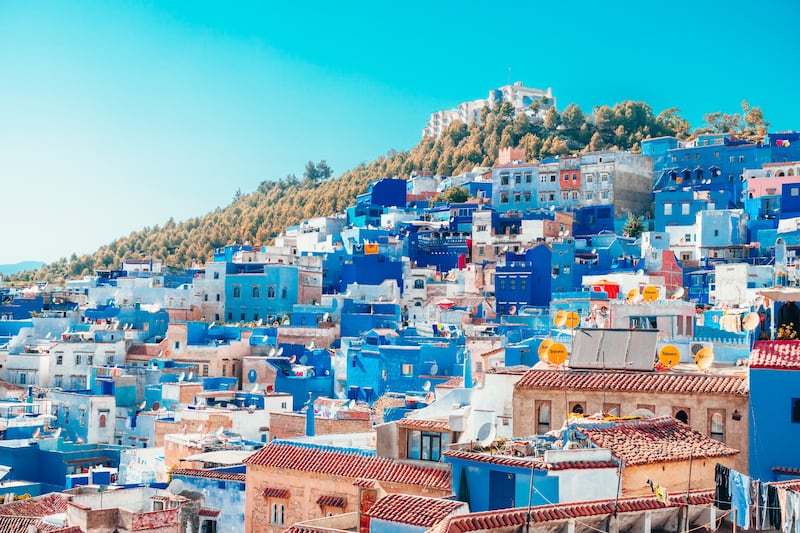
Morocco is welcoming travellers again from February 7. Unsplash

Famed for its bustling markets, colourful riads and rolling Saharan sand dunes, Morocco has reopened to tourists on Monday.
Fully vaccinated travellers can now visit, after the commercial flight ban was lifted.
It is the second time the kingdom will welcome travellers, having originally opened to visitors in June last year.
Five months later, the country closed its airspace because of the spread of the Omicron variant of Covid-19.
Now, with travel once again an option, visits to the Atlas Mountains , days on Essaouira's beaches and evenings wandering through Casablanca's diverse architecture are back on the cards.
Here’s what you need to know before you go.
Do I need to be vaccinated to visit Morocco?
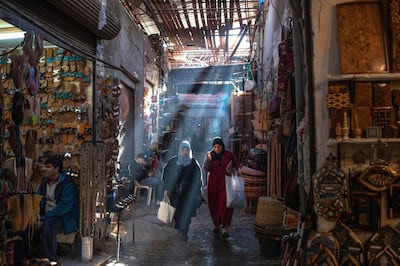
All travellers planning to visit Morocco must be fully vaccinated. The second dose of the vaccine must have been taken at least 14 days before travel.
There are 10 approved vaccines acceptable for travel to the kingdom, including Sinopharm. Children under 18 are exempt from vaccination before travel.
What do I need to do before I travel to Morocco?
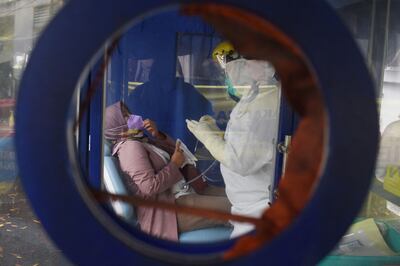
Before flying, travellers must fill out this passenger locator form and have a printed, signed copy of it to hand to authorities on arrival.
Travellers will also need to take a PCR test no more than 48 hours before flight departure time. Results need to be in English, Arabic or French.
Travellers aged 6 and older will have an antigenic test upon arrival in Morocco and some travellers may be asked to take a second PCR test at airports.
All arriving passengers should also expect to undergo temperature screening and some may be asked to take an additional test at their hotel or residence.
Children under 6 do not need to take a PCR before flying to Morocco.
Which airlines are flying to Morocco?
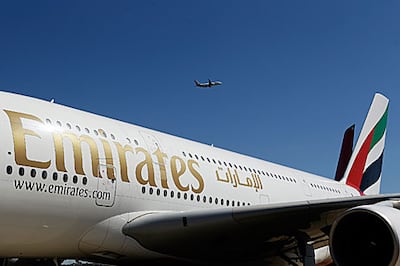
Emirates is restarting its passenger services to and from Casablanca on Tuesday, February 8.
The Dubai airline 's flights to the city will depart at 7.30am, arriving at 1.15pm. Return flights depart Casablanca at 3.05pm, arriving in Dubai at 1.30am the next day.
Economy fares for flights in February start from Dh4,500.
Etihad Airways , the national airline of the UAE, will also recommence flights to Casablanca. The Abu Dhabi airline will fly to and from the northern city from March 3, with return fares for flights in March starting from Dh1,885.
What restrictions are in place in Morocco?
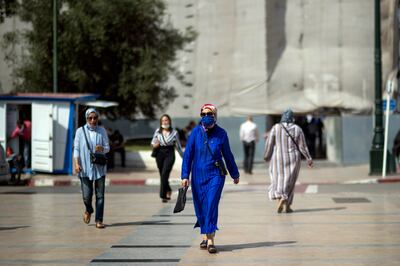
The kingdom of Morocco remains under a state of health emergency. This means there are limits on gatherings, with a maximum of 50 people and face masks in all public places are mandatory.
Hammams, public swimming pools, beaches and sports facilities are open, but have capacities capped at 5 per cent. Restaurants, cafes, shops and supermarkets must close by 11pm.
Travellers need a vaccine pass to enter most public places including hotels, restaurants, shops, etc. It’s important to note that penalties including fines and prison sentences are in place for those not following the rules.
When’s the best time to visit Morocco?
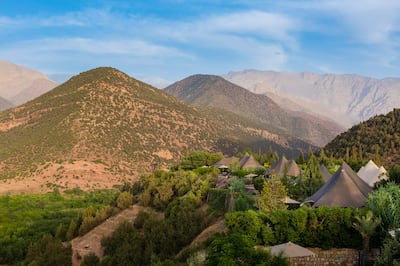
Parts of Morocco can be visited all year round, especially coastal regions and the Atlas Mountains. Spring and autumn are high season across much of the kingdom, as it's when temperatures are warm and pleasant.
If you're planning to fly to Casablanca, you can enjoy a Mediterranean summer with less hot temperatures than destinations in the south thanks to the city's cool Atlantic current.

Cookies on GOV.UK
We use some essential cookies to make this website work.
We’d like to set additional cookies to understand how you use GOV.UK, remember your settings and improve government services.
We also use cookies set by other sites to help us deliver content from their services.
You have accepted additional cookies. You can change your cookie settings at any time.
You have rejected additional cookies. You can change your cookie settings at any time.
- Passports, travel and living abroad
- Travel abroad
- Foreign travel advice
Warnings and insurance
The Foreign, Commonwealth & Development Office ( FCDO ) provides advice about risks of travel to help British nationals make informed decisions. Find out more about FCDO travel advice .
Before you travel
No travel can be guaranteed safe. Read all the advice in this guide as well as support for British nationals abroad which includes:
- advice on preparing for travel abroad and reducing risks
- information for women, LGBT+ and disabled travellers
Follow and contact FCDO travel on Twitter , Facebook and Instagram . You can also sign up to get email notifications when this advice is updated.
Travel insurance
If you choose to travel, research your destinations and get appropriate travel insurance . Insurance should cover your itinerary, planned activities and expenses in an emergency.
Related content
Is this page useful.
- Yes this page is useful
- No this page is not useful
Help us improve GOV.UK
Don’t include personal or financial information like your National Insurance number or credit card details.
To help us improve GOV.UK, we’d like to know more about your visit today. We’ll send you a link to a feedback form. It will take only 2 minutes to fill in. Don’t worry we won’t send you spam or share your email address with anyone.

Morocco Travel Guide
Looking for an in-depth Morocco travel guide ?
Then you’re in the right place!
Morocco is high on many traveler’s bucket lists — and for good reason! This North African country is rich with history and culture as well as absolutely breathtaking landscapes.
Of course, anyone planning a trip to Morocco will want to visit the bustling cities of Marrakech and Casablanca with their iconic markets, Moorish-style buildings and historic attractions.
But there is so much more to see in this gem of the Middle East.
Morocco is full of incredible sites, from beautiful landscapes to truly unique cities and villages.
No trip to Morocco is complete without a visit to Chefchaouen, or the “Blue City,” a city in the Rif Mountains full of striking blue-washed buildings. And the country’s natural wonders like the Sahara Desert are not to be missed!
Keep reading to dive into resources from Jessie on a Journey as well as its sister site Epicure & Culture that will help you with planning a trip to Morocco.
Note: This guide to Morocco travel contains affiliate links to trusted partners!

What would you add to this Morocco travel guide?
Morocco map.
Use this Morocco travel map to begin planning your trip!
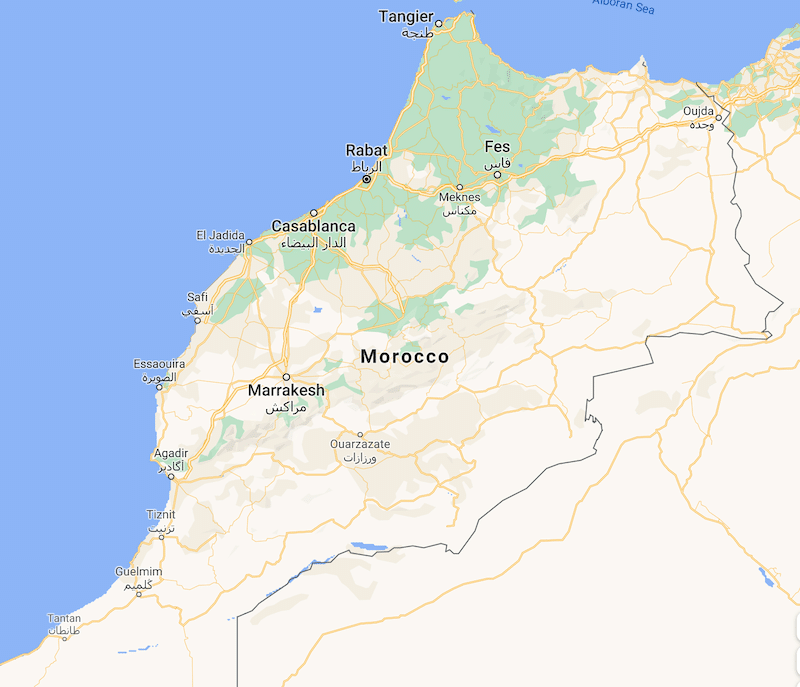
Click here for an interactive version of the above map.
Morcco Travel Tips
The following advice can help you plan an unforgettable trip to Morocco.
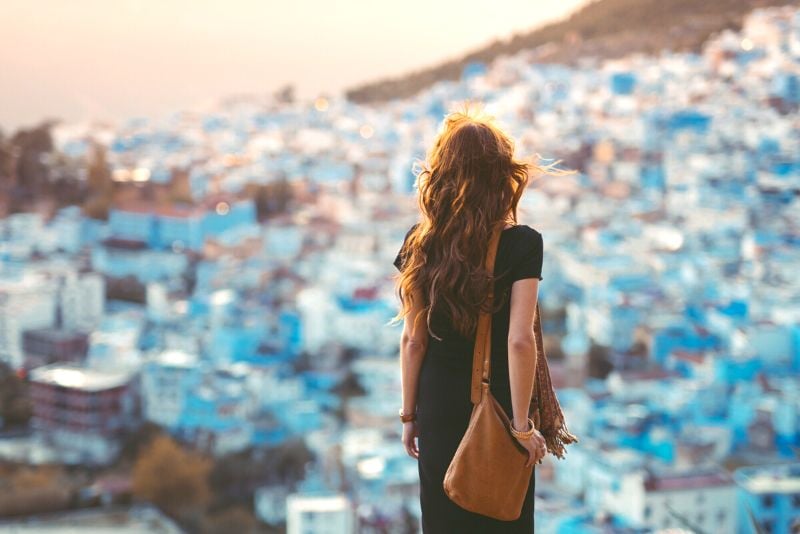
Solo Female Travel In Morocco: The Ultimate Guide (With Map!)
Best Places To Visit In Morocco
Learn about the top places to visit in Morocco .
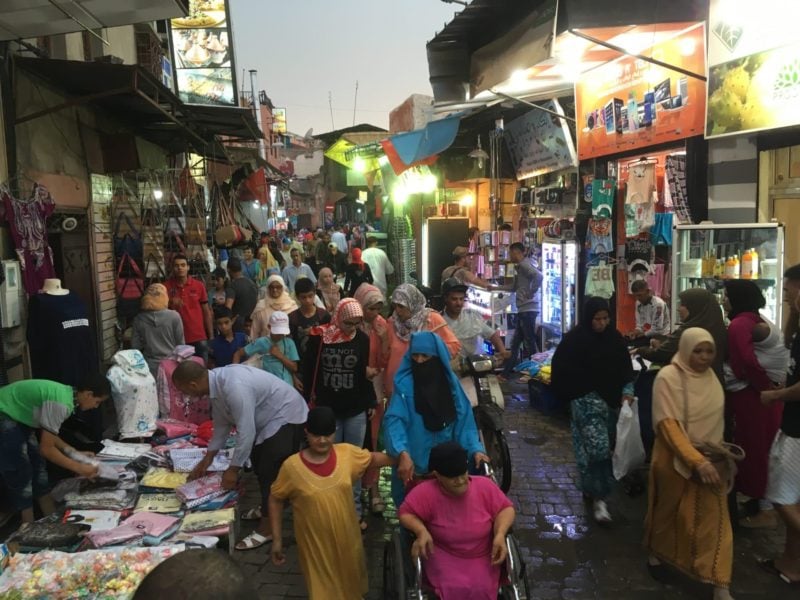
An Unexpected Adventure At Morocco’s Marrakech Bazaar
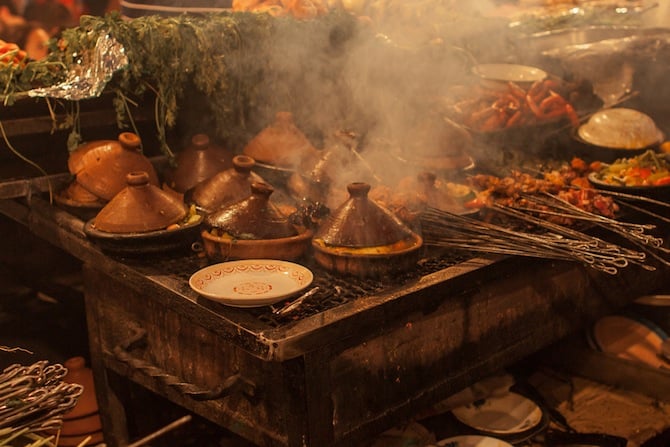
Food, Culture & Going Beyond The Tourist Trail In Marrakech, Morocco
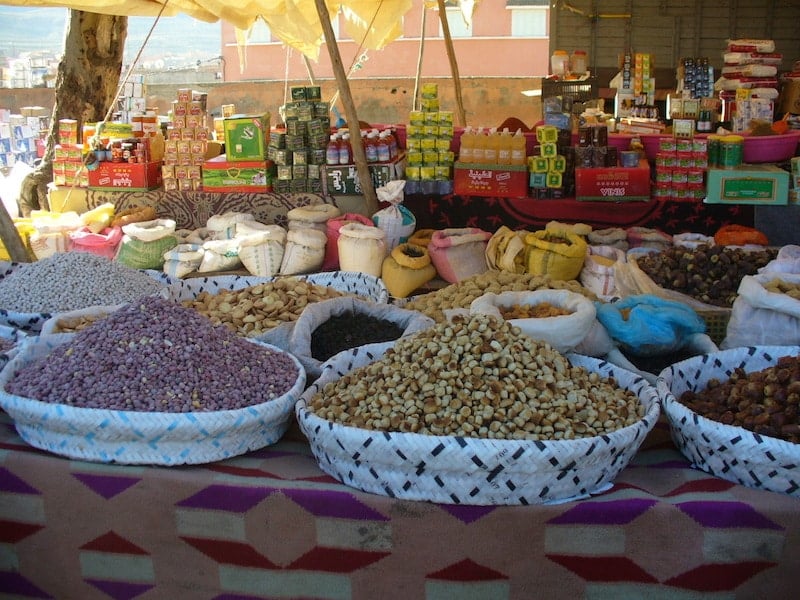
Dining & Dancing With Berbers Near The High Atlas Mountains Of Morocco
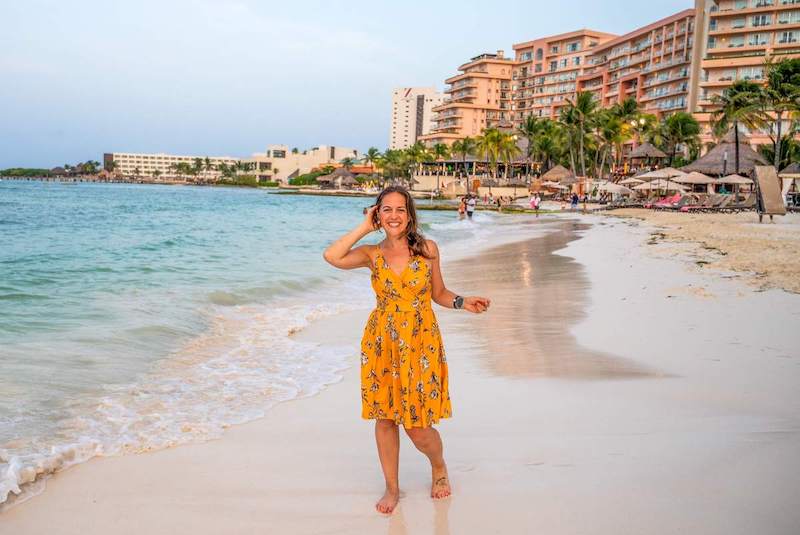
20 Best Beach Destinations For Solo Female Travelers
Exploring Moroccan Culture
Immerse yourself in local culture when you visit Morocco .
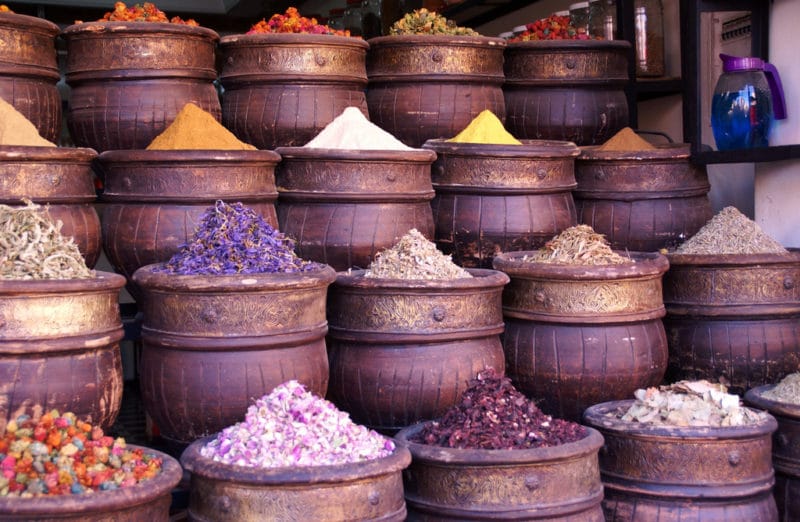
Exploring Holistic Berber Rememdies In Morocco
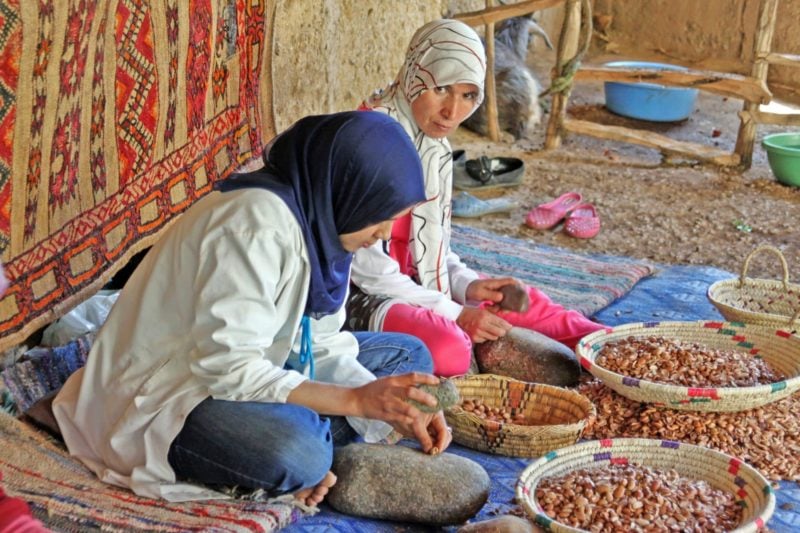
How To Support The Women In Morocco Who Give Us Argan Oil
Explore Morocco Through Food
Add these culinary experiences to your Morocco travel itinerary .
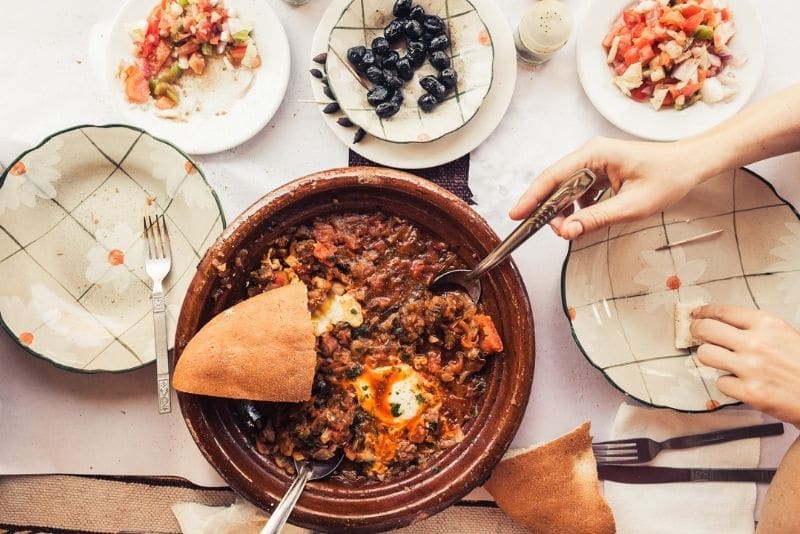
Why Traditional Moroccan Cooking Is An Expression Of Love
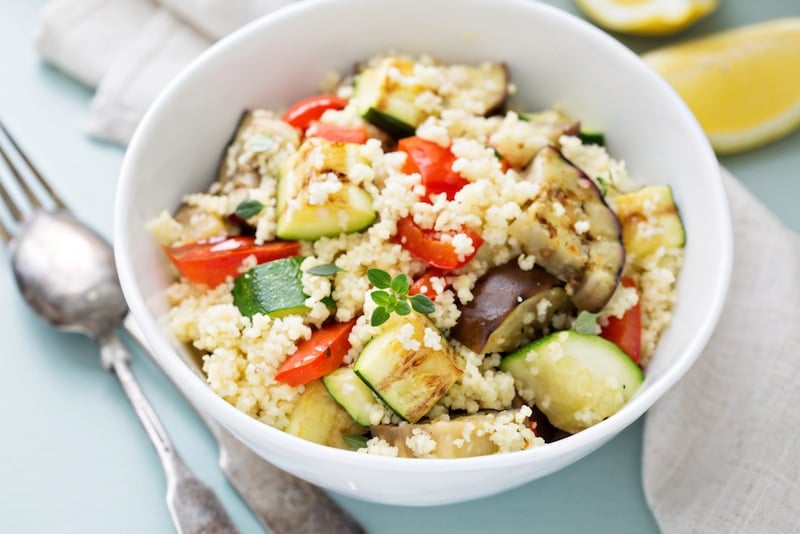
This Moroccan Couscous Recipe Will Immerse You In Authentic Culture
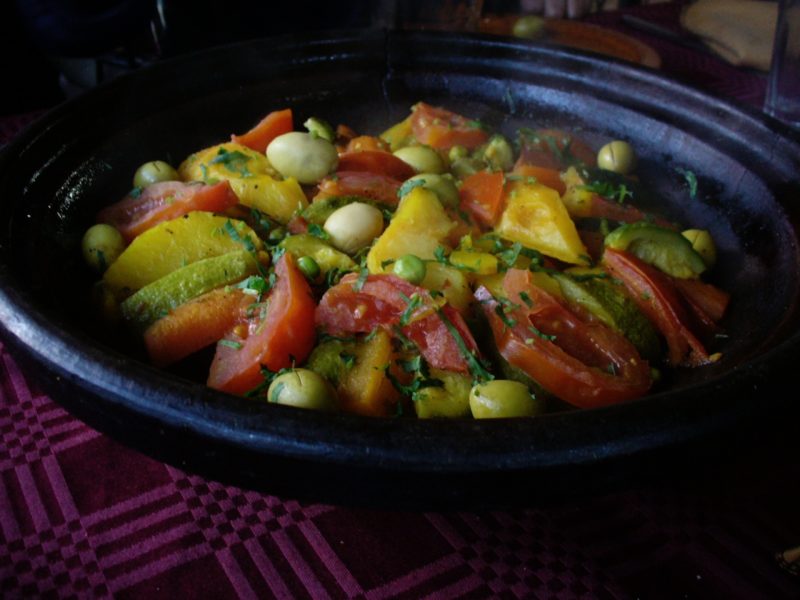
The Tajine: Morocco’s Pride & Passion
Top Morocco Tours
Book a Morocco tour and get to know the culture through a local.
- Sandboarding With Lunch In A Berber House In Agadir
- Visit a Souk and Cook Moroccan Food in Marrakech
- Quad Bike Adventure In Agadir
Morocco Travel Insurance
It doesn’t matter if you’re traveling solo or with a group on a Morocco tour. When visiting Morocco — or any other country in the world — make sure to get travel insurance to protect your health and safety.
In my opinion, the best travel medical insurance for travelers is SafetyWing as they’ve got a large network and offer both short-term and long-term coverage — including coverage if you’re traveling for months as well as limited coverage in your home country).
Additionally, SafetyWing is budget-friendly and offers $250,000 worth of coverage with just one low overall deductible of $250.
With coverage, you’ll have peace of mind as you embark on your Morocco itinerary.
Click my referral link here to price out travel insurance for your trip in just a few clicks .
Morocco Hotels
Click here to browse hotels in Morocco!
Prefer self-contained stays?
Click here to check out unique local rentals!
You can also use this map to search for local stays:
Renting A Car In Morocco
Need a rental car for your Morocco trip?
Use Discover Cars to quickly compare your car rental options.
Morocco Train Travel
Getting around Morocco by train, bus, or ferry?
Omio is a must! It’s a great tool for all of your public transportation needs.
The site is straightforward and user-friendly — and you can pre-book your tickets in advance at a discount.
They even offer flight and car deals!
Morocco Travel Guide FAQ
Below, find answers to frequently asked questions about traveling Morocco .
Q: Is it safe to travel in Morocco?
Though the Middle East and North Africa can be volatile destinations, Morocco is considered one of the most peaceful countries in the region according to the latest Global Peace Index.
That said, it’s important to exercise caution and keep your guard up when visiting Morocco, particularly for women travelers and solo female travelers . That being said, you can absolutely travel alone in Morocco and stay safe.
Street harassment is a common experience for both female travelers and local women. Experts suggest traveling with a companion, dressing conservatively, and considering a group tour in the country if safety is top of mind.
Intrepid Travel is a great sustainable operator that runs tours in Morocco, like these .
Q: What is the best month to travel to Morocco?
The spring and fall months are considered the best times to visit Morocco as the temperatures are comfortable and perfect for sightseeing. The country’s coastal destinations like Safi and Essaouira experience mild weather year-round and are great to visit any time.
Be sure to check the Islamic calendar when planning your trip, though, as transportation and business schedules change considerably during the month of Ramadan and many places may be closed altogether.
Q: What should I avoid in Morocco?
The main things you’ll want to avoid while visiting Morocco are scams. This includes everything from the “Magic Carpet Scam,” in which a shop owner will try to convince a tourist to buy a handmade rug to resell at a mark-up back at home, to taxis with “broken” meters.
Beyond watching your wallet, you’ll want to avoid disrespecting the people of Morocco. Dress a bit more modestly than you would at home, don’t take photos of people on the street without their consent, and be mindful of local religious customs and practices.
Q: What are the best places to visit in Morocco?
The famous cities of Casablanca, Marrakesh, and Fez should not be missed when visiting Morocco, but the country has so much more to offer beyond these destinations. The port city of Tangier is worth visiting for its gorgeous whitewashed medina and colorful alleys. Foodies and hikers alike should definitely visit High Atlas , North Africa’s highest mountain range home to markets full of delicious eats. And pop culture junkies will want to make a trip to Essaouira, a popular beach hangout of 1960s rock stars like Jimi Hendrix and a one-time shooting location for Game of Thrones !
Q: Do I need a visa to visit Morocco?
A visa is not required for US citizens visiting Morocco for less than 90 days. The same is also true for visitors from the European Union, the United Kingdom, Canada, Australia, and several other countries and regions throughout the world.
It’s recommended to view your country’s Morocco International Travel Information page for the most up-to-date information on entry and exit requirements. You can also contact the Embassy of Morocco.
Q: Are credit cards accepted in Morocco?
Credit and debit cards are widely accepted in tourist areas of Morocco, with Visa and Mastercard being the most widely accepted cards. Even when you bring a credit card with you, it’s also wise to carry a bit of cash.
Q: What is the local currency in Morocco?
The local currency in Morocco is the dirham.

Enjoyed this guide to Morocco travel? Pin it for later!
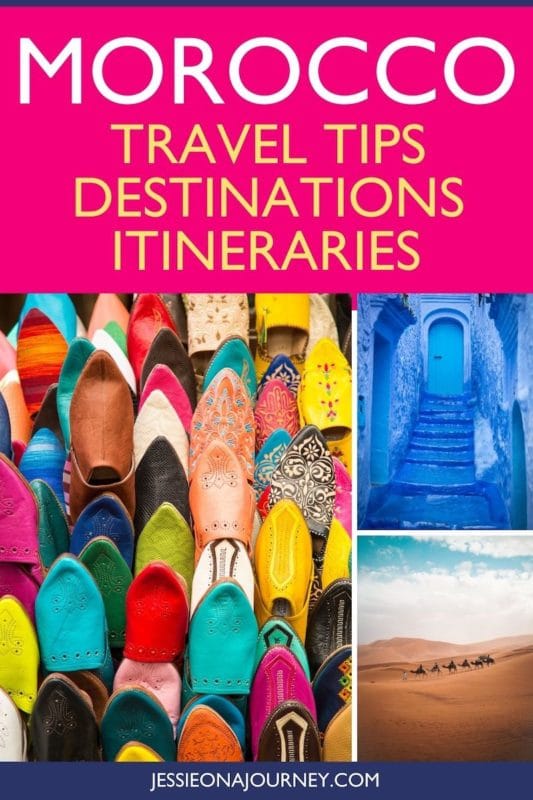
Explore Morocco
Plan your trip to morocco: best of morocco tourism.

Essential Morocco

Trending in the forums
Morocco Is Great For
High-octane.

Eat & drink

12 of the best things to do in Morocco

Mar 29, 2024 • 9 min read
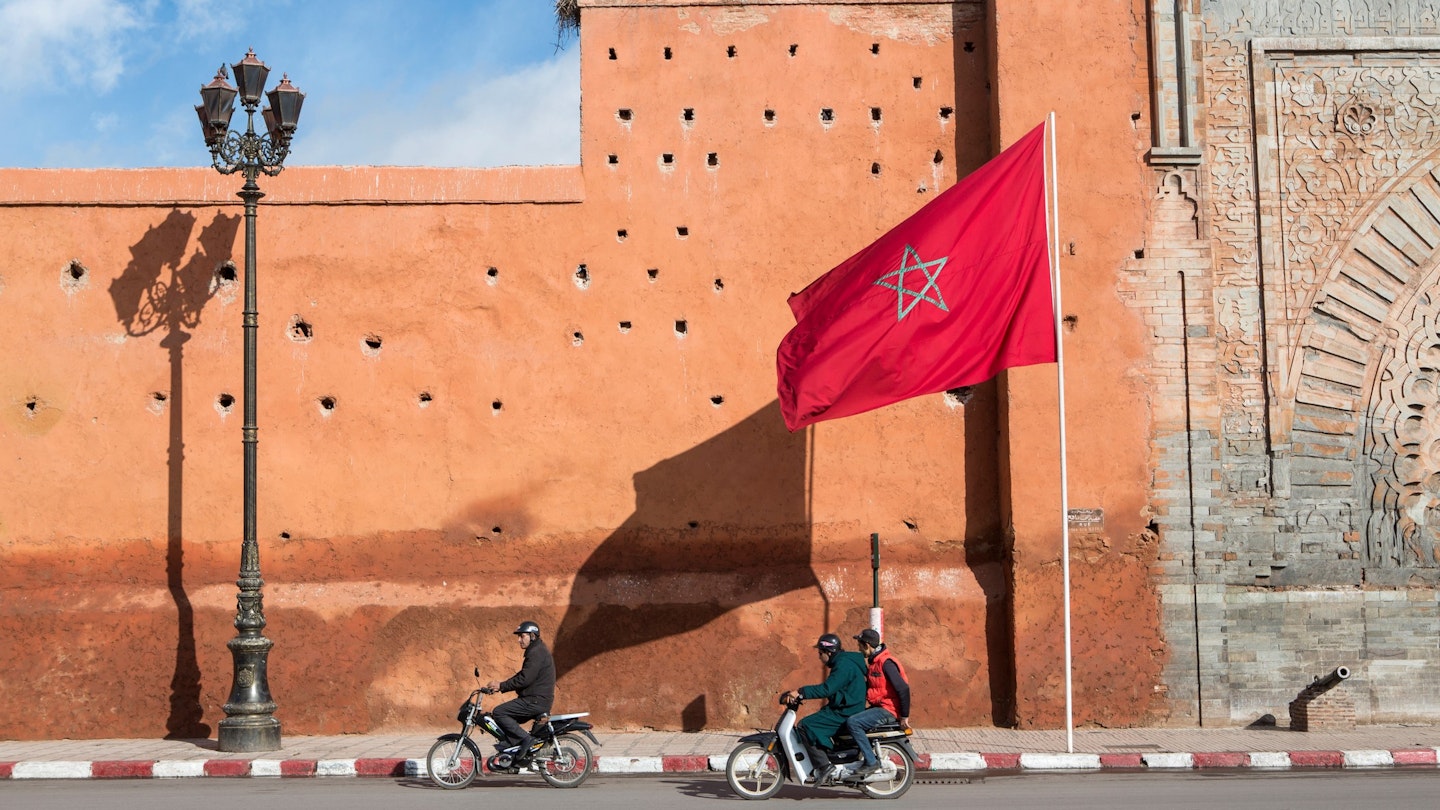
From exploring the Red City of Marrakesh to surfing on the Atlantic Coast, here are Morocco's top experiences © Tim E White / Getty Images
Morocco is a country of dazzling diversity, from its ancient cities and craggy mountain ranges to rolling deserts and deserted beaches .
One day you could be scaling Toubkal, North Africa’s highest peak; the next, you could be meeting designers in Marrakesh, riding the Atlantic rollers in Essaouira, strolling through the twisting blue alleyways of Chefchaouen or savoring street food in the medieval medina of Fez.
There’s certainly no shortage of things to do, but here are some of the best.
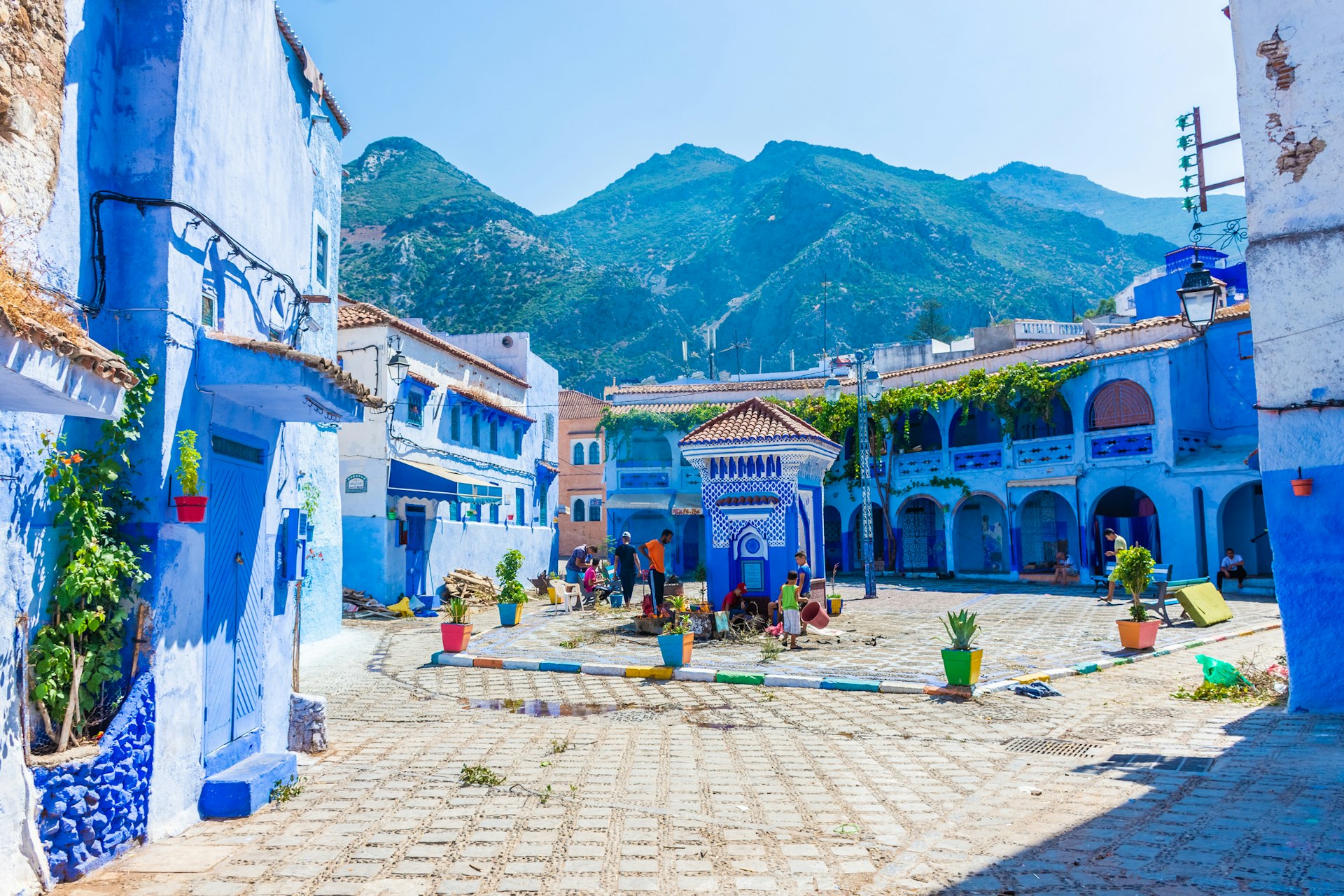
1. Lose yourself in the medinas of Marrakesh, Fez and Chefchaouen
The fabled Red City of Marrakesh is a sensory overload of sights, sounds and smells. Its ancient medina is a maze of narrow streets with the Djemaa El Fna – arguably Africa’s most famous square – at its heart, and its nightly circus of storytellers, snake charmers and musicians.
In Fez , Morocco’s oldest imperial city, time appears to have stopped. Dating back to the 8th century, Fez El Bali – the world’s largest living medieval medina – is a jumble of souqs, workshops and mosques, with a tangle of more than 9000 narrow alleyways to explore.
Tucked into the green folds of the Rif Mountains, charming Chefchaouen is famed for its blue-hued medina. Soak up its relaxed pace of life by wandering its cobbled streets and sipping a mint tea in an open square, then hike the trails of Talassemtane National Park with its luminous waterfalls and forests of fir trees.
Planning tip : The best time for exploring Morocco ’s medinas is spring and autumn. Summers get very hot – temperatures can reach over 40°C (104°F) in July and August – and winters can be cold.
Explore Marrakesh effortlessly with GetYourGuide. Book your tour today .
2. Check out Casablanca’s show-stopping architecture
Casablanca ’s most iconic landmark is the Hassan II Mosque , one of the world’s largest mosques, open to non-Muslims on guided tours. The monumental prayer hall can hold 25,000 worshippers – another 80,000 can fit in the courtyards outside – and it showcases the finest Moroccan crafts, with hand-carved stucco, painted wood and stunning zellige (mosaic tilework).
Downtown Casa is an al fresco museum of architecture, from the neo-Moorish tiled façade of La Grande Poste to art deco apartment blocks, and Place Mohammed V’s uber-modern Grand Théâtre de Casablanca designed by French "starchitect" Christian de Portzamparc.
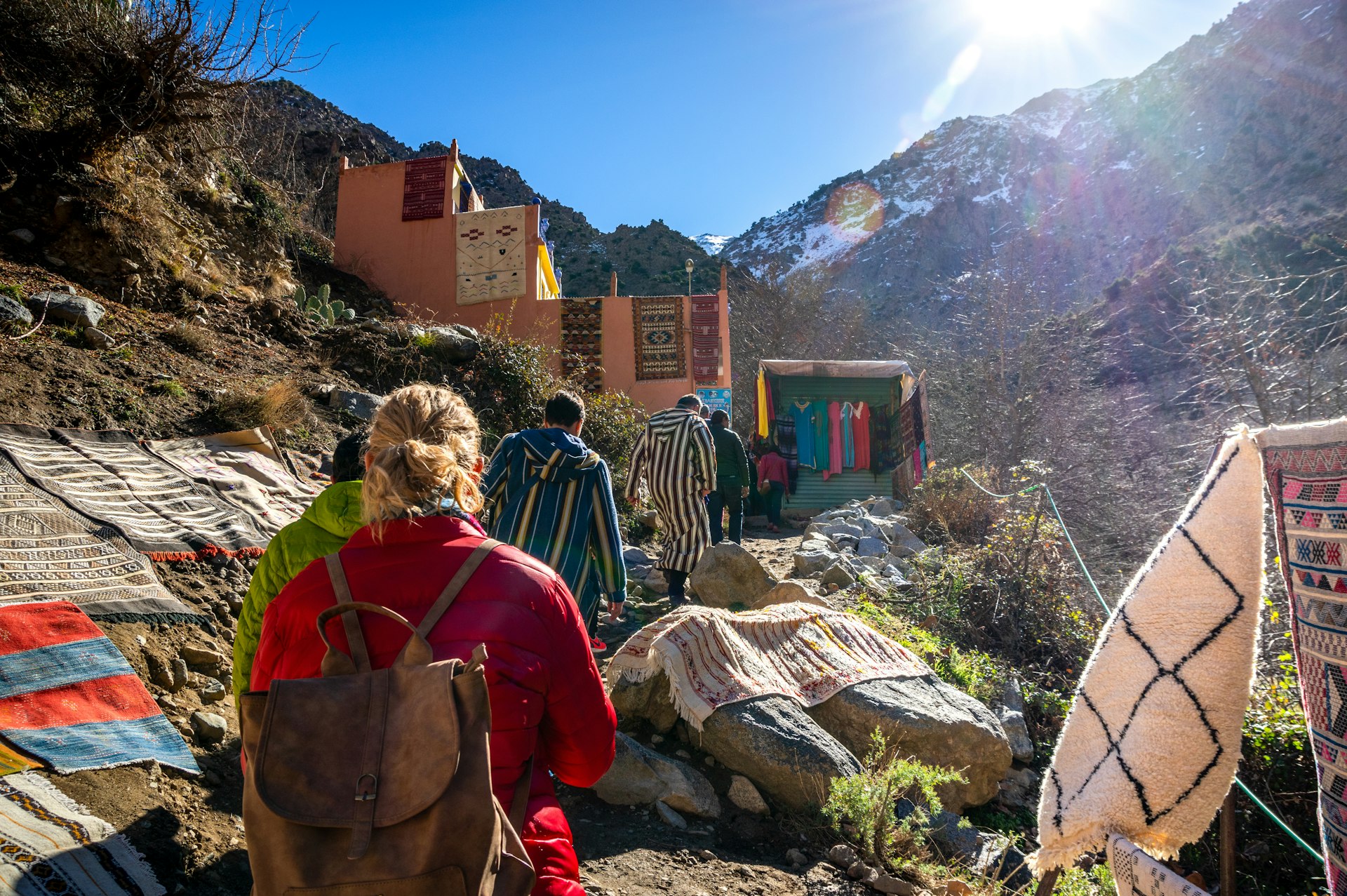
3. Hike the Atlas Mountains
The High Atlas is a hiker’s paradise , running diagonally across the country for around 1000km (620 miles), from the Atlantic coast to northern Algeria. Imlil , located in the foothills of the High Atlas 90 minutes from Marrakesh, is the jumping-off point for scaling Toubkal , North Africa’s highest peak at 4167m (13670ft), a two-day ascent.
If you have more time, the week-long Toubkal circuit follows centuries-old trails between remote Amazigh villages, crossing fertile valleys, rugged massifs and panoramic passes.
For even less-trodden trails, the region around Tafraoute is Morocco’s Amazigh heartland, where tribes and traditions hold firm. Surrounded by lush palm groves and hilltop kasbahs, the Anti Atlas makes the perfect base for hikers – at 2359m (7740ft), Jebel El Kest is the region’s highest peak, but there are more gentle hiking and cycling routes passed the picturesque villages of the Ameln Valley.
4. Catch the wind and waves on Morocco’s Atlantic coast
Dubbed the “Wind City of Africa” for its coastal breezes, Essaouira is the perfect spot to take to the water, whatever your ability. Sleepy Sidi Kaouki, 30 minutes' drive south, is another option, with consistent waves, wild beaches and wallet-friendly accommodation.
Further down the coast, quiet Mirleft , 130km (80 miles) south of Agadir , is home to some of Morocco’s best surfing spots. Here Spot-M takes out experienced and novice surfers for group and individual lessons, and it runs week-long surf camps with yoga thrown in.
Detour : Far-flung Dakhla is as south as it gets, but with reliable year-round wind conditions and calm lagoon waters, it’s being hailed as Morocco’s kitesurfing capital.
Transform your visit to Morocco’s Atlantic coast by booking with GetYourGuide.

5. Get steamed and scrubbed at a hammam
After a long day of sightseeing, head to a hammam to be steamed, soaped, scrubbed and massaged into a state of total relaxation. Every neighborhood has one, and they come in all shapes, sizes and levels of luxury, from a simple steam and scrub at a no-frills public bathhouse to a higher-price private hammam at a swanky hotel with more elaborate wraps and massages on offer. Wherever you go, you’ll emerge squeaky clean with baby-soft skin.
Planning tip : Pick up traditional hammam gear at the souq, including savon beldi (black soap), a kessa (course scrubbing mitt) and ghassoul (cleansing clay).
Transform your visit to a Hammam by booking with GetYourGuide .
6. Take a foodie tour of Fez medina
Moroccan cuisine is a genuine melting pot – alongside Amazigh (Berber) influences, Arabs, Moors, Ottoman Turks and French all left their culinary mark. One of the best ways to discover it is on a street-food tour. Fearless foodies sample everything from snail soup to boiled sheep’s head, plus tempting sweet treats such as chebakia (deep-fried dough coated in sesame seeds) and wild honey.
Head to the legendary Café Clock to learn how to create three traditional dishes after souq shopping for super-fresh ingredients, or dive into the dough at The Ruined Garden , where you’ll bake five kinds of typical bread, including baghrir or “thousand-holes” pancake.
Detour : In the Middle Atlas, you can also visit a boutique fromagerie , discover the age-old process of hand-rolling couscous and taste new Moroccan wine from a French enologist. Check out luxury tour outfit Plan-it Morocco for more.
Explore the Fez Medina effortlessly with GetYourGuide. Book your tour today .
7. Shop-til-you-drop in Marrakesh
Marrakesh will satisfy the most insatiable shopaholic. The labyrinthine passageways of the souq are devoted to everything from aromatic spices to leather babouches (slippers) and shaggy wool rugs, with artisans weaving, hammering and carving out their wares as they’ve done for centuries. And now homegrown and international designers are working alongside them, giving age-old crafts a contemporary twist.
The fixed-price boutiques of Gueliz (the French-built Ville Nouvelle) take away the hassle of haggling . Along the rue de la Liberté, Atika sells top-quality leather shoes for a fraction of the price of designer brands. And opposite the must-see Jardin Majorelle (the former home of Yves Saint Laurent), concept store 33 rue Majorelle stocks clothes, accessories and jewelry from top Moroccan designers, including fair trade cooperatives.
Local tip : Don't begin negotiating on a price unless you genuinely want to buy something. Remain calm and courteous. If you feel under intense pressure to make a purchase, you can always walk away, but remember: for shopkeepers, this is their livelihood.

8. Stargaze from a shape-shifting Saharan dune
Scramble to the summit of a sky-high dune at sunset and savor the silence and the stellar views as you watch the desert turn gold, pink and purple. Camp overnight Bedouin style and sleep under a blanket of stars. You might spot the arc of the Milky Way. At Erg Chigaga , you’re not only off the grid but also several hours' camel trek from the nearest street lights.
Planning tips: Travel in the Sahara is best between October and early May. In the depths of the Saharan winter (especially December and January), overnight temperatures can fall below freezing. Almost unbearable heat blankets the Sahara from June to early September. Camel excursions head out from M’Hamid into the Erg Chigaga. From Merzouga, you can also take a 4WD trip out into Erg Chebbi. Both Merzouga and M’Hamid are a one-day bus ride from Marrakesh.
9. Move to the rhythms at one of Morocco’s many music festivals
Morocco’s rich musical culture boasts influences from Amazigh to Andalusian, Arabian to sub-Saharan, and it’s fast becoming a top spot for music festivals showcasing eclectic rhythms.
One of the most popular is the Gnaoua World Music Festival , which draws festival-goers to the laid-back coastal city of Essaouira for four days of open-air concerts featuring the hypnotic rhythms of gnaoua , a musical and spiritual tradition brought north by sub-Saharan enslaved people in the 16th century. Casablanca plays host to Jazzablanca , which showcases well-known and up-and-coming artists from Morocco and around the globe.
Sufi chanters, African-American jazz saxophonists, Colombian harpists and international headliners like Björk flock to Fez for its annual Festival of World Sacred Music. Mawazine is said to be the world’s largest music festival, attracting a staggering 2.75 million people and turning Rabat into a gigantic open-air stage.
Planning tip : If you’re heading to a festival, book your accommodation as far in advance as possible and be prepared for higher prices.

10. Step back in time in Skoura’s palm oases
Like a green carpet spread on top of the red-tinged rocky landscape, Skoura’s idyllic palmeraie rustles with dates palms. With stylish guesthouses and farm-to-fork restaurants, it makes the perfect place to linger and enjoy the slower pace of oasis life.
The region is dotted with labyrinthine ksar (fortified villages), including Ait Ben Haddou – a UNESCO World Heritage Site and star of many a film, including Gladiator (2000) – and imposing mud-brick kasbahs , such as the magical ruins of Kasbah Amridil . Rural souqs showcase the oases’ bountiful produce, including pomegranates, apricots, figs and almonds, and it makes a great base to explore the scenic Dadès Gorge and Todra Gorge to the northeast, and the Draa Valley to the southeast.
11. Follow in the footsteps of literary giants in Tangier
For the first half of the 20th century, Tangier was one of the Mediterranean’s most cosmopolitan resorts, an International Zone with a bohemian vibe beloved by the Beat Generation in the 1950s.
A host of literary figures have taken their inspiration from this legendary port city over the years. William S. Burroughs penned Naked Lunch at the Hotel El-Muniria, where you can still take a mint tea on the terrace overlooking the Mediterranean. And Paul Bowles made Tangier his home for more than 50 years, using it as both subject and setting for The Sheltering Sky . Visit his exhibition at the Tangier American Legation Museum , then follow in his footsteps to Café Hafa overlooking the Straits of Gibraltar.
You can find these authors and more in the historic bookstore Librarie des Colonnes , which opened its doors in 1949 and was frequented by the likes of Tennessee Williams and Truman Capote.
Explore Tangier effortlessly with GetYourGuide. Book your tour today .
12. Ride the rails on Africa’s first high-speed train
The launch of Al Boraq – Africa’s first high-speed rail link named after a mythical winged steed – means you can visit Tangier on a day trip from Casablanca or combine the two very different coastal cities on a mini-break. The slick silver train will whizz you to your destination in just over two hours, hitting speeds of up to 320kmh (200mph), with stops in Rabat and Kenitra. And it’s eco-friendly, getting 25% of its power from renewable energy, with plans to extend this to 50% by the end of 2023.
Planning tip : If the ONCF website still only takes Moroccan credit cards, you'll need to buy tickets at the station. Alternatively, you can go through an online retailer like Marrakech Tickets , who will add a small commission fee to the total.
This article was first published Oct 27, 2022 and updated Mar 29, 2024.
Explore related stories
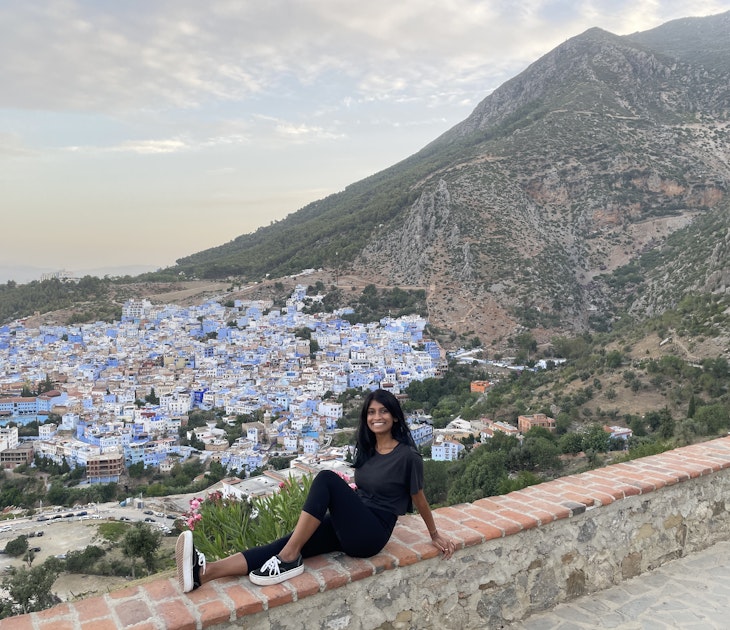
Jan 17, 2024 • 6 min read
Lonely Planet's Director of Social Media, Deepa Lakshmin, visited Rabat, Casablanca, Chefchaouen, Fez and Marrakesh by bus. Here's how you can too.
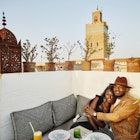
Nov 30, 2023 • 11 min read
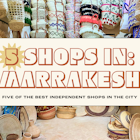
Aug 30, 2023 • 5 min read
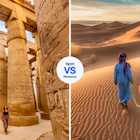
Aug 10, 2023 • 7 min read
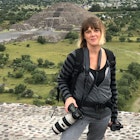
Apr 7, 2022 • 6 min read
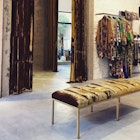
Jan 20, 2020 • 5 min read
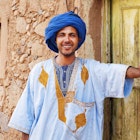
Jan 8, 2020 • 11 min read
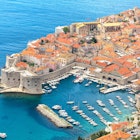
May 16, 2019 • 6 min read
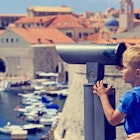
Feb 22, 2019 • 8 min read
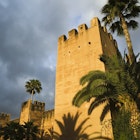
Dec 18, 2018 • 7 min read
Travel to Morocco: A Complete Guide (Tips + Morocco Itinerary).
- By Sarah Steiner
- Updated On April 22, 2024
Welcome to our Morocco Travel Guide! It’s safe to say we love Morocco. It’s April 2024 and we are just wrapping up SIX months of travel to Morocco.
We arrived by ferry from Spain and have hugged and surfed the beautiful Atlantic coastline. We loved the contrast of the famous imperial cities (Fes, Marrakech, Chefchaouen) and desert towns (Ouarzazate, Merzouga and Zagora) heading all the way inland to the Sahara Desert. And we ventured way down south to camel markets (Guelmim), historic settlements (Sidi Ifni) and surfing hotspots (Taghazout, Tamraght and Dakhla).
So now; after six incredible months of travel to Morocco here is our complete Morocco Travel Guide and itinerary with everything you need to know for an epic trip to Morocco of your own!
In this Morocco travel guide you will find:
- Travel to Morocco
- Best time to visit
- Visas
- Traveling to Morocco
- Data, WIFI and connectivity
- Safety in Morocco
- Money and ATM’s
- Food and alcohol
- Transportation within Morocco
- Morocco itinerary
- Places to visit in Morocco – Tangier – Chefchaouen – Fes – Rabat – Casablanca – Essaouira – Marrakech – Agadir – Merzouga – Ouarzazate – Ait Ben Haddou
- Accommodation in Morocco
- More about travel to Morocco
About Morocco, just quickly
- Full Name: The Kingdom of Morocco
- Capital: Rabat
- Official languages: Arabic and Moroccan Berber
- Religion: 99% Islam
- Currency: Moroccan Dirham (MAD)
- Population: 37,080,000 (2021)
- Time Zone: National Standard Time (UTC+1)
- Calling Code: +212
- Drives On: Right
- Credit Cards: Visa/MC accepted
- Outlets: Plug Type C and E (220 V / 50 Hz)
Travel to Morocco – the country, the people and its culture
Morocco has a unique history that has largely been influenced by its geographical placement in between Europe and Africa and bordering the entrance to the Mediterranean Sea.
Size-wise it is a large country and has an incredibly varied landscape and culture in the different directions of each border. But one thing that is constant all over the country is the Moroccan culture and warm hospitality.
On the northern Atlantic coast the first cities that welcome any traveller are the coastal towns of Tangier and Asilah.
Inland, the famous imperial cities of Marrakesh and Fez do not disappoint. Marrakesh is more modern and popular as a starting point, but Fez is iconic and traditional and definitely worth adding to your Morocco itinerary.
Agadir, Rabat and Casablanca are Morocco’s other large cities and offer the coastline as well as street food and the famous Hassan II Mosque (the only mosque you can visit as a tourist in Morocco).
The Atlas Mountains provide truly stunning scenery and are popular as a destination for trekking and exploring or just as a daytrip from Marrakech.
And hidden away in the Rif Mountains, Chefchaouen is arguably Morocco’s most iconic and prettiest town.
Read more about options to choose the best Morocco itinerary below.
Do I need a visa to travel to Morocco?
Citizens of the following countries and territories can enter Morocco visa-free for up to 90 days (unless otherwise noted):
- All European Union member states, Algeria, Andorra, Argentina, Australia, Bahrain, Brazil, Burkina Faso, Canada, Chile, China, Colombia, Cote d’Ivoire, Dominican Republic, Gabon, Indonesia, Japan, Kuwait, Liechtenstein, Macao, Malaysia, Mexico, Monaco, New Zealand, Niger, Norway, Oman, Peru, Philippines, Qatar, Russia, San Marino, Saudi Arabia, Senegal, Singapore, South Korea, Switzerland, Togo, Tunisia, Turkey, United Arab Emirates, United Kingdom, United States.
Visa-free entry for Morocco is valid for both airport and land borders for the countries listed above.
Other foreign nationals wishing to enter Morocco must obtain a visa prior to arrival.
On July 10, 2022, the Moroccan government launched an e-Visa system to facilitate the granting of visas to foreign nationals subject to this formality.
Best time to visit Morocco
Traditionally, the best time to visit Morocco in terms of the weather is during the spring (April and May) and autumn (September and October) months. This is when the climate is pleasant and summery throughout the country without being too hot for day-time exploration.
However, in our experience we would also recommend the wintertime (December, January and February) as a perfect escape from the Northern-hemisphere. And to make the most of the sunshine and pleasant day-time temperature. Winter is also a good time to explore the south and the Sahara fringes and further inland without overwhelming heat. Albeit do remember that even in the desert it can get bitterly cold during the night.

Getting to Morocco
Morocco is geographically located in North Africa. It is possible to travel to Morocco by air, land and sea.
Travel to Morocco by air
Morocco has 8 main international airports. Casablanca is the country’s major airport and hub for the national carrier, Royal Air Maroc.
International airports in Morocco:
Travel to Morocco by land
If you want to travel to Morocco by land, know that it shares a border with two countries: Algeria and Mauritania.
The border between Morocco and Algeria is closed and has been closed for years. But it is possible to cross the border from Morocco to Mauritania.
- Read all about crossing the Morocco – Mauritania border from Dakhla to Nouadhibou here.
Travel to Morocco by sea
It is also possible – and easy – to enter Morocco at the port borders in the north of the country at:
- Tangier Med
It is possible to bring a vehicle or motorhome with you to Morocco on the ferry from Europe. (This is what we did).
- Read all about how to travel to Morocco with a motorhome on the ferry from Algeciras, Spain to Tangier Med .
Is it safe to travel to Morocco?
Morocco is regarded as a safe country to travel to. Crime rates are relatively low. And in all our travel to Morocco we have never felt unsafe or questioned our safety.
The country has seen a huge rise is visitor numbers in recent years as tourists – especially from Europe, UK and USA – are looking for an off the beaten track and unique travel experience. And along with travel anywhere that is more adventurous, aspects such as public safety, hygiene standards, and societal norms may be different to what you are used to.
It is expected that you respect and understand its laws and cultural customs and adhere to the status quo.
Unfortunately Morocco does sometimes have a reputation for scams and pickpockets, especially in the public spaces of tourist hotspots like Marrakech, Fes and Essaouira. Much of Morocco’s economy depends on tourism and petty crime and ‘tourist traps’ can catch a visitor by surprise. Keep your valuables safe and carry small amounts of cash. And as with any travel around the world it is important to be aware of your surroundings.

Internet connectivity and WIFI in Morocco
In general, internet and WIFI connection is good (surprisingly so by travel standards) across the country. Hotels and accommodation in the cities will have WIFI available (at varying speeds). In the desert regions and further south in Morocco the connection is often weaker.
If you rely on WIFI for work I suggest tethering to your SIM card with data. See below, but the mobile networks are often faster and more reliable.
SIM cards and data
There are three mobile network operators: Maroc Telecom, Orange and INWI.
It is easy to buy a prepaid SIM card on arrival at the airports and at Tangier Med (ferry port). And in the cities you will see roving vendors wearing branded t-shirts of the different network providers selling SIM cards and recharge vouchers.
Data is inexpensive and it is straightforward to recharge prepaid connections using scratch cards that can be purchased at kiosks and convenience stores all over the country.
- Read all about buying a SIM card in Morocco and how to get unlimited data.
Get a VPN for traveling in Morocco
You should always use a VPN when you travel. And especially when you connect to public Wi-Fi networks.
Your connection with a VPN will be much safer. And you will be able to access any content that is typically censored or blocked in Morocco.
Money, currency and cash when you travel to Morocco
The Moroccan dirham is the official currency of Morocco.
- 10 MAD = 1 USD
- 100 MAD = 10 USD
- 1000 MAD = 100 USD
Dirham are available in banknotes of 20, 50, 100 and 200. Coins are available in denominations of 1/2, 1, 2, 5 and 10 dirham.

ATMs in Morocco
You can find ATMs in the main cities and towns in Morocco.
Credit cards (VISA and Mastercard) are accepted at mainstream city accommodations, high-end restaurants, large supermarkets and shopping malls.
However, Morocco is a cash-based society. You will need to always carry cash with you in Moroccan Dirham.
ATMs in Morocco will give you a maximum of 2,000 – 4000 MAD per transaction (approximately 200 – 400 EUR/USD.)
These are the ATM’s in Morocco we have used (mostly successfully) to withdraw local currency:
- Societe Generale
- Attijariwafa Bank
- Banque Populaire
Morocco has fairly high withdrawal charges with a standard withdrawal fee (regardless of amount withdrawn) of 35 MAD.
How much does it cost to travel to Morocco?
It really depends on how long you have, where you go and ultimately your Morocco itinerary.
Typically, meals costs somewhere between 5 and 10 USD. Accommodation in Morocco usually includes breakfast.
- Bottle of water (1.5L): 6 MAD
- Bread: 1.5 MAD
- Tagine (2 person): 50 MAD
- Cappuccino: 15 MAD
- Orange juice (fresh): 10 MAD
- Sprite or Coke (330ml): 6 MAD
- Sandwich/Panini: 35 MAD
- Meal at McDonalds: 65 MAD
- Bananas (1kg): 15 MAD
- Milk (1L): 8 MAD
- Beer (330ml): 25 – 40 MAD
- Wine (750ml): 60 – 110 MAD
- Petrol (1L): 14 MAD
- Diesel (1L): 13 MAD
Food and alcohol in Morocco
There’s a lot more to Moroccan cuisine than couscous and tajines. The traditional foods of Morocco are mouth-watering.
Moroccan dishes are influenced by Berber, Jewish, Arab, Spanish and French cultures. And food plays a very important role in traditional Moroccan culture and is seen as a symbol of hospitality.
Alcohol isn’t readily available around the country. But it is legal to drink alcohol in Morocco. Many larger hotels will serve alcohol and in the cities (Marrakech, Fes, Essaouira, Agadir) there are restaurants and bars in and around the medina that serve alcohol.
Food in Morocco you need to try
The most common food items you will come across on your travel in Morocco include slow-cooked meats, couscous, bread, dates and sweets and of course, Moroccan mint tea. LOTS of mint tea.
- Tagine: Slow-cooked meat and vegetables cooked and presented in a conical-shaped clay pot.
- Couscous: Originally from Morocco and typically served with meat or vegetable stew. Traditionally prepared on Friday and served for special occasions.
- Harira: Lentil soup usually served as a starter or used during Ramadan to break the fast at dusk.
- Bastilla: Flaky pie traditionally made with pigeon or chicken.
- Khobz: Crusty bread typically baked in communal wood-fired ovens and served with meals.
- Bissara: Hearty soup made from dried fava beans and commonly served during breakfast
- Tanjia: Like tagine, meat slow-cooked in a covered clay pot.
- Chebakiya: Flower-shaped, fried sesame cookie dipped in honey.
- Kaab el Ghazal (Gazelle Horns): Crescent-shaped pastires made with almond paste, orange flower water and cinnamon.

Language for your travel to Morocco
Arriving in Morocco you’ll quickly discover that the language spoken amongst Moroccans is an amazing blend of Arabic, French, Berber (Amazigh) and sometimes a little English (or even Spanish). And without doubt the people you encounter and interact with will appreciate your effort at speaking a bit of their language.
- Hello: As-salaam Alaykum (literally means peace be with you)
- And unto you peace – Walaykum As-salaam (said in response to the above)
- Thank you: Shukran
- You’re welcome: Al ‘afw
- How are you? Labas?
- Good: Mezya
- How much? Be kam?
- Please: Afak
- Delicious: Hadshi bneen
- Yes: Wah
- No: La
A greeting of ‘Salam’ is always received with a smile.

Transportation for your travel to Morocco
Public transportation is an adventure in itself when traveling in Morocco. It can be hit or miss with taxis and buses between cities or taking a shared taxi. The bigger cities like Marrakech and Casablanca have public bus routes within the city but the buses are often old and overcrowded and don’t necessarily follow a route or timetable…
But, travel to Morocco is an adventure and that is what we are here for; right?
Travel in Morocco by train
The best way to travel between Moroccan cities is by train. Morocco now has Africa’s fastest trains traveling at 300km/h (186mph) linking Tangier, Rabat and Casablanca every hour over a new high-speed line. Classic trains link northern Tangier and Casablanca with Meknes, Fes and Marrakech.
Travel in Morocco by rental car
Renting a car in Morocco gives you the ultimate freedom to explore in any direction and at your own pace of travel. Car rental in Morocco costs between 15 and 50 USD a day. The price will depend on the company that you rent with and the model you rent. Don’t be put off by concerns of self-navigating Morocco.
- Read our complete guide to driving in Morocco .
Travel in Morocco by plane
RAM (Royal Air Maroc) operates domestic flights from Casablanca to six major cities in Morocco. You will usually have to change planes at Casablanca, unless both points are stops on a single Casa-bound flight. In general domestic flights are expensive, but it will save you a lot of time.
Travel in Morocco by bus
Intercity buses are the most common mode of transport between cities in Morocco and are a cheap and efficient way to get around.
The most popular bus companies are:
- Ghazala
It is possible to book tickets online for Supratours and CTM or you can book in person at the bus station (easier; and definitely more reliable).
Buses between cities are reasonably priced with a ticket between Marrakech and Casablanca between 80 – 110 MAD ($8 – $11 USD) per person for the 4-hour bus ride.
Travel in Morocco by taxi
There are different types of taxis to get around Morocco. The most common are shared taxis (which in essence operate a bit more like a mini-bus system):
- Petit taxis: These are small cars to get around town and can hold up to three people (yes; only three passengers are allowed at a time). They’re very cheap to use and you can just wave one down and check with the driver where he is going and negotiate your price upfront.
- Grand taxis: These are shared taxis that can carry up to six passengers. They often won’t leave the taxi station until the taxi is full but because they are so popular the wait is not usually long. You can locate a grand taxi near any taxi stand.
- Private taxi: Operates the same as any taxi anywhere. Not all taxis are metered so make sure to negotiate and agree on a fare before driving.
Morocco itinerary options
This is the juicy part of our Morocco travel guide. From here we are going to talk about our itinerary in Morocco as well as the unmissable and best things to do in Morocco and places you need to see.
It really depends what you want to see in your travel to Morocco. Because Morocco really seems to have it all!
So whether you are looking for a relaxing riad, and Instagram-worthy vacation, history, a desert adventure or sunshine and surf. Morocco truly has it all.
Ready?

Three 10-Day Morocco itinerary options
Here are three Morocco itinerary options for a 10-day adventure (or vacation) in Morocco. All of the places to visit in Morocco are listed below with highlights and things to do in each place so you can adjust and adapt your Morocco itinerary accordingly.
North to Sahara 10-Day Morocco Itinerary – Option 1
- Day 1 : Arrival in Tangier (1 Night)
- Day 2 : Chefchaouen (1 Nights)
- Day 3 : Volubilis & Meknes (Day Trip)
- Days 3 – 4 : Fes (2 Nights)
- Days 5 – 6 : Sahara Desert – Merzouga (2 Nights)
- Day 7 : Ouarzazate and Ait Ben Haddou (1 Night)
- Day 8 : Marrakech (2 nights)
- Day 10 : Departure from Marrakech
Coast to Desert 10-Day Morocco Itinerary – Option 2
- Day 1: Arrival in Agadir – Tamraght (1 Night)
- Day 2: Tamraght and Taghazout (1 Niight)
- Day 3: Tamraght to Marrakech (1 Night)
- Day 4 – 5: Sahara Desert Trip (2 Nights)
- Day 6: Ouarzazate and Ait Ben Haddou (1 Night)
- Day 7: Return to Marrakech (1 Night)
- Day 8: Marrakech (1 Night)
- Day 9: Day trip Marrakech to Ourika Valley (1 Night)
- Day 10: Departure from Marrakech
Imperial 10-day Morocco Itinerary – Option 3
- Day 1: Casablanca (1 Night)
- Day 2: Chefchaouen (1 Night)
- Day 3: Fez (stopping off at Volubilis en route) (1 Night)
- Day 4: Marrakech
- Day 5 – 6: Sahara Desert Trip (2 Nights)
- Day 7: Ouarzazate and Ait Ben Haddou (1 Night)
- Day 8 – 9: Marrakech

Travel to Morocco – Places to visit on your Morocco itinerary
Travel to Morocco is unlike anywhere else in the African continent. Geographically the country is long and thus the culture is diverse and different from top to bottom. We have spent more than six months travel in Morocco. And we’ve seen a LOT.
But to summarise travel to Morocco in one Travel Guide we have chosen the likely main stops on your Morocco itinerary and the three best things to do in Morocco for each place.
Tangier is a port city in the north of Morocco steeped in history and entangled in the literal maze of streets in the old medina. It’s hard to fathom that this magical escape to Africa is barely an hour’s boat ride away from Europe.
Things to do in Tangier
- The Kasbah: Pass under Bab Haha gate and enter the Kasbah in Tangier with the maze of cobbled alleyways and sweeping hilltop views of the Atlantic Ocean and Mediterranean sea.
- Tangier Grand Mosque: Originating in the 5 th century the mosque was once the site of a Roman temple. During the 8 th century it became a place for Muslim prayer until the Portuguese conquest in the late 15 th century when it was converted to a cathedral and subsequently back again to a mosque.
- Petit Socco: A hub of activity – historic and otherwise – in the centre of Tangier. The best choice to plonk yourself and drink mint tea and watch the world go by.
Chefchaouen
Chefchaouen is a city in the Rif Mountains to the northwest of Morocco and known for the striking, blue-washed buildings of the old town. There are many different theories to why Chefchaouen is so blue.
Things to do in Chefchaouen
- Take in all the BLUE: Chefchaouen is the ultimate Moroccan medina for wandering and photography. There are endless enchanting squares, doorways and dead-end alleys that are all very photogenic.
- Visit the Souk: If you happen to be in Chefchaouen on a Monday or a Thursday you should definitely visit the souk.
- See the view from the Spanish Mosque: The best place for a beautiful panoramic view of Chefchaouen is at the Spanish mosque. This mosque sits on the hillside and it is a pleasant 45-minute walk to get there.
Fes is a UNESCO world heritage site and home to the oldest and largest medina in North Africa. The city was once the capital of Morocco and is now regarded as the cultural epicentre of the country.
Things to do in Fes, Morocco
- Jnan Sbil Gardens (Bou Jeloud): This peaceful slice of nature is the only public garden in Fes medina. Relax, cool down and join Fes locals enjoying the park too. The park is open Tuesday – Sunday between 8AM – 7:30PM.
- Bou Inania Madrasa: Opposite the Grande Mosquée, this religious school, completed in 1358 is a historic madrasa (Islamic learning centre) in the city of Fes.
- Fes Tanneries: Be sure to check out the iconic tanneries of Fes! Take in the world-famous smells and discover hundreds of earthen pits full of coloured dye used to colour animal skins. The tanneries are a unique part of Fes culture and a must-see in travel to Morocco.
The capital city of Rabat is often overlooked as a destination for travel to Morocco. It is a modern city today but like it’s neighbours it boasts a rich history with another lively Moroccan medina.
Things to do in Rabat
- Visit the medina: The medina and kasbah of Rabat are two different but connected areas. While much of Rabat is extremely modern, the medina still has reminders of a historic and different kind of life.
- Try a street food sandwich: Eenter the medina and hunt down the viande hache (mincemeat) sandwich in fresh Moroccan bread.
- City of Sale: Just across the Bou Regreg River from Rabat lies the smaller sister city of Salé; another interesting and often forgotten place. Salé has a fascinating history that is deeply linked to a past with dreaded pirating famed since the 1600’s.
- Visit Chellah: Overlooking the lush Bou Regreg River on the Rabat city side is Chellah, a picturesque fort that dates back to the Phoenician times in the third century B.C.

Casablanca is a port city and commercial hub in western Morocco and the largest city in the country.
Things to do in Casablanca, Morocco
- Hassan II Mosque: No trip to Casablanca is complete without visiting the spectacular Hassan II Mosque; the only mosque in Morocco open to non-Muslims.
- Morocco Mall: Located at the end of La Corniche area is Morocco Mall – the biggest shopping mall on the African continent.
- Old Medina: Starkly contrasting the modern mall; the old medina of Casablanca is a vibrant and fascinating place to wander (and drink tea and eat fresh, hot M’smen).
Marrakech
Morocco’s most well-known city is a sensory experience of vibrant colours, flavours, smells, sounds and unique sights. It’s world-famous for the maze of markets and shopping in old city medina but there are plenty more things to do in Marrakech.
Things to do in Marrakech
- Jamaa el Fnaa: The main square of the Marrakech medina is the literally-bustling heart and hub of the city and an experience of culture, chaos and shopping like nowhere else!
- Try a Moroccan hammam: This is a must-do during your travels in Morocco. A hammam is a public bathhouse and the experience really is one of the highlights (and out-of-comfort-zone adventures) of the culture.
- Jardin Marjorelle: Visit the famous gardens and vibrant blue house once owned and restored by Yves St Laurent. A truly tropical desert oasis in the midst of the busy city.

Essaouira
Essaouira is a port city on the Atlantic coast. Just a walk in the port vicinity feels like more than a world away from Europe.
Trade winds make Essaouira popular for surfing, kitesurfing and windsurfing. And it isn’t as overcrowded as Marrakech or Fes. It is one of the most underrated destinations for travel to Morocco.
Things to do in Essaouira
- Essaouira medina: The labyrinth of alleyways in the old city are an assault on the senses (in a good way) with colourful souvenirs, handicrafts, Moroccan rugs and shoes.
- Surfing: Trade winds make Essaouira a fantastic alternative for a Morocco vacation away from the big touristy cities. There are plenty of surf shops, windsurfing and surfing schools that are great for beginners.
- Fish market and port: Essaouira was the main fishing port for Morocco in the 1900’s and today fishing boats line the harbour where each day they sell their catch. It’s interesting for a walk or choose your own seafood to be cooked fresh at the many restaurants.
The Hollywood of Africa! Ouarzazate really is like a mini-Hollywood in Morocco. There are many cool sites to visit and the city is just a hop, skip and a jump from the even more iconic Ait Ben Haddou.
Things to do in Ouarzazate
- Visit Ben Haddou: A 30 minute drive from Ouarzazate, Ait Ben Haddou is an ancient village of earthen clay buildings that dates back to the 1600s.
- Atlas Film Studios: With cheap production costs and desolate scenery, Ouarzazate has been a Hollywood base for over 200 movies and television programmes filmed at Atlas Studios including, Gladiator, Ben Hur, Game of Thrones, The Mummy, Passion of Christ, and Black Hawk Down.
- Kasbah Taourirt: A citadel in the centre of Ouarzazate set up as a museum showcasing the historic vantage point of the city on the trade routes from Sub-Saharan Africa.

Agadir
Agadir is a city on Morocco’s southern Atlantic coastline connecting to the foothills of the Anti-Atlas Mountains.
Things to do in Agadir
- Souk el Had: Agadir’s main souk with over 6000 vendors selling everything from spices, fruits and vegetables through to clothes, perfumes, carpets, pottery, and electronics.
- Taghazout and Tamraght: Just a short drive north to the beach towns of Taghazout and Tamraght for surfing and sunshine. Anchor Point often considered to be Africa’s best surf spot.
- Agadir Beach (Plage d’Agadir): A seaside resort with deep, fine sand, cafes and restaurants galore.
Accommodation in Morocco
Riads – A Riad is a traditional Moroccan house of palace with an indoor garden and courtyard. Riad accommodation is generally located withing the old city medinas.
Hostels – Popular especially on the coast in surfing spots like Imsouane, Taghazout and Tamraght.
Hotels – In the bigger cities you can find high-end and mid-range to budget hotel options.
Desert Camps – In the Saharan region you will find nomad style camping and glamping offered in the desert.
Campsites – Morocco has an abundance of camping and motorhome campsites. Read our complete guide to campsites in Morocco.
- Booking.com – We book all our accommodation in Morocco and all over the world on Booking.com. There is a great selection of budget accommodation, beautiful riads, desert camps, hostels, and hotels. Be sure to check the filters and make the most of cancellation flexibility that we love!
Souks and markets in Morocco
Once you have refined your Morocco itinerary and chosen the direction for your travel in Morocco it is time to add in some unique things to see and do for a truly memorable trip. The weekly markets and souks in Morocco are a fascinating way to get a glimpse of traditional, rural and day-to-day life.
Here are some of our favourites:
- Zagora Weekly Market
- Tabounte Weekly Market
- Guelmim Camel Market
- Sidi Ifni Weekly Market
- Tafraoute Weekly Market
- Tamraght Weekly Market
- Agadir Weekly Anza Souk
- Ouarzazate Weekly Souk

Planning travel to Morocco – more information
These are the companies we use while traveling fulltime as a family (for five years now) and ones that we would recommend to anyone booking travel to Morocco.
- Booking.com – The best all-around accommodation booking site that constantly provides the cheapest and lowest rates. There is a great selection of budget accommodation and be sure to check the filters and cancellation flexibility that we love!
- Skyscanner – We use this for all our flights. They are able to search small websites and budget airlines that larger search sites often miss.
- GetYourGuide – Get Your Guide is a huge online marketplace for tours and excursions offered all around the world.
- SafetyWing – A global travel insurance that covers people from all over the world while outside their home country. You can buy it short or longterm; and even if you are out of the country.
- World Nomads – Travel insurance tailored for longterm travel and nomads (including those who have already left home). Make sure you have travel insurance before traveling to Morocco!
Read our other guides and articles for traveling in Morocco
- Taking the ferry from Spain to Morocco.
- Everything you wanted to ask about driving in Morocco.
- Crossing the Morocco Mauritania border from Dakhla to Nouadhibou.
- Motorhome services in Morocco.
- A guide to campsites in Morocco.
- Buying a SIM card in Morocco (and how to get unlimited data).
Wondering about itineraries? Questions about schooling? See our Family Travel Guides and FAQ here .
Top Destinations
- Cook Islands
- New Zealand
Latest Posts
How to do the ceuta border crossing from f’nideq, morocco to ceuta (spain)., 18 fantastic things to do in rabat, morocco. , 18 things to do in the art deco-famous town of sidi ifni, morocco. , 13 top things to do in tiznit, morocco., 20 top, historic and tasty things to do in taroudant, morocco., 14 best things to do in the mountain oases of tafraoute, morocco..

We are the Steiners: Sarah, Gavin, Harry and Oscar – a family from New Zealand with a love of travel and adventure together… Especially where it takes us off the beaten track!

Away with the Steiners uses affiliate links. That means that if you buy something through these links, we may earn a commission at no extra cost to you.
Leave a Comment Cancel Reply
Your email address will not be published. Required fields are marked *
Save my name, email, and website in this browser for the next time I comment.
Notify me of new posts by email.
- Travel Tips Morocco for planning and on the go
Book your individual trip , stress-free with local travel experts
- roughguides.com
- travel-advice
- Travel guide
- Itineraries
- Local Experts
- Travel Advice
- Accommodation
Plan your tailor-made trip with a local expert
Book securely with money-back guarantee
Travel stress-free with local assistance and 24/7 support
Fatima Vieira
Our experience was amazing. Very well organized. During our stay there was a problem with a Riad , Insight guides solved the problem in a very professional...
More travel information for Morocco
From travel safety to visa requirements, discover the best tips for traveling to Morocco
- Culture and Etiquette in Morocco
- Eating and drinking in Morocco
- How to get to Morocco
- How to get around in Morocco
- Shopping tips for Morocco
- Travelling with children in Morocco
- Best time to visit Morocco
- How to get a Morocco Visa
Costs for food, accommodation and travel in Morocco are low by European or North American standards. If you stay in the cheaper hotels (or camp out), eat local food, and share expenses and rooms with another person, £150/$250 each a week would be enough to survive on. On £300/$500 each you could live pretty well, while with £700–1000/$1000–1500 a week between two people you would be approaching luxury.
Crime and personal safety
Electricity, entry requirements, gay and lesbian travellers, left luggage, living in morocco, opening hours, photography, tourist information, travellers with disabilities, guides, hustlers, conmen and kids, travelling with children, tailor-made travel itineraries for morocco, created by local experts.

10 days / from 2399 USD
Moroccan Cities and Ultimate Sahara
From the cities to the desert - follow the footsteps of Humphrey Bogart in Casablanca, discover the blue and whitewashed buildings of Chefchaouen before heading on to Fez and consequently the desert. Stay overnight in a luxurious desert camp before continuing to Marrakech.

8 days / from 1899 USD
Highlights of Morocco
For those short on time, this trip allows you to visit the highlights of Morocco in little over a week: the cultural capital Fez, the beautiful city of Chefchaouen, sleeping in a deluxe tent in the desert, as well as discovering Marrakech - it's time to explore Morocco!

8 days / from 2242 USD
Luxurious Morocco
Highlights include Rabat, Fes, Chefchaouen, and a luxury desert camp in Merzouga. Privately guided activities with expert local guides allow you to truly get to know Moroccan culture and cuisine. Combine it with the best hotels and riads in the cities and you have the perfect trip.
Accommodation costs range from £10/$15 a night – sometimes even less – for a double room in a basic hotel to as much as £300/$450 a night in a top luxury hotel or riad. The price of a meal reflects a similar span, ranging from £4/$6 to around £25/$35 a meal. Alcohol is really the only thing that compares unfavourably with Western prices: a bottle of cheap Moroccan wine costs £3.50/$5, a can of local beer about £1/$1.50 in the shops, £2.50/$4 in a normal bar, or £5/$7.50 in clubs.
Inevitably, resorts and larger cities ( Marrakech especially ) are more expensive than small towns with few tourists, but in remote parts of the country (including trekking regions in the High Atlas), where goods have to be brought in from some distance, prices for provisions can be high.ma
Beyond accommodation and food, your major outlay will be for transport – expensive if you’re renting a car (prices start at around £200/$300 a week plus fuel), but very reasonable if you use the local trains, buses and shared taxis (see Fares).
Youth/student ID cards can save you a small amount of money, entitling you to cheaper entry at some museums and other sights, and a small discount on some ferry tickets and domestic airfares. They’re not worth going out of your way to get, but if you have one you may as well bring it along.
In the Spanish enclaves of Ceuta and Melilla, prices for most things are the same as they are in mainland Spain (except that there is no duty on alcohol, tobacco and electronic goods), and around twice as expensive as in Morocco proper.
Hidden costs
You’ll probably end up buying a few souvenirs . Rugs, carpets, leather, woodwork, pottery and jewellery are all outstanding – and few travellers leave without something.
Harder to come to terms with is the fact that you’ll be confronting real poverty . As a tourist, you’re not going to solve any problems, but with a labourer’s wages often little more than 5dh (40p/60¢) an hour, even small tips can make a lot of difference to people. For Moroccans, giving alms to beggars is natural, and a requirement of Islam, especially since there is no social security here, so for tourists, rich by definition, local poverty demands at least some response. Do not, however, dispense money indiscriminately to children , which encourages pestering and promotes a dependence on begging.
Keep your luggage and money secure. Morocco does not have a high crime rate, but it is obviously unwise to carry large sums of cash or valuables on your person – especially in Casablanca and Tangier, and to a lesser extent Fez and Marrakesh. Mugging as such is pretty rare – those who fall victim to theft usually have things taken by stealth, or are subject to some kind of scam (see Guides, hustlers, conmen and kids). Be especially vigilant at transport stations (new arrivals are favourite targets, and just before departure is a favourite time to strike) and in crowd situations where pickpockets may operate. Credit card fraud is also relatively common, so don’t let the plastic out of your sight while using it, and keep an eye out when withdrawing money from ATMs.
Hotels , generally, are secure and useful for depositing money before setting out to explore; larger ones will keep valuables at reception and some will have safes. Campsites are considerably less secure, and many campers advise using a money belt – to be worn even while sleeping. If you do decide on a money belt (and many people spend time quite happily without), leather or cotton materials are preferable to nylon, which can irritate in the heat.
There are two main types of Moroccan police : the Gendarmerie (who wear grey uniforms and man the checkpoints on main roads, at junctions and the entry to towns), and the Police ( Sûreté ), who wear navy blue uniforms or plain clothes. Either may demand to see your passport (and/or driving papers). It is obligatory to carry official ID (in practice a passport), though you should not have any problems if you leave yours in a hotel safe while wandering around town, especially if you carry a photocopy of the important pages. You are unlikely to have any contact with the green-uniformed Force Auxiliaire , a backup force who wear berets and look more like the army.
The gendarmes have jurisdiction outside built-up areas, the police, within towns. Both are usually polite and helpful to visitors, and there is a Brigade Touristique in cities such as Marrakesh and Fez, specifically set up to protect tourists.
If you do need to report a theft , try to take along a fluent French- or Arabic-speaker if your own French and Arabic are not too hot. You may only be given a scrap of paper with an official stamp to show your insurance company, who then have to apply themselves to a particular police station for a report (in Arabic). If you cannot prove that a theft has taken place, the police may decline to make any report, especially if the theft is of money only. They will always give you a report, however, if you have lost any official document (passport, driving licence, etc).
Kif and hashish
The smoking of kif (marijuana) and hashish (cannabis resin) has long been a regular pastime of Moroccans and tourists alike, but it is nonetheless illegal, and large fines (plus prison sentences for substantial amounts) do get levied for possession. If you are arrested for cannabis, the police may expect to be paid off, and this should be done as quickly as possible while the minimum number of officers are involved (but offer it discreetly, and never refer to it as a bribe or even a cadeau ). Consulates are notoriously unsympathetic to drug offenders, but they can help with technical problems and find you legal representation.
Obviously, the best way to avoid trouble is to keep well clear – above all, of the kif -growing region of Ketama in the Rif mountains – and always reply to hustlers by saying you don’t smoke. If you are going to indulge, be very careful who you buy it from (definitely do not buy it from touts or hustlers), and above all do not try to take any out of the country, even to Spain, where attitudes to possession are relaxed but much harsher for importing. Searches at Algeciras and Málaga can be very thorough, with sniffer dogs, which also operate at Moroccan ports and airports, and you’ll get sometimes as many as four checks if travelling through Ceuta or Melilla.
The supply is 220v 50Hz. Sockets have two round pins, as in Europe. You should be able to find adaptors in Morocco that will take North American plugs (but North American appliances may need a transformer, unless multi-voltage). Adaptors for British and Australasian plugs will need to be brought from home.
If you hold a full passport from the UK, Ireland, the US, Canada, Australia, New Zealand or any EU country, you don’t need a visa to enter Morocco as a tourist for up to ninety days. However, your passport must be valid for at least six months beyond your date of entry, and always double check your visa requirements before departure as the situation can change. South African citizens are among those who need a visa; applications should be made to the Moroccan embassy or consulate in your country of residence (South Africans should be able to get one in London), with three passport photos, and a form that you can download from the websites of some Moroccan consulates (for example, London’s at w moroccanembassylondon.org.uk/Docs/VisaForm.pdf ).
Entry formalities are fairly straightforward, though you will have to fill in a form stating personal details, purpose of visit and your profession . In the past, Moroccan authorities have shown an occasional reluctance to allow in those who categorize themselves as “journalist”; an alternative profession on the form might be wise.
Customs regulations
You can bring in, without charge: one litre of spirits, or two litres of wine; 200 cigarettes, 50 cigars or 400g of tobacco; 150ml of perfume or 250ml of eau de toilette; jewellery; a camera and a laptop for personal use; gifts worth up to 2000dh (£150/$240). Prohibited goods include arms and ammunition (except for hunting), controlled drugs, and “books, printed matter, audio and video cassettes and any immoral items liable to cause a breach of the peace”.
Items such as electronic equipment and video cameras may occasionally be entered on your passport. If you lose them during your visit, they will be assumed “sold” when you come to leave and (unless you have police documentation of theft) you will have to pay one hundred percent duty. All goods entered on your passport should be “cleared” when leaving to prevent problems on future trips. Vehicles need a Green Card.
Carrying ID
It is in theory obligatory in Morocco to carry official ID at all times. In practice, a photocopy of the important pages of your passport will do, so long as the real thing is in your hotel in the same town. When travelling between towns, you should always have your passport on you.
Visa extensions
To extend your stay in Morocco you should – officially – apply to the Bureau des Étrangers in the nearest main town for a residence permit. This is, however, a very complicated procedure and it is usually possible to get round the bureaucracy by simply leaving the country for a brief time when your three months are up. If you decide to do this – and it is not foolproof – it is best to make a trip of at least a few days outside Morocco. Spain is the obvious choice and some people just go to Ceuta; the more cautious re-enter the country at a different post. If you are unlucky, you may be turned back and asked to get a re-entry visa . These can be obtained from any Moroccan consulate abroad.
Extending a stay officially involves opening a bank account in Morocco (a couple of days’ procedure in itself) and obtaining an Attestation de Résidence from your hotel, campsite or landlord. You will need a minimum of 20,000dh (£1500/$2400) in your account.
You then need to go to the Bureau des Étrangers in the central police station of a large town at least fifteen days before your time is up, equipped with: your passport and a photocopy of its main pages; four passport photos; two copies of the Attestation de Résidence ; and two copies of your bank statement ( Compte de Banque ). If the police are not too busy they’ll give you a form to fill out in duplicate and, some weeks later, you should receive a plastic-coated permit with your photo laminated in.
Foreign embassies and consulates in Morocco
Foreign embassies and consulates in Morocco are detailed in the “Directory” sections for Rabat, Casablanca, Tangier, Marrakesh and Agadir. Foreign representation in Morocco is detailed on the Moroccan Foreign Ministry’s website at w diplomatie.ma (in “Corps diplomatique et consulaire au Maroc” under “Les Ambassades”).
Ireland has honorary consuls in Casablanca and Agadir, but no embassy (the nearest is in Lisbon, t 00 351 1 396 9440). New Zealanders are covered by their embassy in Madrid ( t 00 34 915 230 226), but can use UK consular facilities in Morocco. Australians are covered by their embassy in Paris ( t 00 33 1 4059 3300), but can use Canadian consular facilities in Morocco.
Moroccan embassies and consulates abroad
A complete up-to-date list of Moroccan diplomatic missions around the world can be found on the Moroccan Foreign Ministry’s website at w diplomatie.ma (in “Missions diplomatiques et consulaires du Maroc” under “Les Ambassades”).
Algeria 12 Rue Branly, al-Mouradia, 12070 Algiers ( t 021 697094, e [email protected]); 26 Av Cheikh Larbi Tebessi, 31000 Oran ( t 041 411627, e [email protected]); 5 Av De l’ANP, Sidi Bel Abbes ( t 048/543470, e [email protected]).
Australia 17 Terrigal Crescent, O’Malley, Canberra, ACT 2606 ( t 02 6290 0755, e [email protected]).
Canada 38 Range Rd, Suite 1510, Ottawa, ON K1N 8J4 ( t 1 613 236 7391, e [email protected]); 2192, Bd Lévesque Ouest, Montreal, PQ H3H 1R6 ( t 1 514 288 8750, w www.consulatdumaroc.ca ).
Ireland (Chargé d’Affaires) 39 Raglan Rd, Ballsbridge, Dublin 4 ( t 01 660 9449, e [email protected]).
Mauritania Av Général de Gaulle, Tevragh Zeina 634, BP621, Nouakchott ( t 525 1411, e [email protected]); Av Maritime, Nouadhibou BP233 ( t 574 5084, e [email protected]); formalities for entering Morocco (by car, for example) can only be completed in Nouakchott, not Nouadhibou.
Spain c/Serrano 179, 28002 Madrid ( t 915 631 090, w embajada-marruecos.es ); c/Teniente Maroto 2, first floor, 11201 Algeciras ( t 956 661 803, e [email protected]); Palmera Bldg, Suite 178, 3rd floor, Av del Mediterraneo (corner Sierra Alhamilla), 04007 Almería ( t 95 020 6179, e [email protected]); also in Seville, Barcelona, Tarragona, Valencia, Bilbao, Burgos and Las Palmas.
South Africa 799 Schoemaan St (corner Farenden), Arcadia, Pretoria 001 ( t 012 343 0230, e [email protected]).
UK Diamond House, 97–99 Praed St, London W2 1NT ( t 020 7724 0719, w www.moroccanembassylondon.org.uk ).
US 1601 21st St NW, Washington DC 20009 ( t 1 202 462 7979, e [email protected]); 10 E 40th St, 24th Floor, New York, NY 10016 ( t 1 212 758 2625, w moroccanconsulate.com ).
As a result of sexual segregation, male homosexuality is relatively common in Morocco, although attitudes towards it are a little confused. Few Moroccans will declare themselves gay – which has connotations of femininity and weakness; the idea of being a passive partner is virtually taboo, while a dominant partner may well not consider himself to be indulging in a homosexual act. Private realities, however, are rather different from public show (on which subject, note that Moroccan men of all ages often walk hand in hand in public – a habit that has nothing to do with homosexuality and is simply a sign of friendship).
Gay sex between men is illegal under Moroccan law. Article 489 of the Moroccan penal code prohibits any “shameless or unnatural act” with a person of the same sex and allows for imprisonment of six months to three years, plus a fine. There are also various provisions in the penal code for more serious offences, with correspondingly higher penalties in cases involving, for example, corruption of minors (under-18s). Despite this, a gay rights association called Kif-Kif has now been formed, and there’s even a gay magazine, ( w mithly.net , in Arabic only).
A certain amount of information on the male gay scene in Morocco (gay bars, meeting places and cruising spots) can be found in the annual Spartacus Gay Guide ( spartacus.gayguide.travel ). Tangier’s days as a gay resort are long gone but a tourist-oriented gay scene does seem to be emerging, very discreetly, in Marrakesh, and to a lesser extent Agadir, though pressure from religious fundamentalists makes it difficult for the authorities to ease up, even if they wanted to, and arrests of tourists for having gay sex are not unknown.
There is no public perception of lesbianism in Morocco, and as a Western visitor, your chances of making contact with any Moroccan lesbians are very small indeed. Moroccan women are under extreme pressure to marry and bear children, and anyone resisting such pressure is likely to have a very hard time of it.
For minor health complaints, a visit to a pharmacy is likely to be sufficient. Moroccan pharmacists are well trained and dispense a wide range of drugs, including many available only on prescription in the West. If pharmacists feel you need a full diagnosis, they can recommend a doctor – sometimes working on the premises. Addresses of English- and French-speaking doctors can also be obtained from consulates and large hotels.
If you need hospital treatment , contact your consulate at once and follow its advice. If you are near a major city, reasonable treatment may be available locally. State hospitals are usually OK for minor injuries, but for anything serious, a private clinic is generally preferable. Depending on your condition, repatriation may be the best course of action.
The latest advice on health in Morocco can be found on the US government’s travel health website at w cdc.gov/travel.

Inoculations
No inoculations are required but you should always be up to date with polio and tetanus. Those intending to stay a long time in the country, especially if working with animals or in the healthcare field, are also advised to consider vaccinations against typhoid, TB, hepatitis A and B, diphtheria and rabies, though these are not worth your while if just going on holiday.
A very low level of malaria does exist in the form of occasional cases between May and October in the region to the north of Beni Mellal and Khenifra, between Chefchaouen and Larache, and in the province of Taza, but local strains are not life-threatening and malaria pills are not normally considered necessary unless you actually fall ill with it (in which case they are easy enough to get at any pharmacy). More importantly, avoid bites; use mosquito repellent on all exposed areas of skin, especially feet, and particularly around dusk. Repellents containing DEET are usually recommended for adults.
Water and health hazards
Tap water in most of Morocco is generally safe to drink, though in the far south and Western Sahara it’s best to stick to bottled mineral water.
A more serious problem in the south is that many of the river valleys and oases are infected with bilharzia , also known as schistosomiasis , caused by a tiny fluke worm that lives part of its life cycle in a freshwater snail, and the other part in the blood and internal organs of a human or other mammal which bathes in or drinks the water. The snails only live in stagnant water, but the flukes may be swept downstream. Staying clear of slow-flowing rivers and oasis water is the best way to avoid it. If infected while bathing, you’ll probably get a slightly itchy rash an hour or two later where the flukes have entered the skin. Later symptoms may take several months to appear, and are typified by abdominal pains, and blood in faeces or even urine. If you suspect that you might have it, seek medical help. Bilharzia is easily cured, but can cause permanent intestinal damage if untreated. Care should be taken, too, in drinking water from mountain streams . In areas where there is livestock upstream giardiasis may be prevalent and is a common cause of travellers’ diarrhoea. Other symptoms include nausea, weight loss and fatigue which usually last no more than two weeks and settle without treatment. If they continue for longer, then a course of metronidazole (Flagyl) generally leads to effective eradication, but always finish the course, even after symptoms have gone, and even though this antibiotic will probably make you feel nauseous and precludes consumption of alcohol. Using iodine water purification tablets, or boiling any drinking or cooking water (remember that you’ll have to boil it for longer at high altitudes, where the boiling point is lower) is the simplest way to avoid putting yourself at risk from either of these illnesses.
At some stage in your Moroccan travels, it is likely that you will get diarrhoea . As a first stage of treatment it’s best simply to adapt your diet. Plain boiled rice is your safest bet, while yoghurt is an effective stomach settler and prickly pears (widely available in summer) are good too, as are bananas, but other fruit is best avoided, along with greasy food, dairy products (except yoghurt), caffeine and alcohol. If you have diarrhoea, it’s important to replace the body fluids and salts lost through dehydration (this is especially the case with children); dissolving oral rehydration salts ( sels de réhydratation orale in French) in water will help. These are available at any pharmacy, but if you can’t get any, a teaspoon of salt plus eight of sugar per litre of water makes a reasonable substitute. Water (at least two litres per adult daily) should be drunk constantly throughout the day, rather than all in one go.
If symptoms persist for several days – especially if you get painful cramps, or if blood or mucus appear in your stools – you could have something more serious (see Water and health hazards) and should seek medical advice.
Other hazards
There are few natural hazards in northern Morocco, where wildlife is not very different from that of Mediterranean Europe. If you venture into the Sahara, however, be aware of the very real dangers of a bite from a snake or scorpion . Several of the Saharan snakes are deadly. Bites should be treated as medical emergencies.
Certain scorpions are very dangerous; their sting can be fatal if not treated. Avoid going barefoot or in flip-flops (thongs) in the bush, or turning over stones. In the desert, shake out your shoes before putting them on in the morning. All scorpions sting, which can be extremely painful, especially if you are allergic, but not many are life-threatening. Most snakes are non-venomous and, again, few are life-threatening, but one or two species can be dangerous, most notably the horned viper.
If you do get bitten by a snake or stung by a scorpion, don’t panic – even in the case of life-threatening species, actual fatalities are rare, and you should be in no danger if treated in a reasonable time. Sucking out the poison only works in movies, and tourniquets are dangerous and ill-advised. The important thing is to relax, try not to move the affected part of your body, and seek medical help as quickly as possible. Try to remember what the creature looked like, and if it’s possible to kill or catch it without danger, then do so, so that you can show it to doctors or paramedics.
Never underestimate Morocco’s heat , especially in the south. A hat – preferably light in both weight and colour – is an essential precaution and, especially if you have very fair skin, you should also take sunblock cream with a very high screening factor, as the sun really is higher (and therefore stronger) in Morocco than in northern latitudes. Resulting problems include dehydration – make sure that you’re drinking enough (irregular urination such as only once a day is a danger sign) – and heatstroke , which is potentially fatal. Signs of heatstroke are a very high body temperature without a feeling of fever, but accompanied by headaches, nausea and/or disorientation. Lowering body temperature, with a tepid shower or bath, for example, is the first step in treatment, after which medical help should be sought.
Contraceptives and tampons
Poor quality and rather unreliable condoms ( préservatifs ) can be bought in most pharmacies, and so can the pill (officially by prescription, but this isn’t essential).
Tampons can be bought at general stores, not pharmacies, in most Moroccan cities. Don’t expect to find them in country or mountain areas.
It’s frankly reckless to travel without insurance cover. Home insurance policies occasionally cover your possessions when overseas, and some private medical schemes include cover when abroad. Bank and credit cards often have certain levels of medical or other insurance included and you may automatically get travel insurance if you use a major credit card to pay for your trip. Otherwise, you should contact a specialist travel insurance company. A typical travel insurance policy usually provides cover for the loss of baggage, tickets and – up to a certain limit – cash or cheques, as well as cancellation or curtailment of your journey. Most of them exclude so-called dangerous sports unless an extra premium is paid: in Morocco this could include mountaineering, skiing, water rafting or paragliding. Read the small print and benefits tables of prospective policies carefully; coverage can vary wildly for roughly similar premiums. Many policies can be chopped and changed to exclude coverage you don’t need. For medical coverage, check whether benefits will be paid as treatment proceeds or only after returning home, and whether there is a 24-hour medical emergency number. When securing baggage cover, make sure that the per-article limit – typically under £500/$1000 – will cover your most valuable possession. If you need to make a claim, you should keep receipts for medicines and medical treatment, and in the event you have anything stolen, you must obtain an official statement from the police (called a papier de déclaration ).
Cybercafés ( cybers , pronounced “sea-bear”, with a little French gargle at the end) are widespread, and usually charge around 5dh per hour, though some places charge double that, and hotels with internet services often charge even more; conversely, some places in small towns in the south charge as little as 3dh per hour. Note that Moroccan cybercafés are rife with malware, so think twice before sticking your USB stick into one of their machines, and always scan it with a good anti-virus and anti-malware program afterwards.
For unlimited Wi-Fi on the go whilst travelling Morocco, buy a Skyroam Solis , which works in 130+ countries at one flat daily rate, paid for on a pay-as-you-go basis. You can connect up to five devices at once. Prices start from as little as €5 a day.
In the larger towns, laundries will take in clothes and wash them overnight, but you’ll usually find it easier to ask at hotels – even in cheap hotels without an official laundry service, the cleaning lady will almost certainly be glad to make a few extra dirhams by taking in a bit of washing.
You can deposit baggage at most train stations, but it will have to be locked or padlocked (unlockable rucksacks will not be accepted); if you are catching a late train, make sure that the office will be open on your return. There are similar facilities at the main bus stations, CTM offices and ferry stations. Where no left- luggage facilities are available, café proprietors may agree to look after baggage for you, sometimes for a small fee, more often for free in out-of-the-way places.
Your best chance of paid work in Morocco is teaching English . The schools listed here will require reasonable spoken French and an EFL qualification, and usually do their recruiting at home, but they sometimes advertise jobs online, and they may be able to direct you to smaller schools in Casablanca, Rabat and other Moroccan towns.
It is also possible to volunteer for a work camp . Most are open to anyone over eighteen. You pay travel costs but generally receive free accommodation (take a sleeping bag) and meals.
Letters between Morocco and Western Europe generally take around a week to ten days, around two weeks for North America or Australasia. There are postboxes at every post office ( La Poste ) and on the wayside; they seem to get emptied fairly efficiently, even in out-of-the-way places.
Stamps can sometimes be bought alongside postcards, or from some tabacs as well as at the post office, where there is often a dedicated counter (labelled timbres ), and where stamps may also be sold in the phone section, if there is one. At major post offices, there is a separate window for parcels , where the officials will want to examine the goods you are sending. Always take them unwrapped; there is usually someone to supply wrapping paper, string and tape.
Post office hours are typically Monday to Friday 8am–4.15pm; larger offices may stay open until 6pm, and may also open Saturday 8am–noon, for stamps, money changing and money transfer, but not for parcels or poste restante. During Ramadan, offices open Monday to Friday 9am–3pm, larger ones also Saturday 9am to noon.
Poste restante
Receiving letters poste restante (general delivery) can be a bit of a lottery, as Moroccan post office workers don’t always file letters under the name you might expect. Ask for all your initials to be checked (including M for Mr or Ms, etc) and, if you’re half-expecting anything, suggest other letters as well. To pick up your mail you need your passport. To have mail sent to you, it should be addressed (preferably with your surname underlined) to Poste Restante at the central post office of any major city.
The maps of Moroccan towns in this book should be sufficient for most needs, though commercial plans of greater Rabat or Casablanca may be useful if you need to visit the suburbs, and detailed maps of the Medinas in Marrakesh and Fez may help to navigate tortuous Medina alleyways.
Reasonable road maps are sometimes available at ONMT tourist offices, and these are adequate if you are not driving or going far off the beaten track. The best is the Rough Guide Map, on a scale of 1:1,000,000 (1cm to 1km). Among the alternatives, a good choice is GeoCenter or IGN’s 1:800,000 map, with the Western Sahara on a 1:2,500,000 inset. Also good are the Bay-Foldex Morocco map, on a scale of 1:800,000, with the Western Sahara on a 1:5,000,000 inset, and Michelin’s Morocco map (#959), on a scale of 1:1,000,000. Maps (or guidebooks) which do not show the Western Sahara as part of Morocco are banned and liable to confiscation.
Trekking maps and guides
Topographical maps used by trekkers, climbers, skiers, etc (1:50,000 and 1:100,000) are difficult to find in Morocco. You may have to go in person to the Division de la Cartographie, Avenue Hassan II, Km4, Rabat t 0660 102715 (near the gare routière bus station, ask for Résidence Oum Kaltoum ); for some maps, you have to show your passport and submit an order which may then be available for collection two working days later – if the request is approved, which is far from certain, although maps of Toubkal and some others will be served over the counter. Trekking maps are also sporadically available at the Hôtel Ali , Marrakesh, or in Imlil, the trailhead for treks in the area. However, if you are planning to go trekking, it is best to try and get maps through a specialist map outlet before you leave home. Look for 1:100,000 (and if you’re lucky 1:50,000) maps of the Atlas and other mountain areas. Stanfords in London (online orders worldwide at w stanfords.co.uk) has several trekking maps covering the High Atlas and in particular the Jebel Toubkal area.
AMIS produces brief map-guides to the Asni-Toubkal, Western High Atlas (Taroudant) and Sirwa (Taliouine), Anti-Atlas (Tafraoute), Aklim (Igherm) and Jebel Bou Iblane/Bou Naceur (Middle Atlas) areas, which are useful complements to the coverage in this guide. AMIS offer mail order worldwide, and are definitely the best place to try for Moroccan maps that are unobtainable elsewhere.
More detailed trekking guidebooks are also available in both English and French. The most useful are Hamish Brown’s The High Atlas: Treks and Climbs on Morocco’s Biggest and Best Mountains (Cicerone Press, 2012), and – though now dated – Robin Collomb’s Atlas Mountains (West Col, 1980), Michael Peyron’s Grand Atlas Traverse (2 vols, West Col, 1990), Karl Smith’s Atlas Mountains: A Walker’s Guide (Cicerone Press, 1998), and Richard Knight’s Trekking in the Moroccan Atlas (Trailblazer Publications, 2000). Also useful if you can find it is West Col’s map guide to the Mgoun Massif at 1:100,000, which covers a wide region, second only to Toubkal in popularity. For climbing, a modern reproduction of the 1942 Dresch–Lépiney Le Massif du Toubkal , available at some bookshops, is useful. These can sometimes be found in Marrakesh’s Librairie Chatr.
Though the easiest way to carry your money is in the form of plastic, it is a good idea to also carry at least a couple of days’ survival money in cash, and maybe some travellers’ cheques as an emergency backup.
Morocco’s basic unit of currency is the dirham (dh). The dirham is not quoted on international money markets, a rate being set instead by the Moroccan government. The present rates are approximately 14dh to £1, 8.80dh to US$1, 11dh to €1. As with all currencies there are fluctuations, but the dirham has roughly held its own against Western currencies over the last few years. A dirham is divided into 100 centimes , and you may find prices written or expressed in centimes rather than dirhams. Confusingly, centimes may also be referred to as francs or, in former Spanish zones of the country, as pesetas . You may also hear prices quoted in rials , or reales . In most parts of the country a dirham is considered to be twenty rials, though in Tangier and the Rif there are just two rials to the dirham. Coins of 10, 20 and 50 centimes, and 1, 5 and 10 dirhams are in circulation, along with notes of 20, 50, 100 and 200 dirhams.
In Algeciras, you can buy dirhams at poor rates from travel agents opposite the port entrance, and at slightly better rates from those inside the ferry terminal. You can also buy dirhams at similar rates from agents near the ferry terminals in Ceuta and Melilla. In Gibraltar, moneychangers will usually give you a very slightly better rate than in Morocco itself. When you’re nearing the end of your stay, it’s best to get down to as little Moroccan money as possible. You can change back dirhams at the airport on departure (you can’t use them in duty-free shops), but you may be asked to produce bank exchange receipts – and you can change back only fifty percent of sums detailed on these. You’ll probably be offered re-exchange into euros only. You can also change dirhams (at bad rates) into euros in Ceuta, Melilla and Algeciras, and into sterling in Gibraltar. It is illegal to import or export more than 1000dh.
Banks and exchange
English pounds and US and Canadian dollars can all be changed at banks, large hotels and some travel agents and tourist shops, but by far the most widely accepted foreign currency is the euro , which many people will accept in lieu of dirhams, at time of writing for the (bad) rate of €1 to 10dh. Gibraltarian banknotes are accepted for exchange at a very slightly lower rate than English ones, but Scottish and Northern Irish notes are not negotiable in Morocco, and nor are Australian and New Zealand dollars, South African rand, Algerian dinars or Mauritanian ouguiya, though you should be able to change CFAs. Moroccan bank clerks may balk at changing banknotes with numbers scrawled on them by their counterparts abroad, so change any such notes for clean ones before leaving home.
BMCE tends to be the best bank for money changing. Usually at banks, you fill in forms at one desk, then join a second queue for the cashier, and you’ll usually need to show your passport as proof of identity. Standard banking hours for most of the year are Monday to Friday 8.15am to 3.45pm. During Ramadan, banks typically open 9.30am to 2pm. BMCE and Attijariwafa Bank sometimes have a separate bureau de change open longer hours and at weekends, and there are now private foreign exchange bureaux in most major cities and tourist destinations, which open longer hours, often on Sundays too, change money with no fuss or bureaucracy, and don’t usually charge commission. Many post offices will also change cash, and large hotels may change money out of banking hours, though their rates may not be good.
There is a small currency black market but you are recommended not to use it: changing money on the street is illegal and subject to all the usual scams, and the rate is not particularly preferential.
Credit and debit cards
Credit and debit cards on the Visa, Mastercard, Cirrus and Plus networks can be used to withdraw cash from ATMs at many banks, but not the ones outside post offices. Otherwise, banks may advance cash against Visa or Mastercard. By using ATMs, you get trade exchange rates, which are better than those charged by banks for changing cash, but your card issuer may add a transaction fee, sometimes hefty. There is a daily limit on ATM cash withdrawals, usually 3000dh.
You can pay directly with plastic (usually with Mastercard, Visa or American Express, though the latter cannot be used in ATMs) in upmarket hotels, restaurants and tourist shops.
Travellers’ cheques and prepaid cards
Travellers’ cheques are as secure as plastic but nothing like as convenient. Some banks won’t change them, and staff often find spurious reasons not to do so: they may demand to see the original receipt for the cheques, though of course you are not supposed to carry that and the cheques together (if you do show it, don’t let the bank keep it). Travellers’ cheques have now generally been superseded by prepaid cards , such as those issued by Visa, which you can load up with credit before you leave home and use in ATMs like a debit card.
American Express and wiring money
American Express is represented by S’Tours at 2 Av Hassan Souktani, 4th floor, apt 10, Casablanca ( t 0522 203552), and at Residence Nadia, 22 Rue Moulay Ali Cherif, Guéliz, Marrakesh ( t 0524 437469), but these are only agents: they can issue Amex travellers’ cheques, but they cannot receive mail or wired money, nor cash personal cheques.
For wiring money, Western Union is represented at every post office. MoneyGram’s local agents include branches of Crédit du Maroc and Banque Centrale Populaire.
Opening hours follow a reasonably consistent pattern: banks (Mon–Fri 8.15am–3.45pm); museums (daily except Tues 9am–noon & 3–6pm); offices (Mon–Thurs 8.30am–noon & 2.30–6.30pm; Fri 8.30–11.30am & 3–6.30pm); Ville Nouvelle shops (Mon–Sat 8.30am–noon & 2–6.30pm); Medina shops (Sat–Thurs 9am–6pm, Fri 9am–1pm). These hours will vary during Ramadan, when banks, for example, open 9.30am to 2pm, and everything will close before nightfall, when those observing the fast – which is to say, nearly everybody – have to stop and eat.
The easiest way to call within Morocco or abroad is to use a public phone booth ( cabine ), which takes a phonecard ( télécarte ) issued by Maroc Télécom. The cards are available from some newsagents and tabacs , and from post offices, and come in denominations of 10dh, 20dh, 50dh and 100dh. Cardphones are widespread, and you can usually find a number of them by a town’s main post office if nowhere else. Unfortunately, they are not very well maintained, and often don’t work. Not infrequently, they dock a unit from your card and fail to connect you, but they are still the best and most convenient way to make calls.
An alternative is to use a téléboutique , common everywhere. Some use coins – 5dh and 10dh coins are best for foreign calls (you’ll probably need at least 20dh) – others give you a card and charge you for the units used. International calls from a hotel are pricey and may be charged in three-minute increments, so that if you go one second over, you’re charged for the next period.
Morocco now has about ninety percent mobile coverage. Calls are expensive if using your own SIM card from home, and you pay to receive as well as make them; in addition, you can’t top up in Morocco, so bring enough credit with you. Depending on how long you are spending in Morocco, it may be worth signing up with Maroc Télécom or Meditel, using their SIM card and getting a Moroccan number.
Instead of a dialling tone, Moroccan phones have a voice telling you in French and Arabic to dial the number. When calling a Moroccan number, the ringing tone consists of one-and-a-half-second bursts of tone, separated by a three-and-a-half-second silence. The engaged tone is a series of short tones (pip-pip-pip-pip), as in most other parts of the world. A short series of very rapid pips may also indicate that your call is being connected.
Phone numbers
Maroc Télécom seem to change all their numbers every couple of years. Moroccan numbers are now ten-digit, and all ten digits must be dialled, even locally. All mobile numbers now begin with 06, all ordinary landline numbers with 05. If the number you have doesn’t start with either of these, you’ll need to convert it (see International dialling codes).
The Spanish enclaves of Ceuta and Melilla have nine-digit numbers, incorporating the former area codes (956 for Ceuta, 952 for Melilla), and all nine digits must be dialled, even locally. To call from mainland Spain, you will only need to dial the nine-digit number. Calling Ceuta or Melilla from abroad, or from Morocco proper, dial the international access code (00 from Morocco), then 34, then the whole nine-digit number. To call Morocco from Ceuta or Melilla, dial 00 212, then the last nine digits of the number, omitting the initial zero.
International calls
To call Morocco from abroad , you dial the international access code (00 from Britain, Ireland, Spain, the Netherlands and New Zealand; 0011 from Australia; 011 from the US and most of Canada), then the country code (212), then the last nine digits of the number, omitting the initial zero. To call Ceuta or Melilla , dial the international access code, then 34, then all nine digits of the number, beginning with 956 for Ceuta, 952 for Melilla.
For an international call from Morocco, Ceuta or Melilla, dial 00, followed by the country code (1 for North America, 44 for the UK, etc), the area code (omitting the initial zero which prefixes area codes in most countries outside North America) and the subscriber number.
To reverse call charges, a good policy is to phone someone briefly and get them to ring you back, as collect (reverse charge) calls are hard to arrange.
Photography needs to be undertaken with care. If you are obviously taking a photograph of someone, ask their permission – especially in the more remote, rural regions where you can cause genuine offence. In Marrakesh’s Jemaa el Fna, taking even quite general shots of the scene may cause somebody in the shot to demand money from you, sometimes quite aggressively. Also note that it is illegal to take photographs of anything considered strategic, such as an airport or a police station, so be careful where you point your camera – if in doubt, ask. On a more positive front, taking a photograph of someone you’ve struck up a friendship with and sending it on to them, or exchanging photographs, is often greatly appreciated.
Morocco is on Greenwich Mean Time, with daylight saving (GMT+1) from the beginning of June to the end of September. Ceuta and Melilla keep Spanish time, which is GMT+1 in winter and GMT+2 in summer. The difference should be borne in mind if you’re coming from Morocco to catch ferries out of Ceuta or Melilla, or trains out of Algeciras, especially when Spain is on summer time but Morocco isn’t, as there’s then a two-hour time difference.
Morocco’s national tourist board, the Office National Marocain de Tourisme (ONMT; w visitmorocco.com ) maintains general information offices in several Western capitals, where you can pick up pamphlets on the main Moroccan cities and resorts, and a few items on cultural themes.
In Morocco itself, you’ll find an ONMT office ( délégation de tourisme ) or a locally run office called a Syndicat d’Initiative bureau in all towns of any size or interest – often both (addresses detailed in the guide). They can of course answer queries, though the délégation ’s main function is promoting tourism and gathering statistics. Both offices should also be able to put you in touch with an officially recognized guide.
In addition, there is quite a bit of information available online, and plenty of books on Morocco. The Maghreb Society, based in the UK at the Maghreb Bookshop, 45 Burton St, London WC1H 9AL ( t 020 7388 1840, w maghrebreview.com ), publishes the Maghreb Review , the most important English-language journal on the Maghrebian countries.
Facilities for people with disabilities are little developed in Morocco, and, although families are usually very supportive, many disabled Moroccans are reduced to begging. Despite this, able-bodied Moroccans are, in general, far more used to mixing with disabled people than their Western counterparts, and are much more likely to offer help without embarrassment if you need it.
Blindness is more common than in the West, and sighted Moroccans are generally used to helping blind and visually impaired people find their way around and get on and off public transport at the right stop.
There is little in the way of wheelchair access to most premises. In the street, the Ville Nouvelle districts are generally easier to negotiate than the often crowded Medinas, but don’t expect kerb ramps at road crossings or other such concessions to wheelchair users. Medina areas in cities like Rabat and even Marrakesh should not be too hard to negotiate at quiet times of day, but in Fez and Tangier, where the streets are steep and interspersed with steps, you would need at least one helper and a well-planned route to get around.
Bus and train travel will be difficult because of the steps that have to be negotiated, but grands taxis are a more feasible mode of transport if you can stake a claim on the front seat (maybe paying for two places to get the whole of it) – if you don’t have a helper travelling with you, and you require assistance, the driver or other passengers will almost certainly be happy to help you get in and out.
Accommodation at the lower end of the market is unlikely to be very accessible. Cheap city hotels tend to have small doorways and steep, narrow staircases, and often no elevator, though many will have ground-floor rooms. Beach hotels are more able to cater for visitors with mobility difficulties. Some package hotels, especially in Agadir, make an attempt to cater for wheelchair-users, with ramps, for example, but no accessible toilets. It is at the very top end of the market, however, that real changes are being made: new five-star hotels usually have a couple of rooms specifically adapted for wheelchairs. Obviously these need to be booked well in advance, and this also confines you to very expensive places, but it is at least a start.
You’ll probably find a package tour much easier than fully independent travel, but contact any tour operator to check they can meet your exact needs before making a booking. It’s also important to ensure you are covered by any insurance policy you take out.
Hotels with rooms specially adapted for wheelchair users include the Mövenpick in Tangier, the Tryp in Melilla the Palais Jamaï in Fez, the Sofitel in Rabat, the Sheraton and Hyatt Regency in Casablanca, the Médina in Essaouira, and the Atlas Medina and Ryad Mogador Menara among other Hivernage hotels in Marrakesh. The Ibis Moussafir chain ( w ibishotel.com ) has adapted rooms at several of its hotels, including those in Tangier, Fnideq, Meknes, Casablanca, El Jadida, Essaouira and Ouarzazate. Auberge Camping Toubkal in Talioune also has rooms adapted for wheelchair users. Other hotels, such as the Agadir Beach Club and Royal Atlas in Agadir, claim to be accessible, and to cater for wheelchair users, but do not have specially adapted rooms. Obviously, you should always call ahead to check whether any particular hotel can meet your specific needs.
British dailies and the International Herald Tribune are available at some newsstands in city centres and tourist resorts.
Newspapers and magazines
The Moroccan press has a range of papers in French and Arabic, but news coverage, especially of international news, is weak. Of the French-language papers, the most accessible is the pro-government daily, Le Matin . Others include L’Opinion (Istiqlal party), Maroc Soir (pro-government evening daily), L’Economiste , (independent), and Al Bayane (communist).
Periodicals include Maroc-Hebdo , La Vie Eco , and the Time/Newsweek-style news magazine Tel-Quel . There’s also an independent online English-language news magazine, Morocco Newsline . The most widely read Arabic daily newspapers are Assabah, the sister paper to L’Economiste, and the more sensationalist Al Ahdath Al Maghribia, which is independent but left-leaning.
In addition to these, Morocco has a number of football magazines, women’s magazines and other publications in French, as well as the excellent Francophone African news magazine, Jeune Afrique .
The BBC have cut World Service short-wave broadcasts to North Africa, but with a deft twiddle of the dial you may be able to pick up short-wave broadcasts for West Africa, or MW broadcasts to Europe; programme listings can be found online at BBC World service . You can also pick up Voice of America, currently in the afternoon, on 11840 or 13570 KHz and in the evening on 7470 or 9490 KHz, but these sometimes change.
Most of the pricier hotels receive satellite TV – CNN, the French TV5, and occasionally UK Sky channels. In the north of the country you can also get Spanish TV stations and, in Tangier, English-language Gibraltar TV. The independent Qatari news channel Al Jazeera is a major source of news for people in Morocco (many cafés show it), and you may even be able to get it in English if you have access to cable or satellite, but it is unfortunately not obtainable on terrestrial TV.
Morocco’s own two TV channels broadcast in Arabic, but include some French programmes – plus news bulletins in Arabic, French, Spanish and, more recently, Berber.
Armed with this book, you shouldn’t need a guide, but some people like to hire one to negotiate the Medinas of larger cities. Official guides, identified by a large, brass “sheriff’s badge”, can be engaged through tourist offices or large hotels. They charge around 150–200dh for half a day, twice that for a full day, plus sustenance. The rate is for the guide’s time, and can be shared by a group (though you‘d then be expected to give a good tip).
Young Moroccans may also offer their services as unofficial guides, which is illegal, and subject to occasional police clampdowns. Be very careful in making use of unofficial guides. Some are indeed genuine, usually unemployed youths hoping to make a few dirhams by showing tourists around, and they should be cheaper than official guides, less formal, offer a more street-level view, and perhaps show you things that official guides would not – indeed, many tourists end up making lasting friendships with people who‘ve approached them as unofficial guides – but some will be aiming only to get you into shops or hotels which pay them commission, or they may be confidence tricksters. If you do decide to hire an unofficial guide, be sure to fix the rate in advance (make it clear that you know the official rates), as well as the itinerary (so that it does not include shops, for example – this also applies to official guides).
In general, never agree to a guide showing you to a hotel, and never go shopping with a guide, official or otherwise, as they will only take you to places which pay them a commission, meaning a higher bill for you – often as much as fifty percent higher. Hotels that pay commission to guides for bringing tourists to them are also likely to be dubious in other ways. On the other hand, letting someone guide you to a café or restaurant won’t increase the price of a meal (although waiters will generally make a small tip to the guide).
Conmen and scams
Hustlers and conmen have been largely cleaned off the streets, and those who remain are less persistent, but tourists are the obvious target for them. However, it’s important not to treat every Moroccan who approaches you as a hustler – many (though not usually in tourist hot spots) are just trying to be friendly. However, forewarned is forearmed, so a few notes on the most common scams follow:
- Most hustlers (and guides, official or not) hope to earn money by steering you, sometimes with the most amazing deviousness, into shops that will pay them a commission, most commonly carpet shops where you will be subjected to hours of hard-sell. Never be afraid to walk away from such as situation, even if (as is quite likely) you are then subjected to abuse, and never buy anything from a shop that you are taken to by a guide or hustler.
- If a hustler guides you into the Medina till you have no idea where you are, and then demands a large fee to take you back out, don’t be afraid to appeal to people in the street, and if you feel genuinely menaced or harassed, threaten to go to the police: hustlers tend to vanish fast at the prospect of police involvement.
- Hustlers may attach themselves to you using the excuse of a letter (“Could you help translate or write one?”), or by pretending to be someone you have met but forgotten – so if someone you don’t remember says, “Hey, remember me?” it’s probably a hustler trying to practise some scam on you. Another trick is to tell you that a site that you are on your way to visit is closed and that they can show you something else instead, or they may tell you that there is a Berber market taking place and this is the only day of the week to see it. If you ignore these people or turn them down, they may accuse you of being paranoid, angry or racist – and such an accusation is a sure sign that you were right.
- Con merchants, working alone or in couples, may befriend tourists, and then, after a day or two, tell some sad tale about needing money to get a passport or for a sick relative, or some such.
- On trains, especially at Tangier, hustlers sometimes pose as porters or railway staff, demanding an extortionate fee for carrying baggage or payment of supplements. Genuine rail staff wear beige overalls and have ID cards, which, if suspicious, you should ask to see.
- Drivers should beware of hitchhiking hustlers, who spend all day hitching between a pair of towns and can get highly obnoxious in their demands for money when you approach one or other destination. Alternatively, they may wish to thank you for the lift by taking you home for a cup of tea – except that “home” turns out to be a carpet shop, where you are then subjected to hours of hard-sell. A variation on this is the fake breakdown, where people on the road flag down passing tourists and ask them to take a note to a “mechanic”, who turns out to be a carpet salesman. This one is particularly common on the N9 between Marrakesh, Ouarzazate and Zagora, and the N10 between Ouarzazate and Tinerhir.
Dealing with children
In the countryside especially, children may demand a dirham, un cadeau (present) or un stylo (a pen/pencil). Working out your own strategy is all part of the game, but be sure to keep good humour: smile and laugh, or kids can make a serious nuisance of themselves. Faced with begging from children, we recommend not obliging, as this ties them to a begging mentality, and encourages them to harass other visitors.
Travelling with small children, you may well find that people will frequently come up to admire them, to compliment you on them and to caress them, which may be uncomfortable for shyer offspring. In Moroccan families, children stay up late until they fall asleep and are spoiled rotten by older family members. The streets are pretty safe and even quite small children walk to school unaccompanied or play in the street unsupervised.
As a parent, however, you will encounter one or two difficulties. For example, you won’t find baby changing rooms in airports, hotels or restaurants, and will have to be discreet if breastfeeding – find a quiet corner and shield infant and breast from view with a light cloth over your shoulder. Beach resort and package tour hotels may have facilities such as playgrounds, children’s pools and a babysitting service, but mid-range city hotels are far less likely to cater for children, though many allow children to share their parents’ room for free.
You may want to try a holiday with Club Med , whose purpose-built holiday resorts at Agadir and Marrakesh feature kids’ club, entertainment and sports facilities on site. Attractions that should appeal to small people include Magic Park in Salé, Oasiria in Marrakesh, and the tourist train in Agadir.
Disposable nappies (diapers) are available at larger supermarkets, and sometimes city pharmacies, at prices similar to what you pay at home, but off the beaten track, you may need to stock up, or take washables. You may also want to take along some dried baby food; any café can supply hot water.
On buses and grands taxis, children small enough to share your seat will usually travel free, but older kids pay the full adult fare. On trains, travel is free for under-fours, and half price for four- to eleven-year-olds.
Among hazards that you’ll need to bear in mind are traffic and stray animals. Dogs can be fierce in Morocco, and can also carry rabies, and there are a lot of feral cats and dogs about. Children (especially young ones) are also more susceptible than adults to heatstroke and dehydration, and should always wear a sunhat, and have high-factor sunscreen applied to exposed skin. If swimming at a beach resort, they should do so in a T-shirt, certainly for the first few days. The other thing that children are very susceptible to is an upset tummy. Bear in mind that antidiarrhoeal drugs should generally not be given to young children; read the literature provided with the medication or consult a doctor for guidance on child dosages. For more tips, see The Rough Guide to Travel with Babies & Young Children.
The Rough Guides to Morocco and related travel guides
In-depth, easy-to-use travel guides filled with expert advice.
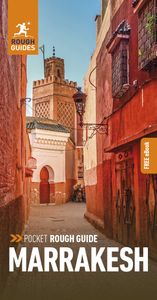
Travel advice for Morocco
Find even more inspiration here.

Ready to travel and discover Morocco?
Get support from our local experts for stress-free planning & worry-free travels.
- Where to stay
- Travel advice
You are using an outdated browser. Upgrade your browser today or install Google Chrome Frame to better experience this site.
Morocco Traveler View
Travel health notices, vaccines and medicines, non-vaccine-preventable diseases, stay healthy and safe.
- Packing List
After Your Trip
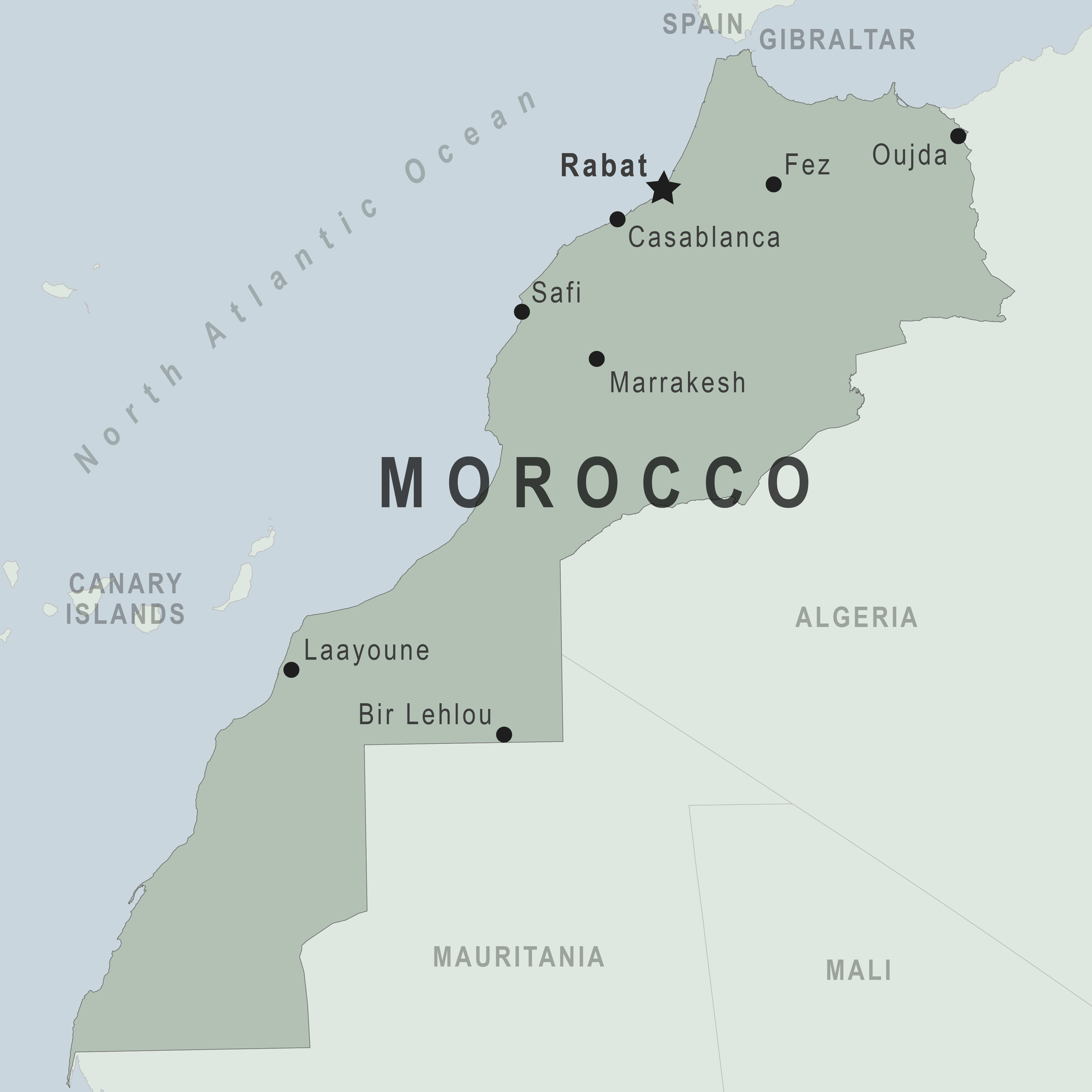
There are no notices currently in effect for Morocco.
⇧ Top
Check the vaccines and medicines list and visit your doctor at least a month before your trip to get vaccines or medicines you may need. If you or your doctor need help finding a location that provides certain vaccines or medicines, visit the Find a Clinic page.
Routine vaccines
Recommendations.
Make sure you are up-to-date on all routine vaccines before every trip. Some of these vaccines include
- Chickenpox (Varicella)
- Diphtheria-Tetanus-Pertussis
- Flu (influenza)
- Measles-Mumps-Rubella (MMR)
Immunization schedules
All eligible travelers should be up to date with their COVID-19 vaccines. Please see Your COVID-19 Vaccination for more information.
COVID-19 vaccine
Hepatitis A
Recommended for unvaccinated travelers one year old or older going to Morocco.
Infants 6 to 11 months old should also be vaccinated against Hepatitis A. The dose does not count toward the routine 2-dose series.
Travelers allergic to a vaccine component or who are younger than 6 months should receive a single dose of immune globulin, which provides effective protection for up to 2 months depending on dosage given.
Unvaccinated travelers who are over 40 years old, immunocompromised, or have chronic medical conditions planning to depart to a risk area in less than 2 weeks should get the initial dose of vaccine and at the same appointment receive immune globulin.
Hepatitis A - CDC Yellow Book
Dosing info - Hep A
Hepatitis B
Recommended for unvaccinated travelers younger than 60 years old traveling to Morocco. Unvaccinated travelers 60 years and older may get vaccinated before traveling to Morocco.
Hepatitis B - CDC Yellow Book
Dosing info - Hep B
Cases of measles are on the rise worldwide. Travelers are at risk of measles if they have not been fully vaccinated at least two weeks prior to departure, or have not had measles in the past, and travel internationally to areas where measles is spreading.
All international travelers should be fully vaccinated against measles with the measles-mumps-rubella (MMR) vaccine, including an early dose for infants 6–11 months, according to CDC’s measles vaccination recommendations for international travel .
Measles (Rubeola) - CDC Yellow Book
Rabid dogs are commonly found in Morocco. However, if you are bitten or scratched by a dog or other mammal while in Morocco, rabies treatment is often available.
Consider rabies vaccination before your trip if your activities mean you will be around dogs or wildlife.
Travelers more likely to encounter rabid animals include
- Campers, adventure travelers, or cave explorers (spelunkers)
- Veterinarians, animal handlers, field biologists, or laboratory workers handling animal specimens
- Visitors to rural areas
Since children are more likely to be bitten or scratched by a dog or other animals, consider rabies vaccination for children traveling to Morocco.
Rabies - CDC Yellow Book
Recommended for most travelers, especially those staying with friends or relatives or visiting smaller cities or rural areas.
Typhoid - CDC Yellow Book
Dosing info - Typhoid
- Avoid contaminated water
Leptospirosis
How most people get sick (most common modes of transmission)
- Touching urine or other body fluids from an animal infected with leptospirosis
- Swimming or wading in urine-contaminated fresh water, or contact with urine-contaminated mud
- Drinking water or eating food contaminated with animal urine
- Avoid contaminated water and soil
Clinical Guidance
Schistosomiasis
- Wading, swimming, bathing, or washing in contaminated freshwater streams, rivers, ponds, lakes, or untreated pools.
Avoid bug bites
Leishmaniasis
- Sand fly bite
- Avoid Bug Bites
Airborne & droplet
- Breathing in air or accidentally eating food contaminated with the urine, droppings, or saliva of infected rodents
- Bite from an infected rodent
- Less commonly, being around someone sick with hantavirus (only occurs with Andes virus)
- Avoid rodents and areas where they live
- Avoid sick people
Tuberculosis (TB)
- Breathe in TB bacteria that is in the air from an infected and contagious person coughing, speaking, or singing.
Learn actions you can take to stay healthy and safe on your trip. Vaccines cannot protect you from many diseases in Morocco, so your behaviors are important.
Eat and drink safely
Food and water standards around the world vary based on the destination. Standards may also differ within a country and risk may change depending on activity type (e.g., hiking versus business trip). You can learn more about safe food and drink choices when traveling by accessing the resources below.
- Choose Safe Food and Drinks When Traveling
- Water Treatment Options When Hiking, Camping or Traveling
- Global Water, Sanitation and Hygiene | Healthy Water
- Avoid Contaminated Water During Travel
You can also visit the Department of State Country Information Pages for additional information about food and water safety.
Prevent bug bites
Bugs (like mosquitoes, ticks, and fleas) can spread a number of diseases in Morocco. Many of these diseases cannot be prevented with a vaccine or medicine. You can reduce your risk by taking steps to prevent bug bites.
What can I do to prevent bug bites?
- Cover exposed skin by wearing long-sleeved shirts, long pants, and hats.
- Use an appropriate insect repellent (see below).
- Use permethrin-treated clothing and gear (such as boots, pants, socks, and tents). Do not use permethrin directly on skin.
- Stay and sleep in air-conditioned or screened rooms.
- Use a bed net if the area where you are sleeping is exposed to the outdoors.
What type of insect repellent should I use?
- FOR PROTECTION AGAINST TICKS AND MOSQUITOES: Use a repellent that contains 20% or more DEET for protection that lasts up to several hours.
- Picaridin (also known as KBR 3023, Bayrepel, and icaridin)
- Oil of lemon eucalyptus (OLE) or para-menthane-diol (PMD)
- 2-undecanone
- Always use insect repellent as directed.
What should I do if I am bitten by bugs?
- Avoid scratching bug bites, and apply hydrocortisone cream or calamine lotion to reduce the itching.
- Check your entire body for ticks after outdoor activity. Be sure to remove ticks properly.
What can I do to avoid bed bugs?
Although bed bugs do not carry disease, they are an annoyance. See our information page about avoiding bug bites for some easy tips to avoid them. For more information on bed bugs, see Bed Bugs .
For more detailed information on avoiding bug bites, see Avoid Bug Bites .
Stay safe outdoors
If your travel plans in Morocco include outdoor activities, take these steps to stay safe and healthy during your trip.
- Stay alert to changing weather conditions and adjust your plans if conditions become unsafe.
- Prepare for activities by wearing the right clothes and packing protective items, such as bug spray, sunscreen, and a basic first aid kit.
- Consider learning basic first aid and CPR before travel. Bring a travel health kit with items appropriate for your activities.
- If you are outside for many hours in heat, eat salty snacks and drink water to stay hydrated and replace salt lost through sweating.
- Protect yourself from UV radiation : use sunscreen with an SPF of at least 15, wear protective clothing, and seek shade during the hottest time of day (10 a.m.–4 p.m.).
- Be especially careful during summer months and at high elevation. Because sunlight reflects off snow, sand, and water, sun exposure may be increased during activities like skiing, swimming, and sailing.
- Very cold temperatures can be dangerous. Dress in layers and cover heads, hands, and feet properly if you are visiting a cold location.
Stay safe around water
- Swim only in designated swimming areas. Obey lifeguards and warning flags on beaches.
- Practice safe boating—follow all boating safety laws, do not drink alcohol if driving a boat, and always wear a life jacket.
- Do not dive into shallow water.
- Do not swim in freshwater in developing areas or where sanitation is poor.
- Avoid swallowing water when swimming. Untreated water can carry germs that make you sick.
- To prevent infections, wear shoes on beaches where there may be animal waste.
Schistosomiasis, a parasitic infection that can be spread in fresh water, is found in Morocco. Avoid swimming in fresh, unchlorinated water, such as lakes, ponds, or rivers.
Keep away from animals
Most animals avoid people, but they may attack if they feel threatened, are protecting their young or territory, or if they are injured or ill. Animal bites and scratches can lead to serious diseases such as rabies.
Follow these tips to protect yourself:
- Do not touch or feed any animals you do not know.
- Do not allow animals to lick open wounds, and do not get animal saliva in your eyes or mouth.
- Avoid rodents and their urine and feces.
- Traveling pets should be supervised closely and not allowed to come in contact with local animals.
- If you wake in a room with a bat, seek medical care immediately. Bat bites may be hard to see.
All animals can pose a threat, but be extra careful around dogs, bats, monkeys, sea animals such as jellyfish, and snakes. If you are bitten or scratched by an animal, immediately:
- Wash the wound with soap and clean water.
- Go to a doctor right away.
- Tell your doctor about your injury when you get back to the United States.
Consider buying medical evacuation insurance. Rabies is a deadly disease that must be treated quickly, and treatment may not be available in some countries.
Reduce your exposure to germs
Follow these tips to avoid getting sick or spreading illness to others while traveling:
- Wash your hands often, especially before eating.
- If soap and water aren’t available, clean hands with hand sanitizer (containing at least 60% alcohol).
- Don’t touch your eyes, nose, or mouth. If you need to touch your face, make sure your hands are clean.
- Cover your mouth and nose with a tissue or your sleeve (not your hands) when coughing or sneezing.
- Try to avoid contact with people who are sick.
- If you are sick, stay home or in your hotel room, unless you need medical care.
Avoid sharing body fluids
Diseases can be spread through body fluids, such as saliva, blood, vomit, and semen.
Protect yourself:
- Use latex condoms correctly.
- Do not inject drugs.
- Limit alcohol consumption. People take more risks when intoxicated.
- Do not share needles or any devices that can break the skin. That includes needles for tattoos, piercings, and acupuncture.
- If you receive medical or dental care, make sure the equipment is disinfected or sanitized.
Know how to get medical care while traveling
Plan for how you will get health care during your trip, should the need arise:
- Carry a list of local doctors and hospitals at your destination.
- Review your health insurance plan to determine what medical services it would cover during your trip. Consider purchasing travel health and medical evacuation insurance.
- Carry a card that identifies, in the local language, your blood type, chronic conditions or serious allergies, and the generic names of any medications you take.
- Some prescription drugs may be illegal in other countries. Call Morocco’s embassy to verify that all of your prescription(s) are legal to bring with you.
- Bring all the medicines (including over-the-counter medicines) you think you might need during your trip, including extra in case of travel delays. Ask your doctor to help you get prescriptions filled early if you need to.
Many foreign hospitals and clinics are accredited by the Joint Commission International. A list of accredited facilities is available at their website ( www.jointcommissioninternational.org ).
In some countries, medicine (prescription and over-the-counter) may be substandard or counterfeit. Bring the medicines you will need from the United States to avoid having to buy them at your destination.
Select safe transportation
Motor vehicle crashes are the #1 killer of healthy US citizens in foreign countries.
In many places cars, buses, large trucks, rickshaws, bikes, people on foot, and even animals share the same lanes of traffic, increasing the risk for crashes.
Be smart when you are traveling on foot.
- Use sidewalks and marked crosswalks.
- Pay attention to the traffic around you, especially in crowded areas.
- Remember, people on foot do not always have the right of way in other countries.
Riding/Driving
Choose a safe vehicle.
- Choose official taxis or public transportation, such as trains and buses.
- Ride only in cars that have seatbelts.
- Avoid overcrowded, overloaded, top-heavy buses and minivans.
- Avoid riding on motorcycles or motorbikes, especially motorbike taxis. (Many crashes are caused by inexperienced motorbike drivers.)
- Choose newer vehicles—they may have more safety features, such as airbags, and be more reliable.
- Choose larger vehicles, which may provide more protection in crashes.
Think about the driver.
- Do not drive after drinking alcohol or ride with someone who has been drinking.
- Consider hiring a licensed, trained driver familiar with the area.
- Arrange payment before departing.
Follow basic safety tips.
- Wear a seatbelt at all times.
- Sit in the back seat of cars and taxis.
- When on motorbikes or bicycles, always wear a helmet. (Bring a helmet from home, if needed.)
- Avoid driving at night; street lighting in certain parts of Morocco may be poor.
- Do not use a cell phone or text while driving (illegal in many countries).
- Travel during daylight hours only, especially in rural areas.
- If you choose to drive a vehicle in Morocco, learn the local traffic laws and have the proper paperwork.
- Get any driving permits and insurance you may need. Get an International Driving Permit (IDP). Carry the IDP and a US-issued driver's license at all times.
- Check with your auto insurance policy's international coverage, and get more coverage if needed. Make sure you have liability insurance.
- Avoid using local, unscheduled aircraft.
- If possible, fly on larger planes (more than 30 seats); larger airplanes are more likely to have regular safety inspections.
- Try to schedule flights during daylight hours and in good weather.
Medical Evacuation Insurance
If you are seriously injured, emergency care may not be available or may not meet US standards. Trauma care centers are uncommon outside urban areas. Having medical evacuation insurance can be helpful for these reasons.
Helpful Resources
Road Safety Overseas (Information from the US Department of State): Includes tips on driving in other countries, International Driving Permits, auto insurance, and other resources.
The Association for International Road Travel has country-specific Road Travel Reports available for most countries for a minimal fee.
Maintain personal security
Use the same common sense traveling overseas that you would at home, and always stay alert and aware of your surroundings.
Before you leave
- Research your destination(s), including local laws, customs, and culture.
- Monitor travel advisories and alerts and read travel tips from the US Department of State.
- Enroll in the Smart Traveler Enrollment Program (STEP) .
- Leave a copy of your itinerary, contact information, credit cards, and passport with someone at home.
- Pack as light as possible, and leave at home any item you could not replace.
While at your destination(s)
- Carry contact information for the nearest US embassy or consulate .
- Carry a photocopy of your passport and entry stamp; leave the actual passport securely in your hotel.
- Follow all local laws and social customs.
- Do not wear expensive clothing or jewelry.
- Always keep hotel doors locked, and store valuables in secure areas.
- If possible, choose hotel rooms between the 2nd and 6th floors.
Healthy Travel Packing List
Use the Healthy Travel Packing List for Morocco for a list of health-related items to consider packing for your trip. Talk to your doctor about which items are most important for you.
Why does CDC recommend packing these health-related items?
It’s best to be prepared to prevent and treat common illnesses and injuries. Some supplies and medicines may be difficult to find at your destination, may have different names, or may have different ingredients than what you normally use.
If you are not feeling well after your trip, you may need to see a doctor. If you need help finding a travel medicine specialist, see Find a Clinic . Be sure to tell your doctor about your travel, including where you went and what you did on your trip. Also tell your doctor if you were bitten or scratched by an animal while traveling.
For more information on what to do if you are sick after your trip, see Getting Sick after Travel .
Map Disclaimer - The boundaries and names shown and the designations used on maps do not imply the expression of any opinion whatsoever on the part of the Centers for Disease Control and Prevention concerning the legal status of any country, territory, city or area or of its authorities, or concerning the delimitation of its frontiers or boundaries. Approximate border lines for which there may not yet be full agreement are generally marked.
Other Destinations
If you need help finding travel information:
Message & data rates may apply. CDC Privacy Policy
File Formats Help:
- Adobe PDF file
- Microsoft PowerPoint file
- Microsoft Word file
- Microsoft Excel file
- Audio/Video file
- Apple Quicktime file
- RealPlayer file
- Zip Archive file
Exit Notification / Disclaimer Policy
- The Centers for Disease Control and Prevention (CDC) cannot attest to the accuracy of a non-federal website.
- Linking to a non-federal website does not constitute an endorsement by CDC or any of its employees of the sponsors or the information and products presented on the website.
- You will be subject to the destination website's privacy policy when you follow the link.
- CDC is not responsible for Section 508 compliance (accessibility) on other federal or private website.
- Skip to main content
- Skip to "About this site"
Language selection
Search travel.gc.ca.
Help us to improve our website. Take our survey !
COVID-19: travel health notice for all travellers
Morocco travel advice
Latest updates: The Health section was updated - travel health information (Public Health Agency of Canada)
Last updated: May 6, 2024 10:24 ET
On this page
Safety and security, entry and exit requirements, laws and culture, natural disasters and climate, morocco - exercise a high degree of caution.
Exercise a high degree of caution in Morocco due to the threat of terrorism.
Border regions of Western Sahara - Avoid all travel
- within 30 km west of the Berm, Morocco’s militarized boundary in the Western Sahara
- between the Berm and neighbouring countries on the eastern and southern sides
Back to top
Protests related to the situation in Israel, the West Bank and the Gaza Strip
Since October 13, 2023, protests have been taking place in Rabat, Casablanca and other cities near government buildings. The current protests are related to the ongoing situation in Israel, the West Bank and the Gaza Strip.
Additional protests are expected in Rabat, Casablanca, Marrakesh, Fez, Tangier and several other cities across the country.
Moroccan authorities may employ enhanced measures to respond to demonstrations, including:
- deploying additional security forces
- using crowd dispersal methods
If you are near an affected area:
- exercise caution
- expect heightened security measures
- avoid all demonstrations and gatherings
- follow the instructions of local authorities
Border regions
The berm (border regions of western sahara).
A militarized boundary, known as the Berm, separates the Moroccan-controlled part of Western Sahara from the rest of the Saharan territory, which borders Algeria and Mauritania. There are fatalities involving unexploded ordnance in this zone each year.
Border with Algeria
Morocco’s border with Algeria is closed. Don’t attempt to cross into Algeria by land or water. Avoid boating close to the maritime border in order not to cross it.
Western Sahara
Western Sahara is a non-autonomous territory whose political and legal status has yet to be determined through the United Nations. It’s a former area of conflict that’s still littered with unexploded landmines, particularly in remote regions and the militarized zone.
We may be extremely limited in our ability to provide assistance to Canadians in Western Sahara.
Travel in remote areas
When you travel to a remote area:
- restrict travel to officially designated tourist areas
- seek local, official tourist advice prior to travelling to the desert areas in the south
- hire only official guides recommended by hotels, travel agencies or local tourist authorities
- use only a four-wheel-drive vehicle for off-road driving in the mountains or desert
- ensure that your vehicle is properly equipped and has appropriate supplies and essentials, including potable water
There’s a threat of terrorism, and attacks have targeted foreigners. In December 2018, 2 Scandinavian tourists were found dead in a mountainous area of southern Morocco, 10 km from Imlil, a village in the High Atlas. Moroccan authorities have described the killing as a terrorist act. Terrorist attacks could occur at any time.
Targets could include:
- government buildings, including schools
- places of worship
- airports and other transportation hubs and networks
- public areas such as tourist attractions, restaurants, bars, coffee shops, shopping centres, markets, hotels (specifically coastal beach resorts), and other sites frequented by foreigners
For your safety:
- always be aware of your surroundings when in public places
- stay at hotels that have robust security measures; keep in mind, however, that even the most secure locations can’t be considered completely free of risk
There’s a threat of kidnapping against Westerners in remote regions of Morocco and in areas bordering Algeria and Mauritania.
- Maintain a high level of vigilance at all times, especially when travelling in the southern and border areas of Morocco
- Don’t hike alone in remote mountain regions
Demonstrations
Demonstrations take place from time to time, most often in Rabat. Even peaceful demonstrations can turn violent at any time. They can also lead to disruptions to traffic and public transportation.
- Avoid areas where demonstrations and large gatherings are taking place
- Follow the instructions of local authorities
- Monitor local media for information on ongoing demonstrations
Mass gatherings (large-scale events)
Petty crime
Petty crimes notably pickpocketing, purse snatchings (sometimes by motorcyclists), scams and other thefts take place, most frequently in medinas, market areas, parks and on beaches but can also occur in all types of neighbourhoods.
To limit your risks:
- stay on major roads, especially when in the medinas, and exercise caution
- ensure that your personal belongings are secure
- don’t show signs of affluence, particularly when walking at night
- avoid carrying a purse
- don’t accept food, drinks or invitations from strangers, or change your planned itinerary at their request
- exercise caution in the mountainous Rif region, on the northern coast of Morocco. Drugs are produced in this area and tourists are occasionally tricked into unknowingly committing drug offences
While Moroccans are generally very friendly and hospitable, you should always exercise common sense and travel wisely.
Armed robbery
Armed robberies with knives have occurred and have resulted in injuries and in some cases, deaths. Don’t resist robbers.
Thefts occur around ATMs.
Credit card fraud
Credit card fraud is also frequent.
Forced purchases
Tourists have been forcibly taken to stores and intimidated into making purchases.
Women’s safety
Women travelling alone may be subject to certain forms of harassment and verbal abuse.
Advice for women travellers
Road safety
Road conditions and road safety vary greatly throughout the country, depending on location and weather (for example, in the mountains or during the rainy season).
- Avoid driving at night
- Have an accident report form (constat à l’amiable), which can be purchased at newsstands, in your vehicle at all times.
Not all drivers respect traffic regulations. Pedestrians, scooters and animals on roadways can also pose risks.
National roads
National roads are generally in good condition but are narrow and heavily congested.
Driving is generally easier on the highways.
Be extremely careful when driving on the Rabat-Casablanca highway and on certain national highways because of high traffic volume.
Accidents causing fatalities are common.
If an accident occurs and only involves material damage, the police won’t usually intervene. The parties involved should complete an accident report (joint report), which can be purchased at newsstands. If the accident involves casualties, avoid moving the vehicles before the police arrive.
Checkpoints
Checkpoints are frequent. Carry your identification and vehicle documents at all times.
We do not make assessments on the compliance of foreign domestic airlines with international safety standards.
Information about foreign domestic airlines
Internet romances
Exercise caution if travelling to Morocco for romance, especially in cases of relationships initiated on the Internet.
Find out beforehand about the country’s customs and laws on conjugal relations and marriage.
Ensure that you retain possession of your return plane ticket, your money and your passport in case problems arise.
Useful links
- Marriage abroad
- Overseas fraud
Public beaches
While swimming conditions in tourist areas are generally safe and problem-free, public beaches in major cities are often polluted and unfit for swimming.
Swimming at some beaches on the Atlantic coast is dangerous due to strong currents and tides. Only swim at designated beaches and exercise caution.
Fondation Mohammed VI pour la protection de l’environnement - a list of beaches that meet international standards
Women and girls can be the subject of harassment when wearing swimsuits. Exercise caution and opt for tourist beaches rather than the public ones.
Every country or territory decides who can enter or exit through its borders. The Government of Canada cannot intervene on your behalf if you do not meet your destination’s entry or exit requirements.
We have obtained the information on this page from the Moroccan authorities. It can, however, change at any time.
Verify this information with the Foreign Representatives in Canada .
Entry requirements vary depending on the type of passport you use for travel.
Before you travel, check with your transportation company about passport requirements. Its rules on passport validity may be more stringent than the country’s entry rules.
Regular Canadian passport
Your passport must be valid for at least 6 months beyond the date you expect to leave Morocco.
Passport for official travel
Different entry rules may apply.
Official travel
Passport with “X” gender identifier
While the Government of Canada issues passports with an “X” gender identifier, it cannot guarantee your entry or transit through other countries. You might face entry restrictions in countries that do not recognize the “X” gender identifier. Before you leave, check with the closest foreign representative for your destination.
Other travel documents
Different entry rules may apply when travelling with a temporary passport or an emergency travel document. Before you leave, check with the closest foreign representative for your destination.
- Foreign Representatives in Canada
- Canadian passports
Tourist visa: not required for stays of less than 90 days Business visa: not required for stays of less than 90 days Student visa: not required for stays of less than 90 days
Extending your stay beyond 90 days
You must secure proper authorization if you plan to extend your stay in Morocco beyond 90 days. Contact the Service to Foreigners Section (Section du service aux étrangers) at the local police station at least 15 days prior to the expiry of the 90-day limit.
If you remain in Morocco beyond the 90-day limit, you’ll be forced to remain there until seen by a prosecutor and fined.
Entering by private boat
To enter Morocco by private boat, you must do so at a recognized port of entry.
Entering with a private vehicle
If you enter Morocco with a vehicle, you must exit with it or you will be denied exit.
Yellow fever
Learn about potential entry requirements related to yellow fever (vaccines section).
Children and travel
Learn more about travelling with children .
Relevant Travel Health Notices
- Global Measles Notice - 13 March, 2024
- COVID-19 and International Travel - 13 March, 2024
This section contains information on possible health risks and restrictions regularly found or ongoing in the destination. Follow this advice to lower your risk of becoming ill while travelling. Not all risks are listed below.
Consult a health care professional or visit a travel health clinic preferably 6 weeks before you travel to get personalized health advice and recommendations.
Routine vaccines
Be sure that your routine vaccinations , as per your province or territory , are up-to-date before travelling, regardless of your destination.
Some of these vaccinations include measles-mumps-rubella (MMR), diphtheria, tetanus, pertussis, polio, varicella (chickenpox), influenza and others.
Pre-travel vaccines and medications
You may be at risk for preventable diseases while travelling in this destination. Talk to a travel health professional about which medications or vaccines may be right for you, based on your destination and itinerary.
Yellow fever is a disease caused by a flavivirus from the bite of an infected mosquito.
Travellers get vaccinated either because it is required to enter a country or because it is recommended for their protection.
- There is no risk of yellow fever in this country.
Country Entry Requirement*
- Proof of vaccination is not required to enter this country.
Recommendation
- Vaccination is not recommended.
* It is important to note that country entry requirements may not reflect your risk of yellow fever at your destination. It is recommended that you contact the nearest diplomatic or consular office of the destination(s) you will be visiting to verify any additional entry requirements.
About Yellow Fever
Yellow Fever Vaccination Centres in Canada
There is a risk of hepatitis A in this destination. It is a disease of the liver. People can get hepatitis A if they ingest contaminated food or water, eat foods prepared by an infectious person, or if they have close physical contact (such as oral-anal sex) with an infectious person, although casual contact among people does not spread the virus.
Practise safe food and water precautions and wash your hands often. Vaccination is recommended for all travellers to areas where hepatitis A is present.
Measles is a highly contagious viral disease. It can spread quickly from person to person by direct contact and through droplets in the air.
Anyone who is not protected against measles is at risk of being infected with it when travelling internationally.
Regardless of where you are going, talk to a health care professional before travelling to make sure you are fully protected against measles.
Hepatitis B is a risk in every destination. It is a viral liver disease that is easily transmitted from one person to another through exposure to blood and body fluids containing the hepatitis B virus. Travellers who may be exposed to blood or other bodily fluids (e.g., through sexual contact, medical treatment, sharing needles, tattooing, acupuncture or occupational exposure) are at higher risk of getting hepatitis B.
Hepatitis B vaccination is recommended for all travellers. Prevent hepatitis B infection by practicing safe sex, only using new and sterile drug equipment, and only getting tattoos and piercings in settings that follow public health regulations and standards.
Coronavirus disease (COVID-19) is an infectious viral disease. It can spread from person to person by direct contact and through droplets in the air.
It is recommended that all eligible travellers complete a COVID-19 vaccine series along with any additional recommended doses in Canada before travelling. Evidence shows that vaccines are very effective at preventing severe illness, hospitalization and death from COVID-19. While vaccination provides better protection against serious illness, you may still be at risk of infection from the virus that causes COVID-19. Anyone who has not completed a vaccine series is at increased risk of being infected with the virus that causes COVID-19 and is at greater risk for severe disease when travelling internationally.
Before travelling, verify your destination’s COVID-19 vaccination entry/exit requirements. Regardless of where you are going, talk to a health care professional before travelling to make sure you are adequately protected against COVID-19.
The best way to protect yourself from seasonal influenza (flu) is to get vaccinated every year. Get the flu shot at least 2 weeks before travelling.
The flu occurs worldwide.
- In the Northern Hemisphere, the flu season usually runs from November to April.
- In the Southern Hemisphere, the flu season usually runs between April and October.
- In the tropics, there is flu activity year round.
The flu vaccine available in one hemisphere may only offer partial protection against the flu in the other hemisphere.
The flu virus spreads from person to person when they cough or sneeze or by touching objects and surfaces that have been contaminated with the virus. Clean your hands often and wear a mask if you have a fever or respiratory symptoms.
In this destination, rabies is carried by dogs and some wildlife, including bats. Rabies is a deadly disease that spreads to humans primarily through bites or scratches from an infected animal. While travelling, take precautions , including keeping your distance from animals (including free-roaming dogs), and closely supervising children.
If you are bitten or scratched by an animal while travelling, immediately wash the wound with soap and clean water and see a health care professional. Rabies treatment is often available in this destination.
Before travel, discuss rabies vaccination with a health care professional. It may be recommended for travellers who are at high risk of exposure (e.g., occupational risk such as veterinarians and wildlife workers, children, adventure travellers and spelunkers, and others in close contact with animals).
Safe food and water precautions
Many illnesses can be caused by eating food or drinking beverages contaminated by bacteria, parasites, toxins, or viruses, or by swimming or bathing in contaminated water.
- Learn more about food and water precautions to take to avoid getting sick by visiting our eat and drink safely abroad page. Remember: Boil it, cook it, peel it, or leave it!
- Avoid getting water into your eyes, mouth or nose when swimming or participating in activities in freshwater (streams, canals, lakes), particularly after flooding or heavy rain. Water may look clean but could still be polluted or contaminated.
- Avoid inhaling or swallowing water while bathing, showering, or swimming in pools or hot tubs.
Travellers' diarrhea is the most common illness affecting travellers. It is spread from eating or drinking contaminated food or water.
Risk of developing travellers' diarrhea increases when travelling in regions with poor standards of hygiene and sanitation. Practise safe food and water precautions.
The most important treatment for travellers' diarrhea is rehydration (drinking lots of fluids). Carry oral rehydration salts when travelling.
Typhoid is a bacterial infection spread by contaminated food or water. Risk is higher among children, travellers going to rural areas, travellers visiting friends and relatives or those travelling for a long period of time.
Travellers visiting regions with a risk of typhoid, especially those exposed to places with poor sanitation, should speak to a health care professional about vaccination.
Insect bite prevention
Many diseases are spread by the bites of infected insects such as mosquitoes, ticks, fleas or flies. When travelling to areas where infected insects may be present:
- Use insect repellent (bug spray) on exposed skin
- Cover up with light-coloured, loose clothes made of tightly woven materials such as nylon or polyester
- Minimize exposure to insects
- Use mosquito netting when sleeping outdoors or in buildings that are not fully enclosed
To learn more about how you can reduce your risk of infection and disease caused by bites, both at home and abroad, visit our insect bite prevention page.
Find out what types of insects are present where you’re travelling, when they’re most active, and the symptoms of the diseases they spread.
Animal precautions
Some infections, such as rabies and influenza, can be shared between humans and animals. Certain types of activities may increase your chance of contact with animals, such as travelling in rural or forested areas, camping, hiking, and visiting wet markets (places where live animals are slaughtered and sold) or caves.
Travellers are cautioned to avoid contact with animals, including dogs, livestock (pigs, cows), monkeys, snakes, rodents, birds, and bats, and to avoid eating undercooked wild game.
Closely supervise children, as they are more likely to come in contact with animals.
Person-to-person infections
Stay home if you’re sick and practise proper cough and sneeze etiquette , which includes coughing or sneezing into a tissue or the bend of your arm, not your hand. Reduce your risk of colds, the flu and other illnesses by:
- washing your hands often
- avoiding or limiting the amount of time spent in closed spaces, crowded places, or at large-scale events (concerts, sporting events, rallies)
- avoiding close physical contact with people who may be showing symptoms of illness
Sexually transmitted infections (STIs) , HIV , and mpox are spread through blood and bodily fluids; use condoms, practise safe sex, and limit your number of sexual partners. Check with your local public health authority pre-travel to determine your eligibility for mpox vaccine.
Tuberculosis is an infection caused by bacteria and usually affects the lungs.
For most travellers the risk of tuberculosis is low.
Travellers who may be at high risk while travelling in regions with risk of tuberculosis should discuss pre- and post-travel options with a health care professional.
High-risk travellers include those visiting or working in prisons, refugee camps, homeless shelters, or hospitals, or travellers visiting friends and relatives.
Medical services and facilities
The quality of medical care varies greatly throughout the country. Casablanca, Marrakesh and Rabat have good, private medical facilities for non-emergencies. Care in public health facilities is not up to Canadian standards.
Doctors and hospitals often expect immediate cash payment.
Make sure you get travel insurance that includes coverage for medical evacuation and hospital stays.
Travel health and safety
Keep in Mind...
The decision to travel is the sole responsibility of the traveller. The traveller is also responsible for his or her own personal safety.
Be prepared. Do not expect medical services to be the same as in Canada. Pack a travel health kit , especially if you will be travelling away from major city centres.
You must abide by local laws.
Learn about what you should do and how we can help if you are arrested or detained abroad .
Penalties for possession, use or trafficking of illegal drugs are strict, and judgment is expeditious.
Alcohol consumption outside of licensed bars, hotels and restaurants is prohibited. Offenders may be punished by detention or other penalties. Alcohol can also be purchased from licensed stores for private consumption.
Drugs, alcohol and travel
Non-Islamic religious materials
Unauthorized importation of bibles or other non-Islamic religious material is prohibited, except for personal use. Religious preaching is forbidden.
Mailing identity papers
Sending identity papers, such as passports, by mail is forbidden in Morocco and authorities may confiscate them.
Extramarital sexual relations
Extramarital sexual relations are illegal. Hotels may refuse to allow couples to stay in the same room, if they’re unable to prove that they’re married. Foreigners, however, are almost always exempt from having to provide proof.
Pornography
Possession of pornographic material is illegal.
Photography
Don’t take photographs of military or security installations.
Drones and surveillance equipment
Drones and surveillance equipment are prohibited and will be confiscated by the authorities upon entry.
The Moroccan constitution states that the person of the King is inviolable and respect is due to him. It is expected that people avoid any criticism of the monarchy.
2SLGBTQI+ travellers
The laws of Morocco prohibit sexual acts between individuals of the same sex.
2SLGBTQI+ travellers should carefully consider the risks of travelling to Morocco.
Travel and your sexual orientation, gender identity, gender expression and sex characteristics
Children and citizenship
Children of Moroccan fathers automatically acquire Moroccan citizenship at birth, regardless of where they were born. Children of Moroccan mothers may submit a request for their citizenship.
Under Moroccan law, parents may prevent their children from leaving Morocco.
Entry and exit requirements when travelling with children
Dual citizenship
Dual citizenship is legally recognized in Morocco. According to Moroccan law, however, Moroccan citizenship takes precedence over any other citizenship.
Airport authorities regularly ask dual citizens to produce their Moroccan national identification card.
If you’re a citizen of Canada, but also a citizen of Morocco, our ability to offer you consular services may be limited in Morocco. You may also be subject to different entry/exit requirements.
General information for travellers with dual citizenship
International Child Abduction
The Hague Convention on the Civil Aspects of International Child Abduction is an international treaty. It can help parents with the return of children who have been removed to or retained in certain countries in violation of custody rights. The convention applies between Canada and Morocco.
If your child was wrongfully taken to, or is being held in Morocco, and if the applicable conditions are met, you may apply for the return of your child to the Moroccan court.
If you are in this situation:
- act as quickly as you can
- contact the Central Authority for your province or territory of residence for information on starting an application under The Hague Convention
- consult a lawyer in Canada and in Morocco to explore all the legal options for the return of your child
- report the situation to the nearest Canadian government office abroad or to the Vulnerable Children’s Consular Unit at Global Affairs Canada by calling the Emergency Watch and Response Centre
If your child was removed from a country other than Canada, consult a lawyer to determine if The Hague Convention applies.
Be aware that Canadian consular officials cannot interfere in private legal matters or in another country’s judicial affairs.
- List of Canadian Central Authorities for the Hague Convention
- International Child Abduction: A Guidebook for Left-Behind Parents
- Travelling with children
- The Hague Convention - Hague Conference on Private International Law
- Canadian embassies and consulates by destination
- Emergency Watch and Response Centre
Dress and behaviour
Islamic practices and beliefs are adhered to in Morocco’s customs, laws and regulations. Dress conservatively, behave discreetly and respect religious and social traditions to avoid offending local sensitivities.
Public displays of affection are frowned upon.
In 2024, the lunar month of Ramadan is expected to begin on or around March 10.
In public, between sunrise and sunset, refrain from:
The currency in Morocco is the Moroccan dirham (MAD). The dirham cannot be exchanged outside of the country. Exchange only as much money as needed, as it is illegal to take dirhams out of Morocco.
Unused dirhams can be converted at the airport exchange counter upon departure, with proof of your initial currency purchase.
Credit cards and traveller’s cheques are accepted in certain stores and restaurants in urban centres and in major hotels.
Earthquake in the Marrakesh-Safi region
On September 8, 2023, a 6.8 magnitude earthquake struck near the city of Marrakesh, in the Marrakesh-Safi region. The tremors were felt in several cities across the country.
There was significant damage to infrastructure and many casualties, especially in the villages located in the area of the High Atlas. Emergency services continue to provide assistance to the affected populations and recovery efforts are underway.
If you are in or near the affected areas:
- monitor local media for the latest developments
- check road conditions before travelling
Morocco is located in an active seismic zone.
Rainy season
The rainy season usually extends from November to March, during which flash floods can occur frequently. These can be especially dangerous in the High Atlas valleys.
Monitor regional weather forecasts and plan accordingly
Local services
In case of emergency, dial:
- police: 190
- medical assistance: 150
- firefighters: 150
Consular assistance
For emergency consular assistance, call the Embassy of Canada to Morocco in Rabat and follow the instructions. At any time, you may also contact the Emergency Watch and Response Centre in Ottawa.
The decision to travel is your choice and you are responsible for your personal safety abroad. We take the safety and security of Canadians abroad very seriously and provide credible and timely information in our Travel Advice to enable you to make well-informed decisions regarding your travel abroad.
The content on this page is provided for information only. While we make every effort to give you correct information, it is provided on an "as is" basis without warranty of any kind, expressed or implied. The Government of Canada does not assume responsibility and will not be liable for any damages in connection to the information provided.
If you need consular assistance while abroad, we will make every effort to help you. However, there may be constraints that will limit the ability of the Government of Canada to provide services.
Learn more about consular services .
Risk Levels
take normal security precautions.
Take similar precautions to those you would take in Canada.
Exercise a high degree of caution
There are certain safety and security concerns or the situation could change quickly. Be very cautious at all times, monitor local media and follow the instructions of local authorities.
IMPORTANT: The two levels below are official Government of Canada Travel Advisories and are issued when the safety and security of Canadians travelling or living in the country or region may be at risk.
Avoid non-essential travel
Your safety and security could be at risk. You should think about your need to travel to this country, territory or region based on family or business requirements, knowledge of or familiarity with the region, and other factors. If you are already there, think about whether you really need to be there. If you do not need to be there, you should think about leaving.
Avoid all travel
You should not travel to this country, territory or region. Your personal safety and security are at great risk. If you are already there, you should think about leaving if it is safe to do so.
Maps of Morocco
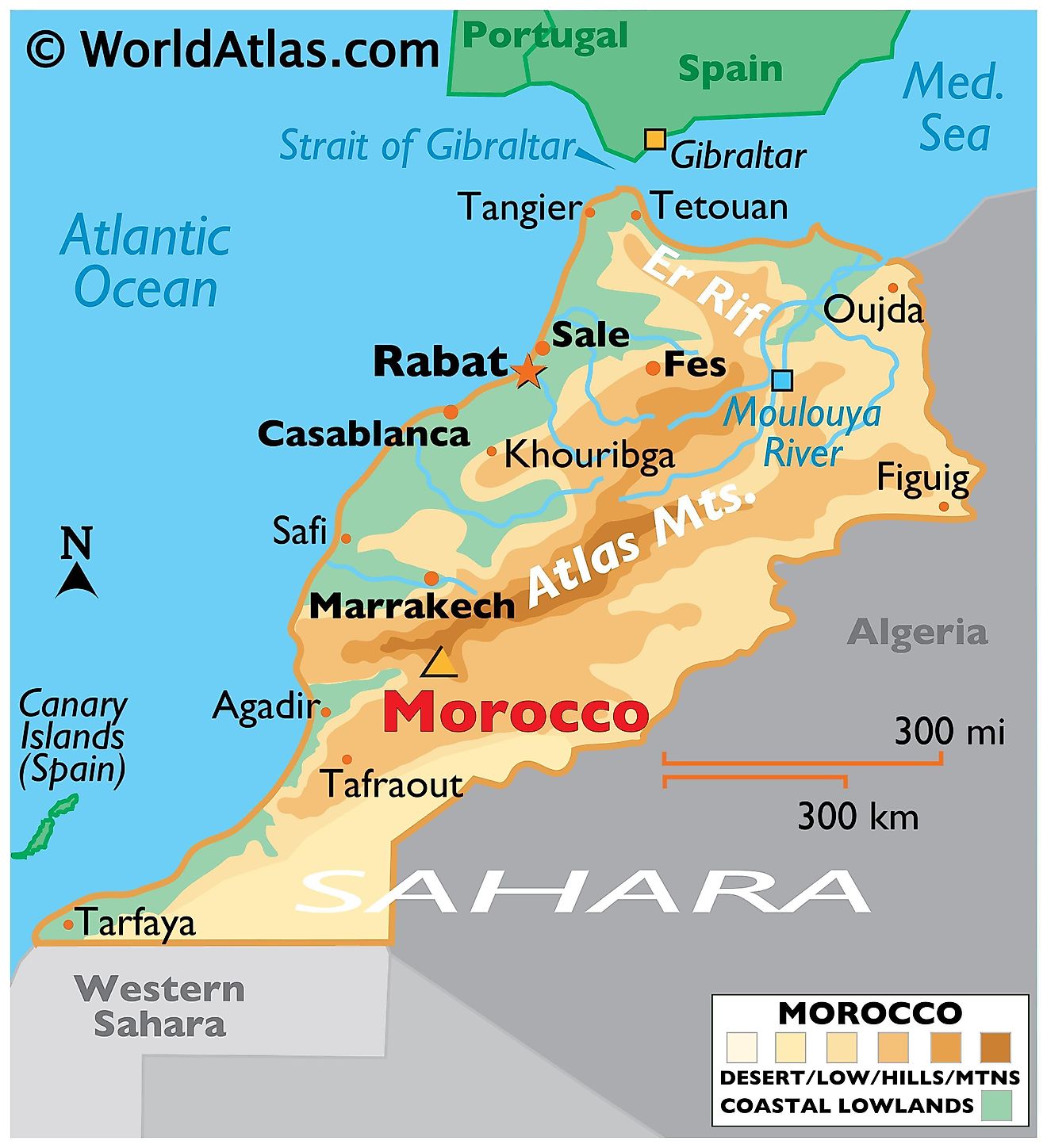
Morocco is a country in the Maghreb Region of North Africa where it covers an area of 710,850 sq. km. Morocco's coast comes into contact with both the Atlantic Ocean on the west and the Mediterranean Sea on the north. Morocco shares three land borders. One with Algeria and a second with the disputed territory of Western Sahara . While the Western Sahara region of Morocco is still technically part of the nation, the Moroccan government has little to no control over this place with many local rulers governing day-to-day life. The third land border Morocco has is with Spain. While it might be hard to see on a map, the autonomous city of Malilla is still under Spanish control despite being on the Moroccan coastline.
Jebel Toubkal (marked on the map by a yellow upright triangle) is the highest point of Morocco at 13,664 ft (4,165 m) and is also the highest peak of the Atlas Mountains. Much of Morocco's landscape is mountainous with slopes that gradually transition into plateaus and valleys. As observed on the physical map above, the Atlas Mountains dominate the central part of the country, while the Rif Mountains make up the northern edge. The lowest point of the country is Sebkha Tah at -180 ft (-55 m).
The Sahara Desert blankets the southeastern region of the country. The Moroccan portion of the desert is the world's third largest desert in the world at over 3,600,000 square miles (9,400,000 sq. km). Having such a hot climate has its benefits but also comes with a series of drawbacks as well. Land degradation is a large issue for Morocco, and many other countries located within the Sahara, as overgrazing of livestock and destruction of vegetation has eroded the soil.
The Mououya River is the most significant source of water in Morocco. Its source is located in the Atlas Mountains and flows into the Mediterranean Sea. This part of the nation is ideal for agriculture and farming as well as the Saiss Plains which can be found near the city of Fes in the west. The Saiss Plains are so valuable in fact that it is estimated that this region makes up at least 15% of the local economy.
Political Map of Morocco
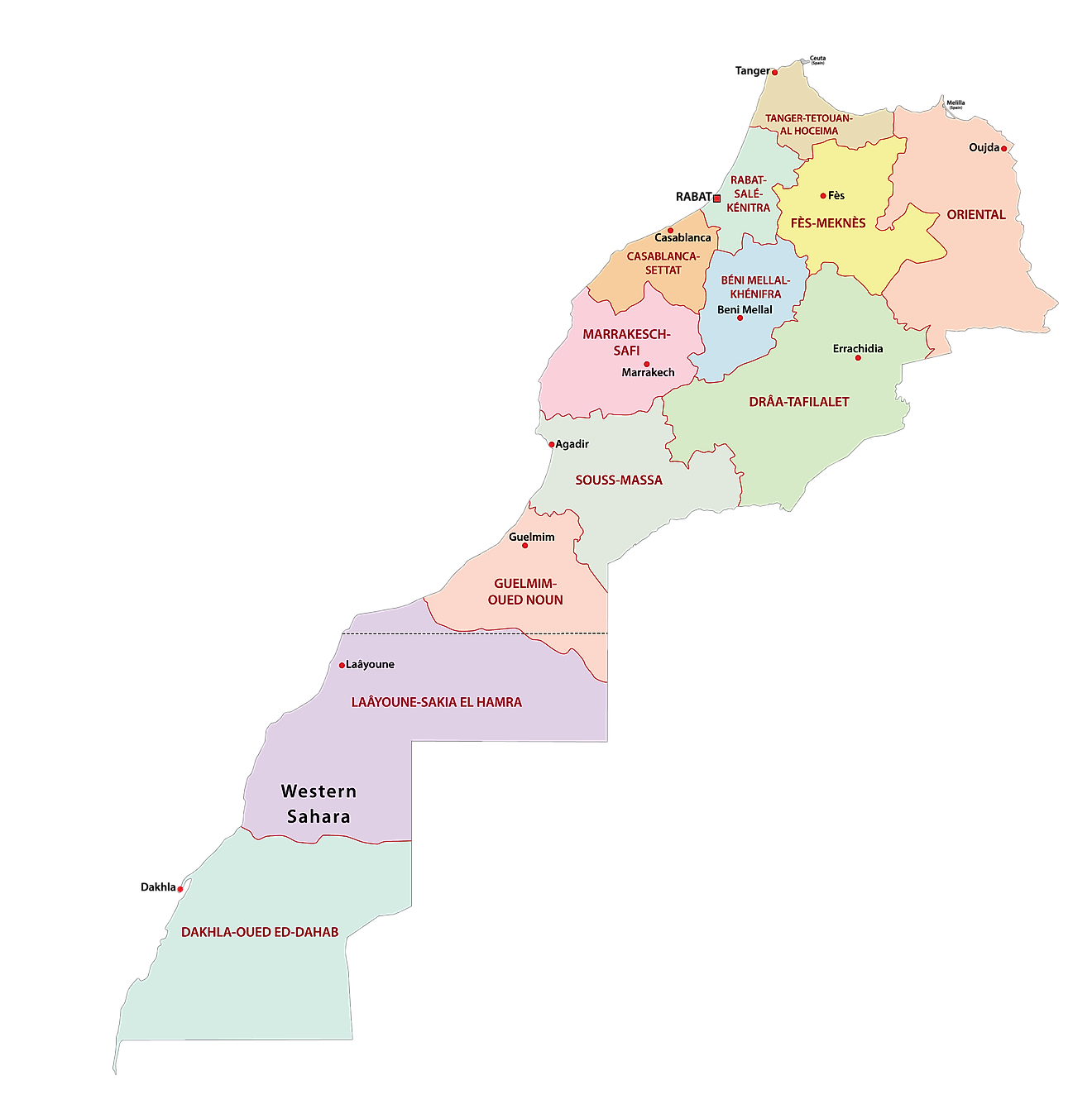
Morocco has 12 administrative divisions called regions. Of these, the Dakhla-Oued Ed-Dahab region lies entirely in the disputed territory of Western Sahara. Two regions, the Laâyoune-Sakia El Hamra and the Guelmim-Oued Noun are located partially in Western Sahara. The 11 regions of Morocco with the exception of the one completely in Western Sahara are Beni Mellal-Khenifra, Casablanca-Settat, Draa-Tafilalet, Fes-Meknes, Guelmim-Oued Noun, Laayoune-Sakia al Hamra, Oriental, Marrakech-Safi, Rabat-Sale-Kenitra, Souss-Massa, and Tanger-Tetouan-Al Hoceima.
The regions are subdivided into 75 prefectures and provinces. Rabat, the capital city of Morocco, is located in the Casablanca-Settat Region.
Where is Morocco?
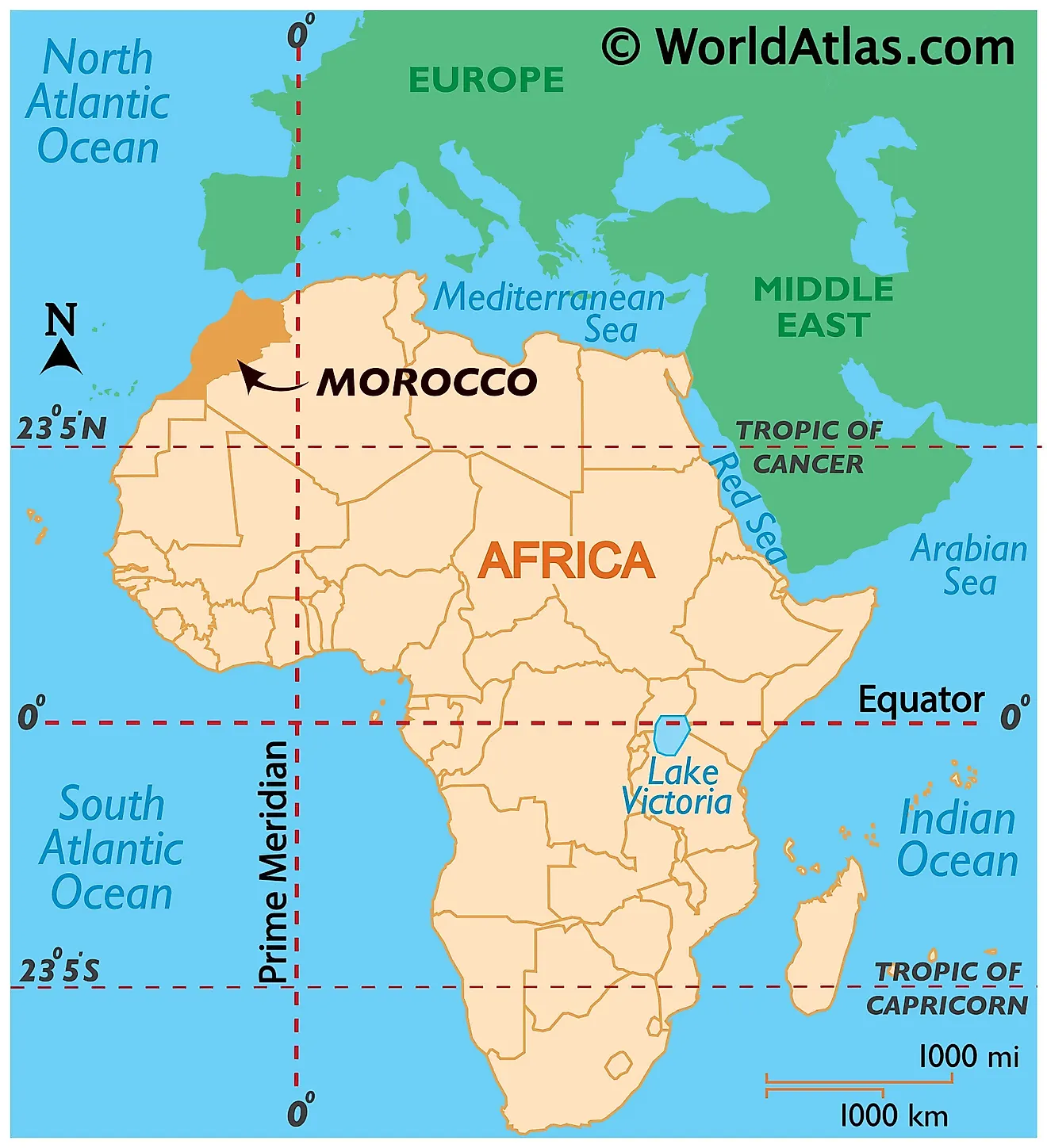
Morocco is a country in North Africa. It is located in the Maghreb region in the Northern and Western Hemisphere regions of the Earth. It is bordered by the two countries of Western Sahara to the south and Algeria to the east. It has coastlines on the Atlantic Ocean to the west and the Mediterranean Sea to the north.
Morocco Bordering Countries : Spain , Algeria , Western Sahara .
Regional Maps : Map of Africa
Outline Map of Morocco
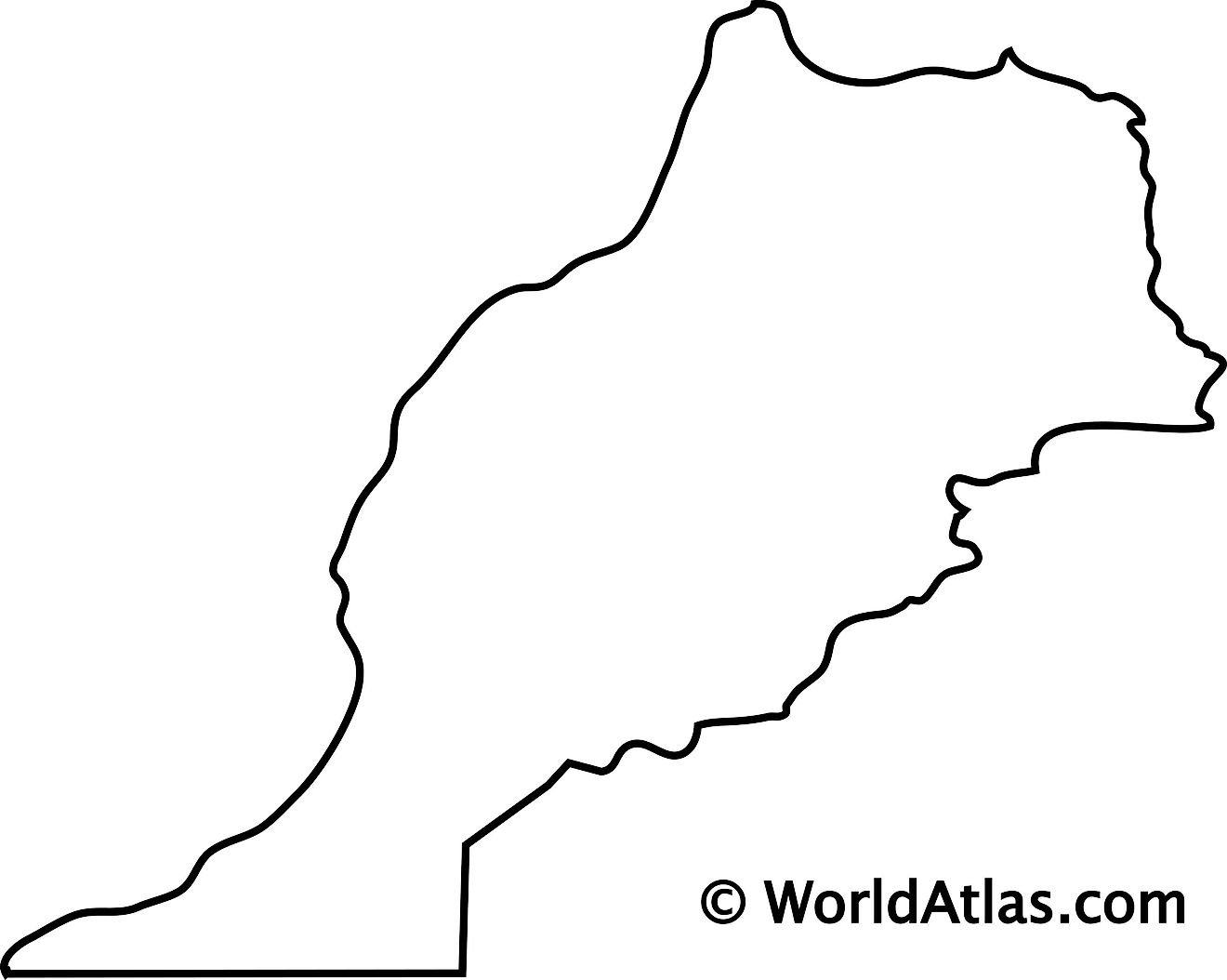
The blank outline map represents Morocco. The map can be dowloaded, printed, and used for coloring or educational purposes.
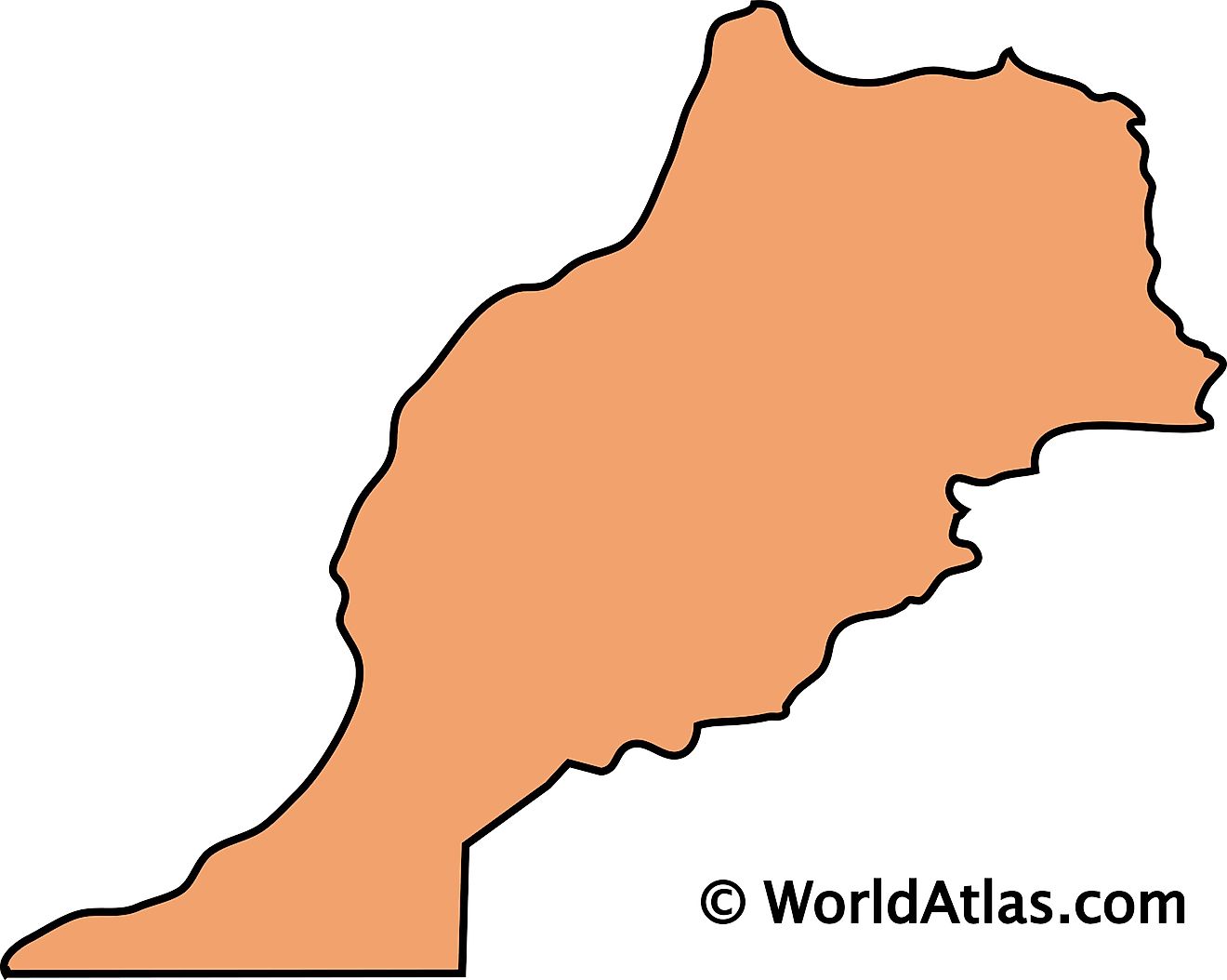
The outline map represents the North African country of Morocco. It is a famous travel destination with a lost of historical and natural attractions.
This page was last updated on December 8, 2023
Latest by WorldAtlas
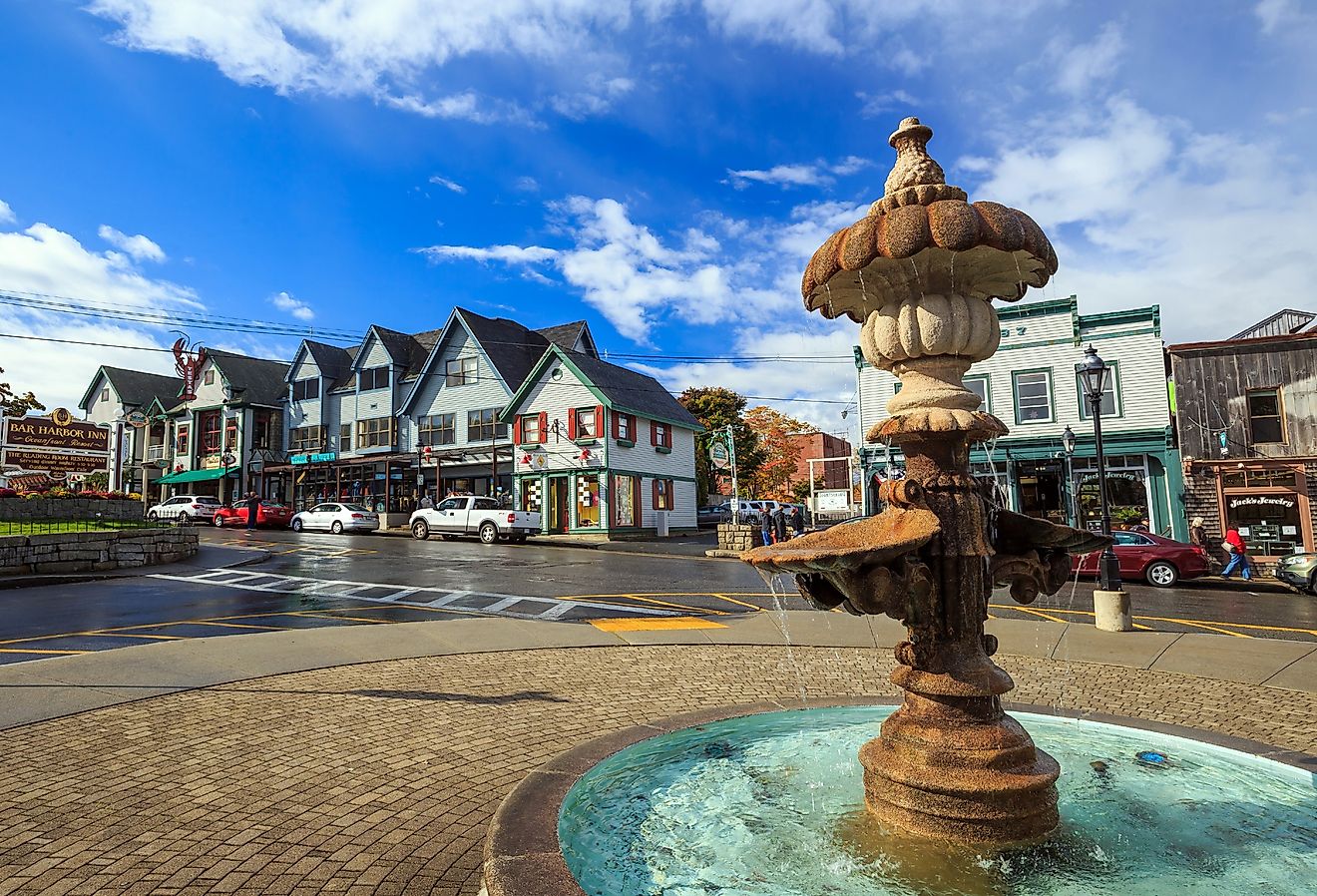
7 Delightful Towns to Visit in Maine
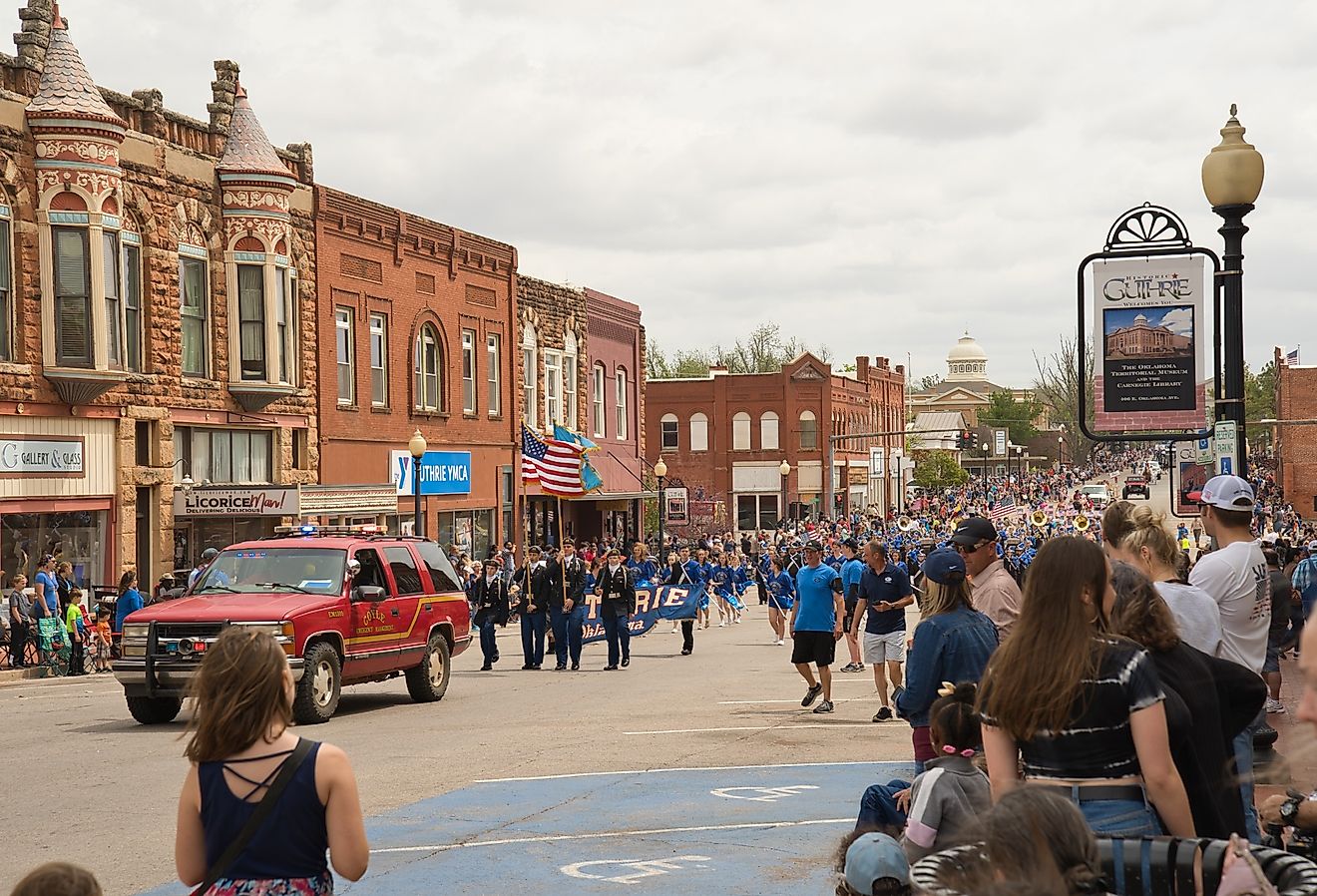
7 Cutest Small Towns In Oklahoma To Visit In 2024
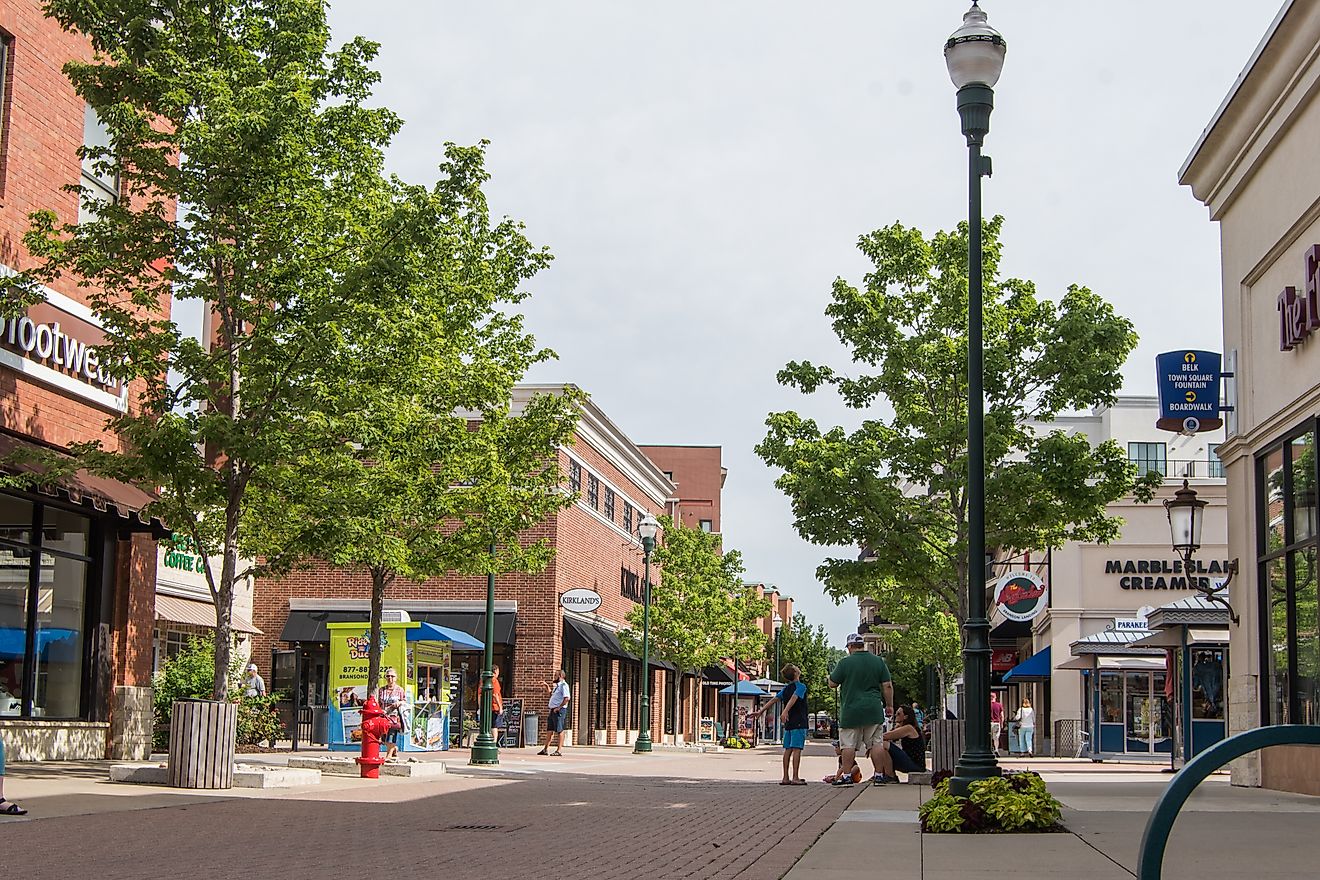
8 Most Inviting Towns in Missouri
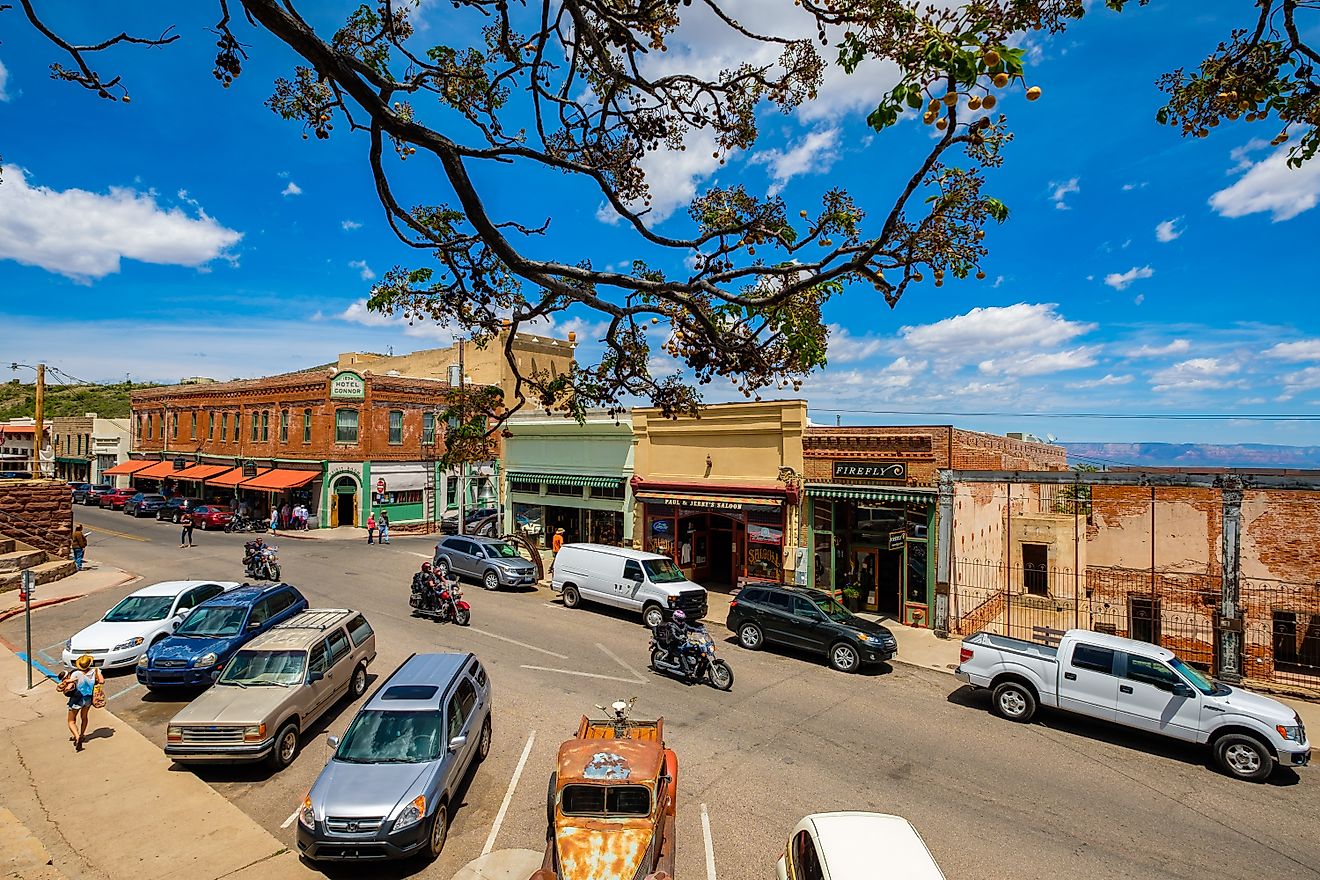
Arizona's Best Small Towns for a Weekend Escape
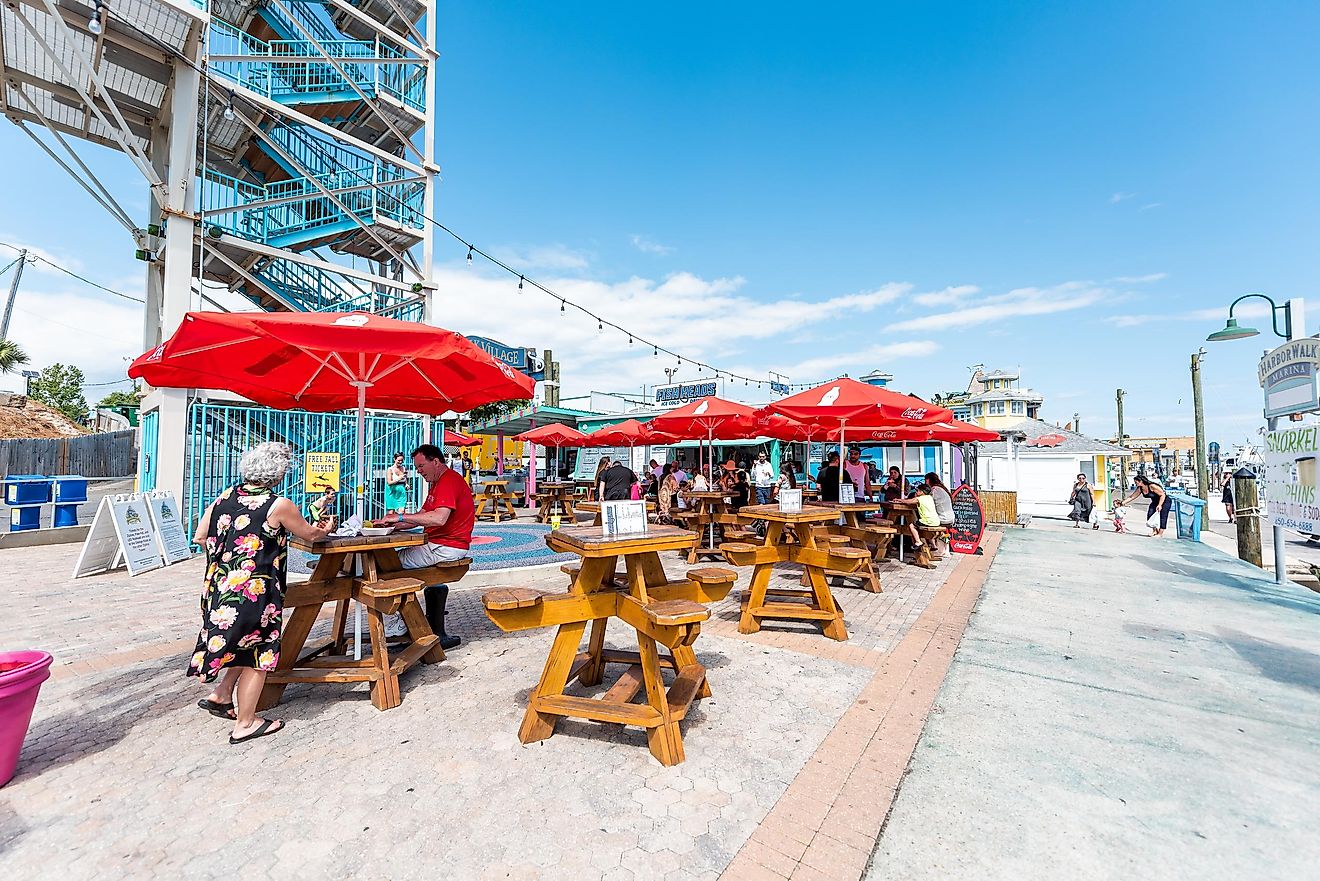
8 of the Most Hospitable Small Towns in Florida's Emerald Coast
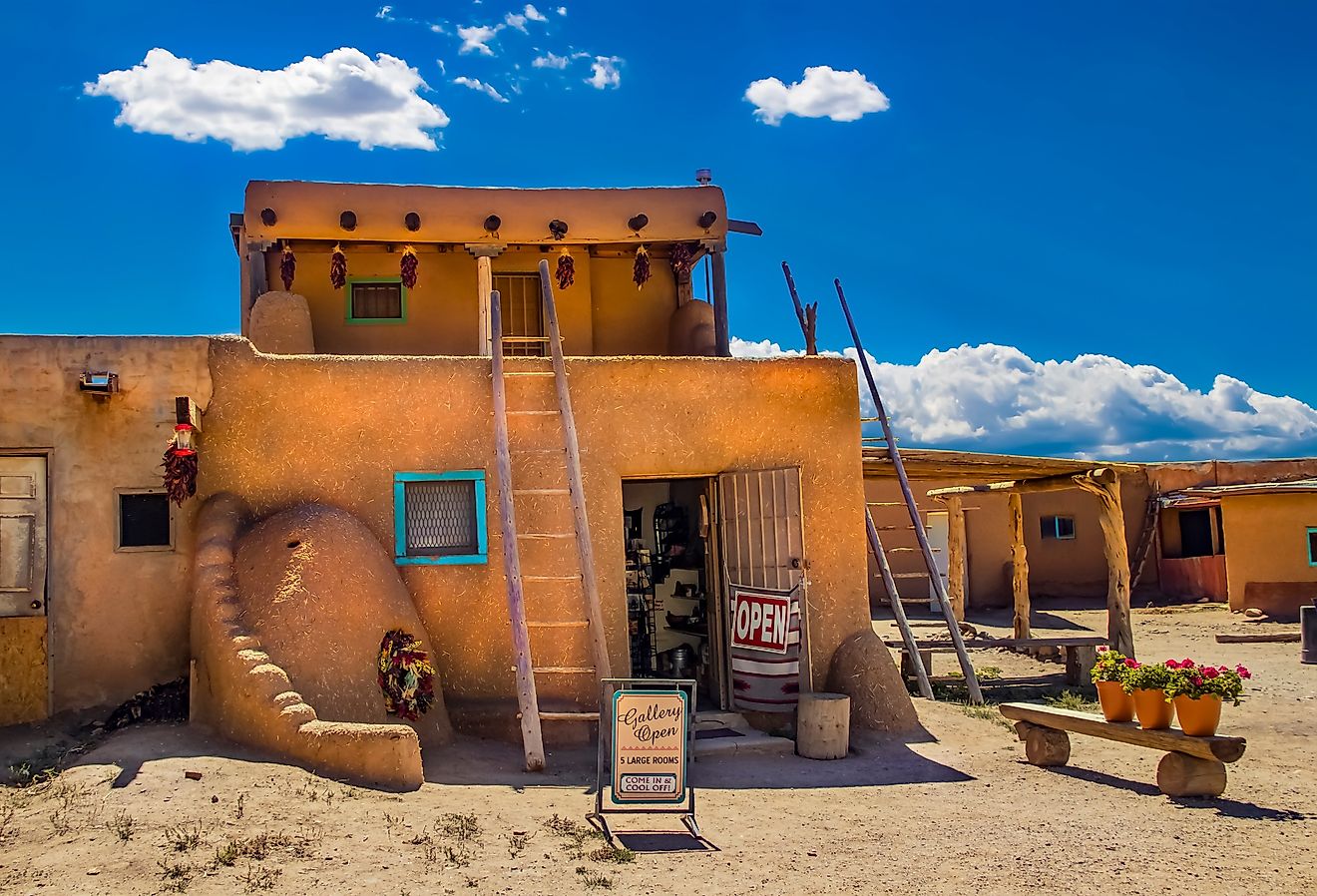
7 Coolest Towns In New Mexico For A Summer Vacation In 2024
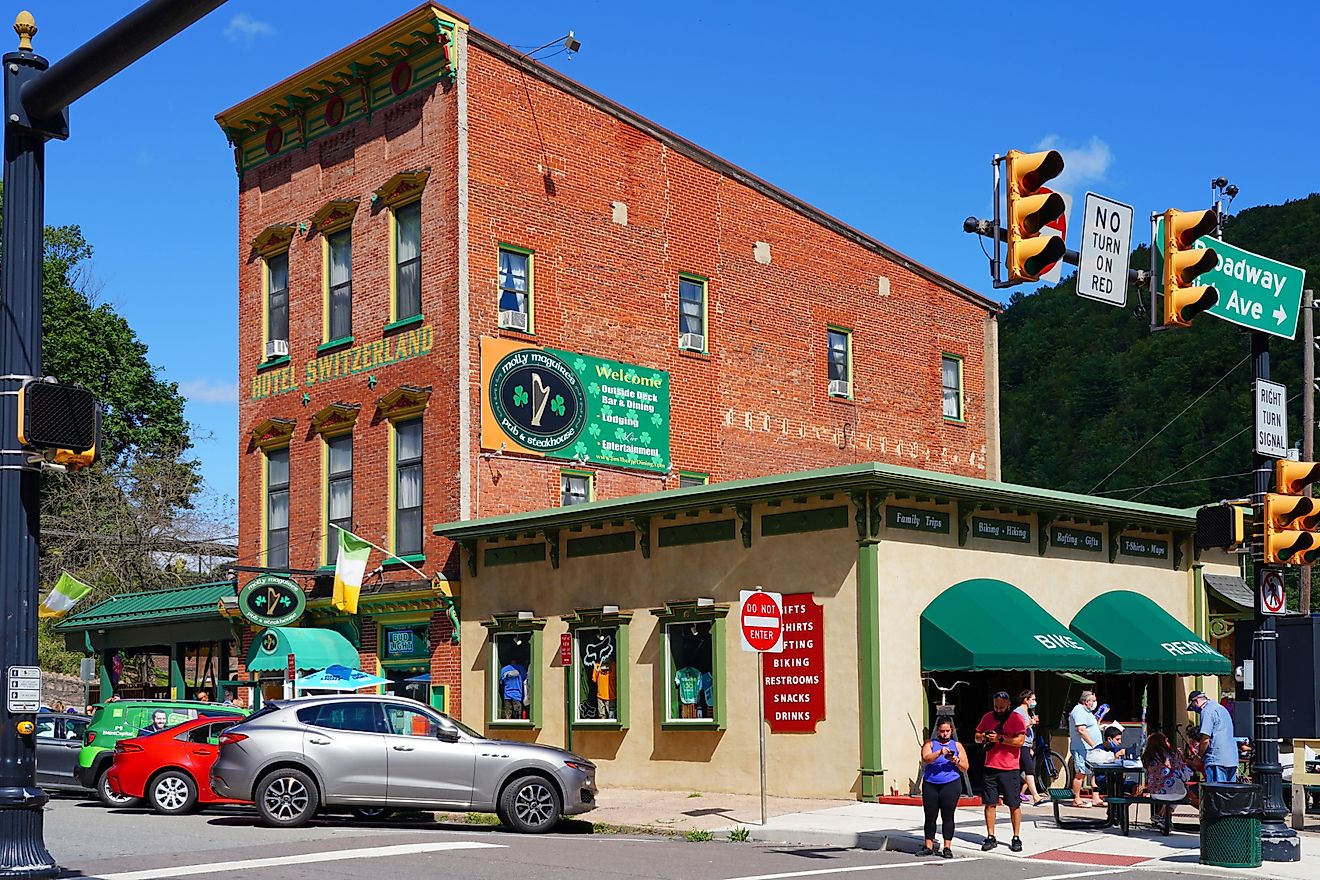
11 Adorable Small Towns In the Poconos
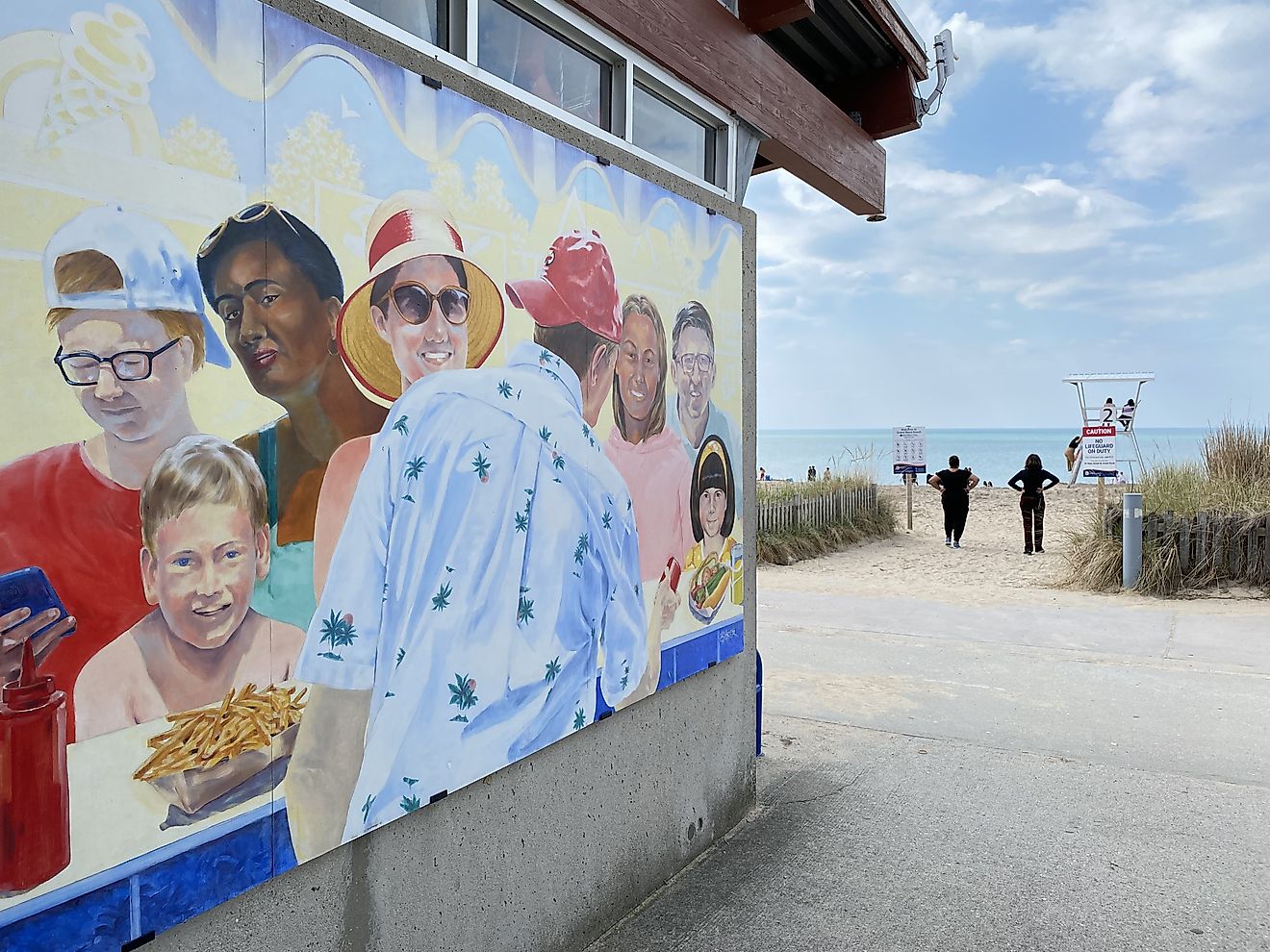
Lambton Shores, Ontario: Exploring Nature and Community
Update April 12, 2024
Information for u.s. citizens in the middle east.
- Travel Advisories |
- Contact Us |
- MyTravelGov |
Find U.S. Embassies & Consulates
Travel.state.gov, congressional liaison, special issuance agency, u.s. passports, international travel, intercountry adoption, international parental child abduction, records and authentications, popular links, travel advisories, mytravelgov, stay connected, legal resources, legal information, info for u.s. law enforcement, replace or certify documents.
Before You Go
Learn About Your Destination
While Abroad
Emergencies
Share this page:
Travel Advisory July 13, 2023
Morocco - level 2: exercise increased caution.
Reissued with obsolete COVID-19 page links removed.
Exercise increased caution in Morocco due to terrorism .
Country Summary : Terrorist groups continue plotting possible attacks in Morocco. Terrorists may attack with little or no warning, targeting tourist locations, transportation hubs, markets/shopping malls, and local government facilities.
Read the country information page for additional information on travel to Morocco.
If you decide to travel to Morocco:
- Stay alert in locations frequented by tourists.
- Avoid demonstrations and crowds.
- Enroll in the Smart Traveler Enrollment Program (STEP) to receive Alerts and make it easier to locate you in an emergency.
- Follow the Department of State on Twitter and Facebook .
- Review the Country Security Report for Morocco.
- Visit the CDC page for the latest Travel Health Information related to your travel.
- Prepare a contingency plan for emergency situations. Review the Traveler’s Checklist .
Embassy Messages
View Alerts and Messages Archive
Quick Facts
Must have at least six months of validity at time of entry
One page required for entry stamp
Not required for stays under 90 days
None
Declare large quantities at entry
Export of Moroccan currency is prohibited
Embassies and Consulates
U.s. consulate general casablanca.
8 Boulevard Moulay Youssef, Casablanca, Morocco
Telephone: +(212) (522) 642-099
Emergency After-Hours Telephone: +(212)(661) 13-19-39
Fax: +(212) (522) 29-77-01
The normal work week in Morocco is Monday through Friday.
U.S. Embassy Rabat
KM 5.7, Avenue Mohammed VI Souissi, Rabat 10170, Morocco
Telephone: +(212)(537) 63-72-00
Emergency After-Hours Telephone: +(212)(661)13-19-39
Fax: +(212)(537) 63-72-01
Please note that U.S. Embassy Rabat does not offer consular services and does not have entry facilities for public visitors.
Destination Description
Learn about the U.S. relationship to countries around the world.
Entry, Exit and Visa Requirements
Passports and Visas:
- You must have a valid passport with at least one blank page.
- Visas are not required for visits lasting less than 90 days. Visit the Embassy of the Kingdom of Morocco website for the most current visa information.
- Overstays: If you remain in Morocco beyond 90 days without having requested an extension of stay, you will need to appear before a judge prior to departing Morocco. Please contact the immigration office at your local police station for details. Clearance may include the payment of a fine.
- Lost/Stolen Passports: Please obtain a police report for a lost or stolen passport in the area where the loss or theft occurred. Recently, police have required evidence of U.S. citizenship prior to issuing the report of loss. In these cases, U.S. citizens may visit U.S. Consulate General Casablanca to obtain a temporary emergency passport prior to obtaining a report of loss.
- Travelers who plan to reside in Morocco must obtain a residence permit, (Certificat d’Immatriculation) Applications should be submitted to the Bureau des Etrangers of the Prefecture de Police or Commissariat Central in major cities, and to the Gendarmerie in remote areas and villages. Please see Residency Permits section under the Local Laws & Special Circumstances tab.
- Carry a copy of your U.S. passport with you at all times to have proof of identity and U.S. citizenship readily available, if needed.
- Children who possess U.S. passports and who are born to a Moroccan father may experience difficulty leaving Morocco without the father's permission, even if the parents are divorced and the mother has legal custody. Under Moroccan law, these children are considered Moroccan citizens.
- U.S. citizen women married to Moroccans do not need their spouse's permission to leave Morocco.
HIV/AIDS: The U.S. Department of State is unaware of any HIV/AIDS entry restrictions for visitors to or foreign residents of Morocco.
Find information on dual nationality , prevention of international child abduction , and customs regulations on our websites.
Safety and Security
All countries in the region remain vulnerable to attacks from transnational terrorist organizations or individuals inspired by extremist ideology with little or no warning. The potential for terrorist violence against U.S. interests and citizens exists in Morocco. Long an important counterterrorism partner with the United States, Morocco’s capable security services have taken robust actions to guard against terrorist attacks. Moroccan authorities continue to disrupt groups seeking to attack U.S. or Western-affiliated and Moroccan government targets, arresting numerous individuals associated with international terrorist groups. Nevertheless, credible information indicates terrorist groups continue to plot potential attacks in the region, including Morocco. Lone wolf attacks are difficult to detect and disrupt and can occur without warning. In December 2018, two Scandinavian tourists were murdered by three Islamic State of Iraq and Syria (ISIS) supporters in the Imlil Mountains near Marrakesh. U.S. citizens are reminded to remain vigilant with regards to their personal security.
Establishments that are identifiable with the United States are potential targets for attacks. These may include facilities where U.S. citizens and other foreigners congregate, including clubs, restaurants, places of worship, schools, hotels, movie theaters, U.S. brand establishments, and other public areas. U.S. citizen campers should camp in guarded campgrounds rather than isolated campsites.
Demonstrations: Demonstrations occur frequently in Morocco, are typically focused on political or social issues, and are only rarely confrontational or violent.
- During periods of heightened regional tension, large demonstrations may take place in major cities.
- By law, all demonstrations require a government permit, but spontaneous unauthorized demonstrations, which have greater potential for violence, can occur. In addition, different unions or groups may organize strikes to protest an emerging issue or government policy.
- Travelers should be aware of current events in Morocco and stay informed of regional issues that could resonate in Morocco and create an anti-American response.
- Avoid demonstrations if at all possible.
- If caught in a demonstration, remain calm and move away immediately when provided the opportunity.
- Exercise increased vigilance in areas that attract large crowds, such as sporting events.
Western Sahara: From 1975 to 1991, Western Sahara was the site of armed conflict between Moroccan government forces and the POLISARIO Front, which continues to seek independence for the territory. Tensions along the border in Western Sahara heightened in November 2020 when Moroccan forces conducted an operation on the border to clear a blockade by the POLISARIO Front; both sides have since engaged in a low intensity conflict along the border. There are thousands of unexploded mines in the Western Sahara and in areas of Mauritania adjacent to the Western Saharan border. Exploding mines are occasionally reported and have caused death and injury. There have been instances in which U.S. citizens suspected of being participants in political protests or of supporting NGOs that are critical of Moroccan policies have been expelled from, or not been allowed to enter, Western Sahara.
Crime: Crime in Morocco is a serious concern, particularly in major cities and tourist areas.
- Use common sense and the same personal security measures you would normally use in a large U.S. city or tourist destination.
- Do not leave bags unattended. Keep them in sight and avoid placing passports, cash, cell phones, or other valuables in the outer pockets of backpacks or purses, or on tables in public places. Do not leave bags slung over the backs of chairs, on hotel or store counters, on top of your suitcase or larger travel bag, or out of your physical control in hotel lobbies, train stations, restaurants, and other public locations.
- Aggressive panhandling, pick-pocketing, purse-snatching, theft from unoccupied vehicles, and harassment of women are the most frequently reported issues.
- Criminals use weapons, primarily knives, during some street robberies and burglaries. These crimes have occurred at any time of day or night, not only in isolated places or areas less frequented by visitors, but in crowded areas as well.
- Residential break-ins also occur and have on occasion turned violent, but most criminals look for opportunities based on stealth rather than confrontation.
- Travelers should avoid soccer stadiums and their environs on days of scheduled matches as large groups of team supporters have been known to become unruly and harass and assault bystanders.
- Joggers should be mindful of traffic and remain in more heavily populated areas. It is always best to have a jogging companion, dress modestly, and avoid isolated areas or jogging at night.
- At night and when moving about unfamiliar areas, avoid traveling alone and utilize “petit” taxis which vary by color in the major cities (Casablanca-Red, Rabat-Blue, Marrakech-Tan, etc.).
- Taxis* in Morocco are generally crime-free during day time, although city buses are not considered safe.
- Trains are generally safe, but theft, regardless of the time of day, sometimes occurs.
- Avoid carrying large sums of cash and be particularly alert when using ATM machines. In the event you are victimized by crime or an attempted crime, please report the incident to the local police and the U.S. Consulate General in Casablanca as soon as possible.
* NOTE: Some popular web-based ride-sharing services have operated in Morocco; however, the French-based company Heetch is currently the only service legally authorized to operate by the Moroccan Government. Media report that drivers of web-based ride-sharing services have been harassed and assaulted by regular taxi drivers in the recent past.
Victims of Crime: U.S. citizen victims of crimes should contact the local police at 19 from a land line or 190 from a mobile phone, and the U.S. Consulate in Casablanca at (212) 522 64 20 99. Remember that the local authorities are responsible for investigating and prosecuting crimes. See our webpage on help for U.S. victims of crime overseas .
- help you find appropriate medical care;
- assist you in reporting a crime to the police;
- with written consent, contact your relatives or friends;
- explain the local criminal justice process in general terms;
- provide a list of local attorneys;
- provide information on victim’s compensation programs in the United States;
- provide an emergency loan for repatriation to the United States and/or limited medical support in cases of destitution;
- help you find accommodation and arrange flights home;
- replace a stolen or lost passport.
Tourism : The tourism industry is generally regulated in major tourist areas. Hazardous areas/activities are identified with appropriate signage and professional staff is typically on hand in support of organized activities. However, outside of these areas, the tourism industry is unevenly regulated, and safety inspections for equipment and facilities do not commonly occur. Hazardous areas/activities are not always identified with appropriate signage, and staff may not be trained or certified either by the host government or by recognized authorities in the field. In the event of an injury, appropriate medical treatment is typically available only in/near major cities. Outside of a major metropolitan center, it may take more time for first responders and medical professionals to stabilize a patient and provide life-saving assistance. U.S. citizens are encouraged to purchase medical evacuation insurance. See our webpage for more information on insurance providers for overseas coverage.
Local Laws & Special Circumstances
Criminal Penalties: You are subject to local laws. If you violate local laws, even unknowingly, you may be expelled, arrested, or imprisoned. In some places you may be taken in for questioning if you don’t have your passport with you.
Furthermore, some laws are also prosecutable in the U.S., regardless of local law. For examples, see our website on crimes against minors abroad and the Department of Justice website.
Arrest Notification : If you are arrested or detained, ask police or prison officials to notify the U.S. Consulate immediately. See our webpage for further information.
- Crimes of fraud, including passing bad checks, non-payment of bills (including hotel bills), or breach of contract are considered serious in Morocco and can often result in imprisonment and/or fines.
- Bail generally is not available to non-residents of Morocco who are arrested for crimes involving fraud.
- Debtors can be held in prison until their debts are paid or until an agreement is reached between the parties.
- Passports may be seized by the Moroccan government to guarantee that debtors settle their cases.
- Debtors may be unable to work in Morocco without passports while still being held responsible for their debts.
- Prior to entering into a contract, you may want to consider consulting an attorney.
Faith-Based Travelers : Islam is the official religion in Morocco. However, the constitution provides for the freedom to practice one's religion. The Moroccan government does not interfere with public worship by the country’s Jewish minority or by expatriate Christians. Proselytizing is, however, prohibited. In the past, U.S. citizens have been arrested, detained, and/or expelled for discussing or trying to engage Moroccans in debate about Christianity. In February 2014, several U.S. citizens were expelled from Morocco for alleged proselytizing. Many of those expelled were long-time Moroccan residents. In these cases, U.S. citizens were given no more than 48 hours to gather their belongings or settle their affairs before being expelled. See the Department of State’s International Religious Freedom Report .
LGBTI Travelers: Consensual same-sex sexual relations are criminalized in Morocco. Penalties include fines and jail time. See our LGBTI Travel Information page and section 6 of our Human Rights report for further details.
Travelers Who Require Accessibility Assistance: While in Morocco, individuals with disabilities may find accessibility and accommodation very different from what is customary in the United States.
Students: See our Students Abroad page and FBI travel tips .
Women Travelers : Women walking alone in certain areas of cities and rural areas are particularly vulnerable to assault by men. They should exercise caution when in public spaces, including nightclubs or other social establishments. Women are advised to travel with a companion or in a group when possible and to ignore any harassment. See our tips for Women Travelers .
Customs: Travelers must declare large quantities of U.S. dollars brought into the country at the port of entry. The export of Moroccan currency (dirhams) is prohibited; however, Moroccan currency can be converted back into U.S. dollars prior to departure only if the traveler has a bank or money transfer receipt indicating he or she exchanged dollars for dirhams while in Morocco.
Moroccan customs authorities may enforce strict regulations concerning temporary importation into or export from Morocco of items such as firearms, unmanned aerial vehicle (UAV) or drones, religious materials, antiquities, business equipment, and large quantities of currency. It is advisable to contact the Embassy of Morocco in Washington, D.C., or the Moroccan Consulate General in New York for specific information concerning customs requirements.
Please see our information on Customs and Import Restrictions.
Citizenship : The Government of Morocco considers all persons born to Moroccan fathers to be Moroccan citizens. In addition to being subject to all U.S. laws, U.S. citizens who also possess the nationality of Morocco may be subject to other laws that impose special obligations on citizens of Morocco. Recently, Morocco has begun allowing Moroccan mothers of children born outside Morocco to petition for their children’s citizenship. For further information on that process, please contact the Embassy of Morocco in Washington, D.C., or the Moroccan Consulate General in New York .
Residency Permits: In order to obtain a residence permit, travelers must present (among other requirements) a criminal history record check. This record check can only be obtained in the United States. The U.S. Consulate and Embassy are unable to take fingerprints to send for FBI record requests. For specific information, individuals seeking residency should visit their local police station.
The following documents must accompany a residency renewal application:
- Birth Certificate
- Copy of the current passport
- Copy of the current Moroccan residency card
- Medical certificate from a doctor stating that the requester is free from any contagious disease
- Court record (Casier Judiciaire) obtained from the Ministry of Justice in Rabat
- 100 MAD stamp
Individuals planning on residing in Morocco or relocating to the U.S. may be asked to provide a notarized change of residence form. This form is available at the U.S. Consulate by appointment.
Sending Passports through the Mail: According to Moroccan law, it is prohibited to send passports by mail across international borders. Passports sent to or through Morocco via Fedex, DHL, or other courier will be confiscated by Moroccan authorities. Confiscated U.S. passports are eventually sent to the U.S. Consulate General in Casablanca after being processed by the Ministry of Foreign Affairs. If your passport has been confiscated, you can contact the American Citizens Services section at [email protected] to ask if it has been received.
Property: U.S. consular officers are prohibited by law and regulation from accepting personal property for safekeeping regardless of the circumstances involved. If there is concern over the protection of property left behind in Morocco due to confiscation or deportation for political, legal, or other reasons, U.S. citizens should take every precaution to ensure that available legal safeguards are in place either before, or immediately after, purchasing property in Morocco or taking up residence there. U.S. citizens are also encouraged to consider assigning a Power of Attorney, or Procuration, to be used in Morocco if necessary. More information and sample Power of Attorney forms are available on the Consulate General of the Kingdom of Morocco in New York website.
Photographing Sensitive Locations: Taking photographs of anything that could be perceived as being of military or security interest may result in problems with the authorities. As a general rule, travelers should not photograph palaces, diplomatic missions, government buildings, or other sensitive facilities and when in doubt should ask permission from the appropriate Moroccan authorities.
Professional Basketball in Morocco: The U.S. Consulate General in Casablanca is aware that there are local professional basketball teams who have made contracts with U.S. citizens to play on Moroccan teams. Some of these players have subsequently claimed they were not paid as stipulated per the terms of the contract. Individuals considering playing basketball professionally in Morocco may wish to consult with a lawyer regarding the terms of their contract prior to signing. A list of lawyers can be found on the Embassy's webpage.
Adequate medical care is available in Morocco’s largest cities, particularly in Rabat and Casablanca, although not all facilities meet Western standards.
- Emergency and specialized care outside the major cities is far below U.S. standards and may not be available at all.
- Most medical staff will have limited or no English-speaking ability.
- Most ordinary prescription and over-the-counter medicines are widely available.
- Specialized prescriptions may be difficult to fill and availability of all medicines in rural areas is unreliable.
- Travelers should not ask friends or relatives to send medications through the mail, FedEx, or UPS since Moroccan customs will impound the delivery and not release it to the recipient.
- Travelers planning to drive in the mountains and other remote areas may wish to carry a medical kit and a Moroccan phone card for emergencies.
- In the event of vehicle accidents involving injuries, immediate ambulance service is usually not available. The police emergency services telephone number is “190” (see Traffic Safety and Road Conditions section below).
The U.S. Mission in Morocco is unable to pay your medical bills. Be aware that U.S. Medicare does not apply overseas.
Medical Insurance: Make sure your health insurance plan provides coverage overseas. Most care providers overseas only accept cash payments. You may also be required to pay a deposit before being admitted for treatment. See our webpage for more information on insurance providers for overseas coverage . We strongly recommend supplemental insurance to cover medical evacuation.
If traveling with prescription medication, check with the Government of Morocco Ministry of Foreign Affairs to ensure the medication is legal in Morocco. Always carry your prescription medication in original packaging, along with your doctor’s prescription.
Vaccinations: Be up-to-date on all vaccinations recommended by the U.S. Centers for Disease Control and Prevention.
Further health information:
- World Health Organization
- U.S. Centers for Disease Control and Prevention (CDC)
Travel and Transportation
Road Conditions and Safety: Traffic accidents are a significant hazard in Morocco. Driving practices are very poor and have resulted in serious injuries to and fatalities of U.S. citizens. This is particularly true at dusk during the Islamic holy month of Ramadan, when adherence to traffic regulations is lax, and from July to September when Moroccans resident abroad return from Europe by car in large numbers.
- Drivers should exercise extreme caution when driving at night due to poor lighting systems along roads.
- Traffic signals do not always function, and are sometimes difficult to see.
- Modern freeways link the cities of Tangier, Rabat, Fez, Casablanca, and Marrakesh. Two-lane highways link other major cities.
- Secondary routes in rural areas are often narrow and poorly paved. Roads through the Rif and Atlas mountains are steep, narrow, windy, and dangerous.
- Pedestrians, scooters, and animal-drawn conveyances are common on all roadways, including the freeways, and driving at night should be avoided if possible.
- During the rainy season (November - March), flash flooding is frequent and sometimes severe, washing away roads and vehicles in rural areas.
Traffic Laws: In the event of a traffic accident, including accidents involving injuries, the parties are required to remain at the scene and not move their vehicles until the police have arrived and documented all necessary information. The police emergency services telephone number is “190”. Often Moroccan police officers pull over drivers for inspection within the city and on highways.
Traffic Fines: Confiscation of a driver’s license is possible if a violator is unable or unwilling to settle a fine at the time of a traffic stop.
If you are stopped for a speeding violation, you have the right to request the video footage documenting the infraction. Once the speeding violation is confirmed, you have three options:
- Pay the fine on the spot and obtain a receipt of payment;
- Pay at the local city’s treasury (La Perception). The police/gendarme officer will issue you a ‘ticket’ indicating the amount of the fine and keep your driver’s license until you pay the fine.
- Should you wish to contest a violation, you may file a complaint at court; however, Moroccan authorities may keep your driver’s license and vehicle registration while this lengthy process takes place.
Foreign driver’s licenses are valid for use in Morocco for up to one year. After that, foreign residents must pass the Moroccan driver’s test and obtain a Moroccan driver’s license. The test is conducted in Arabic and French. Speakers of other languages are allowed to have a sworn translator with them when taking the test.
Public Transportation: While public buses and taxis are inexpensive, driving habits are poor, and buses are frequently overcrowded. City buses are not considered safe. The train system has a good safety record. Trains, while sometimes crowded, are comfortable and generally on time. See our Road Safety page for more information. Visit Morocco’s National Tourism website for additional information.
- Train Station Hotline: 0890 20 30 40
- Bus Station Hotline: 0800 09 00 30
- Directory Enquiry- 160
Web-based ride-sharing services are not legal in Morocco; however, some well-known companies (UBER and Careem) have attempted operations with limited success. Media reports of ride-sharing drivers being harassed and assaulted by regular taxi drivers were common.
Aviation Safety Oversight: The U.S. Federal Aviation Administration (FAA) has assessed the Government of Morocco’s Civil Aviation Authority as being in compliance with International Civil Aviation Organization (ICAO) aviation safety standards for oversight of Morocco’s air carrier operations. Further information may be found on the FAA’s safety assessment page .
Maritime Travel: Mariners planning travel to Morocco should also check for U.S. maritime advisories and alerts at www.marad.dot.gov/msci . Information may also be posted to the U.S. Coast Guard homeport website (https://homeport.uscg.mil), and the NGA broadcast warnings website https://msi.nga.mil/NGAPortal/MSI.portal (select “broadcast warnings”).
For additional travel information
- Enroll in the Smart Traveler Enrollment Program (STEP) to receive security messages and make it easier to locate you in an emergency.
- Call us in Washington, D.C. at 1-888-407-4747 (toll-free in the United States and Canada) or 1-202-501-4444 (from all other countries) from 8:00 a.m. to 8:00 p.m., Eastern Standard Time, Monday through Friday (except U.S. federal holidays).
- See the State Department’s travel website for the Worldwide Caution and Travel Advisories .
- Follow us on Twitter and Facebook .
- See traveling safely abroad for useful travel tips.
Review information about International Parental Child Abduction in Morocco . For additional IPCA-related information, please see the International Child Abduction Prevention and Return Act ( ICAPRA ) report.
Travel Advisory Levels
Assistance for u.s. citizens, morocco map, learn about your destination, enroll in step.

Subscribe to get up-to-date safety and security information and help us reach you in an emergency abroad.
Recommended Web Browsers: Microsoft Edge or Google Chrome.
Check passport expiration dates carefully for all travelers! Children’s passports are issued for 5 years, adult passports for 10 years.
Afghanistan
Antigua and Barbuda
Bonaire, Sint Eustatius, and Saba
Bosnia and Herzegovina
British Virgin Islands
Burkina Faso
Burma (Myanmar)
Cayman Islands
Central African Republic
Cote d Ivoire
Curaçao
Czech Republic
Democratic Republic of the Congo
Dominican Republic
El Salvador
Equatorial Guinea
Eswatini (Swaziland)
Falkland Islands
France (includes Monaco)
French Guiana
French Polynesia
French West Indies
Guadeloupe, Martinique, Saint Martin, and Saint Barthélemy (French West Indies)
Guinea-Bissau
Isle of Man
Israel, The West Bank and Gaza
Liechtenstein
Marshall Islands
Netherlands
New Caledonia
New Zealand
North Korea (Democratic People's Republic of Korea)
Papua New Guinea
Philippines
Republic of North Macedonia
Republic of the Congo
Saint Kitts and Nevis
Saint Lucia
Saint Vincent and the Grenadines
Sao Tome and Principe
Saudi Arabia
Sierra Leone
Sint Maarten
Solomon Islands
South Africa
South Korea
South Sudan
Switzerland
The Bahamas
Timor-Leste
Trinidad and Tobago
Turkmenistan
Turks and Caicos Islands
United Arab Emirates
United Kingdom
Vatican City (Holy See)
External Link
You are about to leave travel.state.gov for an external website that is not maintained by the U.S. Department of State.
Links to external websites are provided as a convenience and should not be construed as an endorsement by the U.S. Department of State of the views or products contained therein. If you wish to remain on travel.state.gov, click the "cancel" message.
You are about to visit:

COMMENTS
Call us in Washington, D.C. at 1-888-407-4747 (toll-free in the United States and Canada) or 1-202-501-4444 (from all other countries) from 8:00 a.m. to 8:00 p.m., Eastern Standard Time, Monday through Friday (except U.S. federal holidays). See the State Department's travel website for the Worldwide Caution and Travel Advisories.
The largest oasis in the world is in Morocco Oases are part of the natural wealth of Morocco. With an area of 77,000 km2, the region of Tafilalet, in the south of the country, is home to the largest oasis in the world.This group of oases,...
Morocco reveals the full spectrum of real life: the good, the bad, the ugly and the oh-so beautiful. For some visitors, Morocco can be a huge culture shock. But with some awareness and understanding, it is possible to appreciate these differences, connect more deeply and see the country through a different lens without trying to change it. 1.
Following the decision of the Moroccan authorities, the health restrictions ( PCR or Vaccinal Pass) at the entrance to Moroccan territory are lifted. Starting from April 5th, 2023, Morocco reopens its borders to visitors from China, following the lifting of access restrictions put in place last December to combat Covid-19.
Morocco. Africa. Check out this year's Best in Travel winners. A country of dazzling diversity, Morocco has epic mountains, sweeping deserts and ancient cities, and it greets travelers with warm hospitality and the perfect glass of mint tea. Best Time to Visit. Best Places to Visit.
Long-distance buses are a good budget option, while domestic flights are best for those with limited time. Once you arrive at your destination, use a local taxi (known as a petit taxi) to get around town. Travel Tip: Morocco is a Muslim country and tourists should dress modestly to avoid causing offense.
Spring and Autumn (March - May, September - October): The best time to visit Morocco is in Spring and Autumn, between March and May and September and October. This period brings warm temperatures between 20°C - 30°C and sunny skies, making travel throughout the country very pleasant.
All travellers planning to visit Morocco must be fully vaccinated. The second dose of the vaccine must have been taken at least 14 days before travel. There are 10 approved vaccines acceptable for travel to the kingdom, including Sinopharm. Children under 18 are exempt from vaccination before travel. What do I need to do before I travel to Morocco?
Latest FCDO travel advice for Morocco including on entry requirements, safety and security and local laws and customs.
Getting around Morocco is a breeze. You can travel by plane, train, bus, taxi, or grand taxi - all giving you the opportunity to explore the country's beautiful landscapes and vibrant culture. Whichever method of travel you choose, it'll be an easy and convenient way to get where you need to go. By plane
Top Morocco Tours. Book a Morocco tour and get to know the culture through a local. Sandboarding With Lunch In A Berber House In Agadir. Visit a Souk and Cook Moroccan Food in Marrakech. Quad Bike Adventure In Agadir.
The fragrant air of Morocco seems spiked with local spices. Cradled by the dunes of the Sahara, the Kingdom has been inhabited for hundreds of thousands of years. And from the bustling Medina of Marrakech to the mosaic of leather tanning vessels in Fes, Moroccan culture is still steeped in rich tradition. The collection of blue-bottomed boats ...
2. Check out Casablanca's show-stopping architecture. Casablanca's most iconic landmark is the Hassan II Mosque, one of the world's largest mosques, open to non-Muslims on guided tours.The monumental prayer hall can hold 25,000 worshippers - another 80,000 can fit in the courtyards outside - and it showcases the finest Moroccan crafts, with hand-carved stucco, painted wood and ...
These lush garden can either be inside or outside a structure, they're often found in the palaces, Ksars or even the largest Riads. While you plan your trip to Morocco, check out this complete guide to know all the information you need to know ahead : Visas and passeports requirements, the currency, etc.
Morocco travel facts; Size and location: Located on the northwest coast of Africa, Morocco is slightly smaller than France and Spain, and slightly larger than the US state of California at 446,550 square kilometres (722,550 sq km including the Western Sahara). Population:37 million. Religion: Nearly 99 percent of Moroccans are Muslim, with 1 percent Christian and a tiny minority (an estimated ...
The best way to travel between Moroccan cities is by train. Morocco now has Africa's fastest trains traveling at 300km/h (186mph) linking Tangier, Rabat and Casablanca every hour over a new high-speed line. Classic trains link northern Tangier and Casablanca with Meknes, Fes and Marrakech.
Costs for food, accommodation and travel in Morocco are low by European or North American standards. If you stay in the cheaper hotels (or camp out), eat local food, and share expenses and rooms with another person, £150/$250 each a week would be enough to survive on. On £300/$500 each you could live pretty well, while with £700-1000/$1000 ...
If your travel plans in Morocco include outdoor activities, take these steps to stay safe and healthy during your trip. Stay alert to changing weather conditions and adjust your plans if conditions become unsafe. Prepare for activities by wearing the right clothes and packing protective items, such as bug spray, sunscreen, and a basic first aid ...
Known, historically, as "The Farthest West," Morocco is home to famous cities and destinations, including Casablanca, Tangiers, and the Sahara Desert. Travelers to Morocco love the country's unspoiled beaches, majestic mountains, and picturesque ports of call. When you visit Morocco, you not only experience a rich culture, you can travel ...
don't show signs of affluence, particularly when walking at night. avoid carrying a purse. don't accept food, drinks or invitations from strangers, or change your planned itinerary at their request. exercise caution in the mountainous Rif region, on the northern coast of Morocco.
Morocco is one of those places in the world that has been hosting visitors for thousands of years — as the end or beginning of the Silk Road and now as the destination of 14 million tourists ...
Travel guide. Climate and seasons ; Formalities ; Moroccan National Tourist Office ; Language and essential vocabulary ; Health and well-being ; Currency in Morocco ; Time zone and calendar ; Means of communication ; Useful apps for travelling in Morocco
Morocco is a country in the Maghreb Region of North Africa where it covers an area of 710,850 sq. km. Morocco's coast comes into contact with both the Atlantic Ocean on the west and the Mediterranean Sea on the north. Morocco shares three land borders. One with Algeria and a second with the disputed territory of Western Sahara.While the Western Sahara region of Morocco is still technically ...
Call us in Washington, D.C. at 1-888-407-4747 (toll-free in the United States and Canada) or 1-202-501-4444 (from all other countries) from 8:00 a.m. to 8:00 p.m., Eastern Standard Time, Monday through Friday (except U.S. federal holidays). See the State Department's travel website for the Worldwide Caution and Travel Advisories.